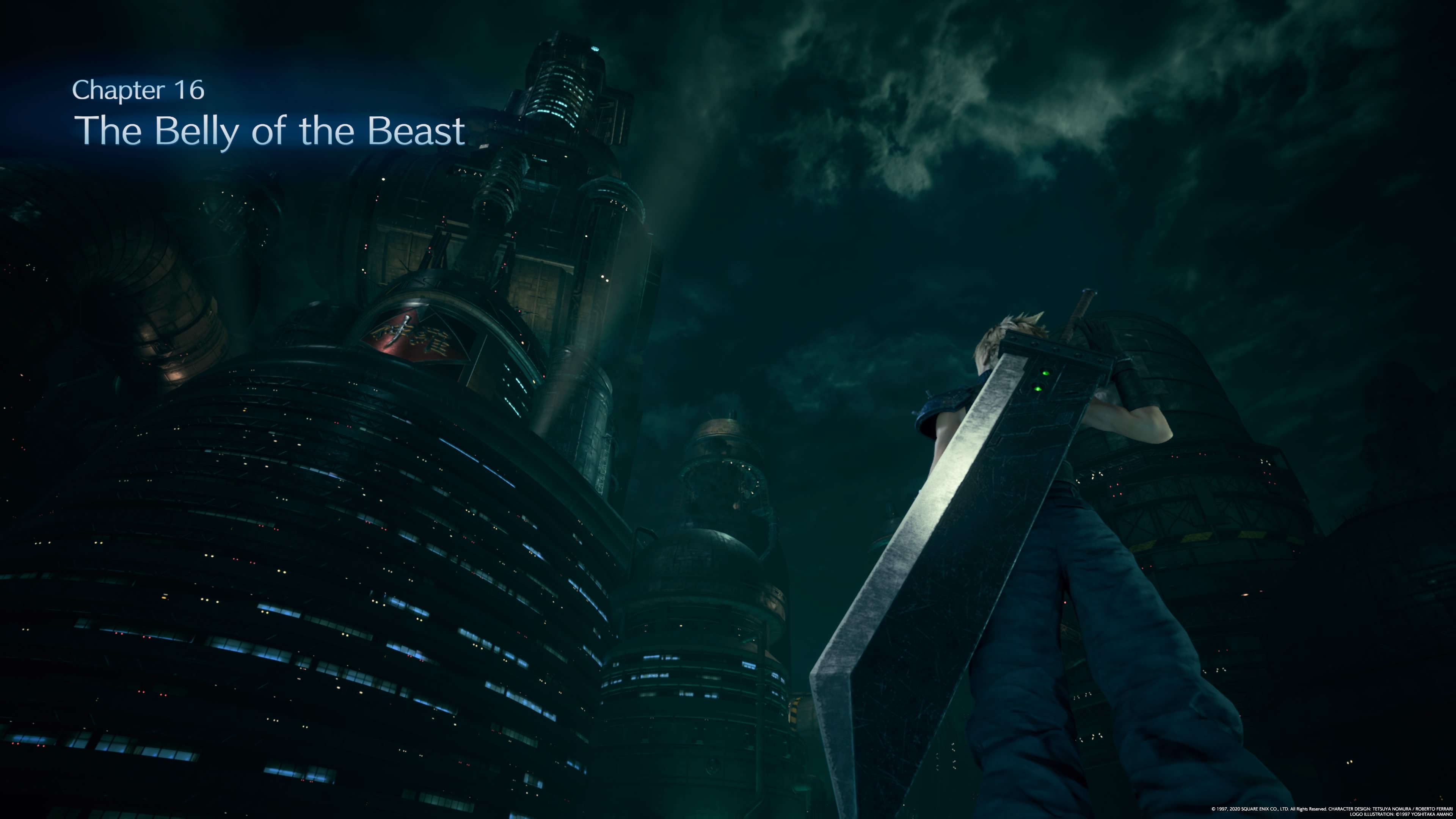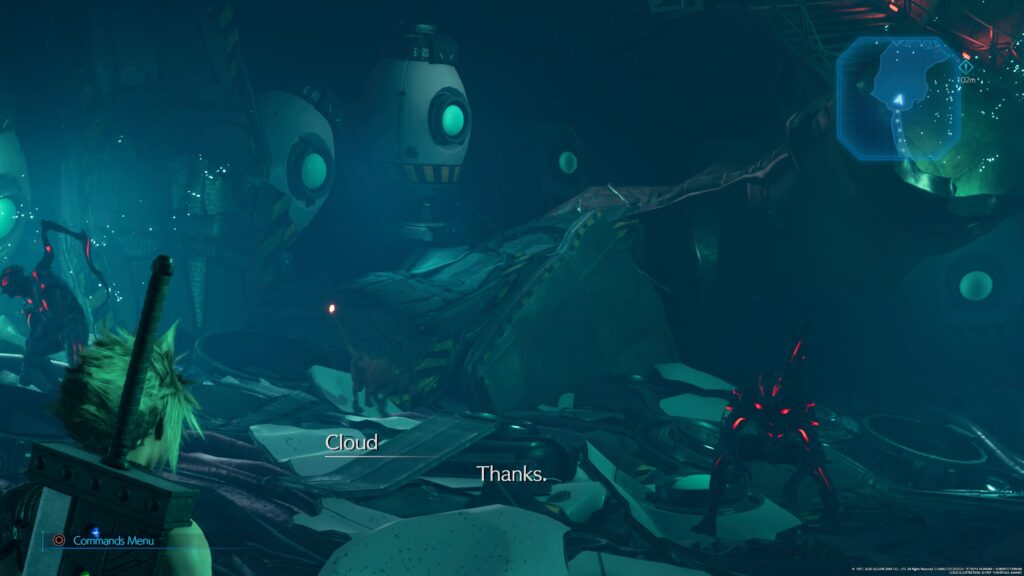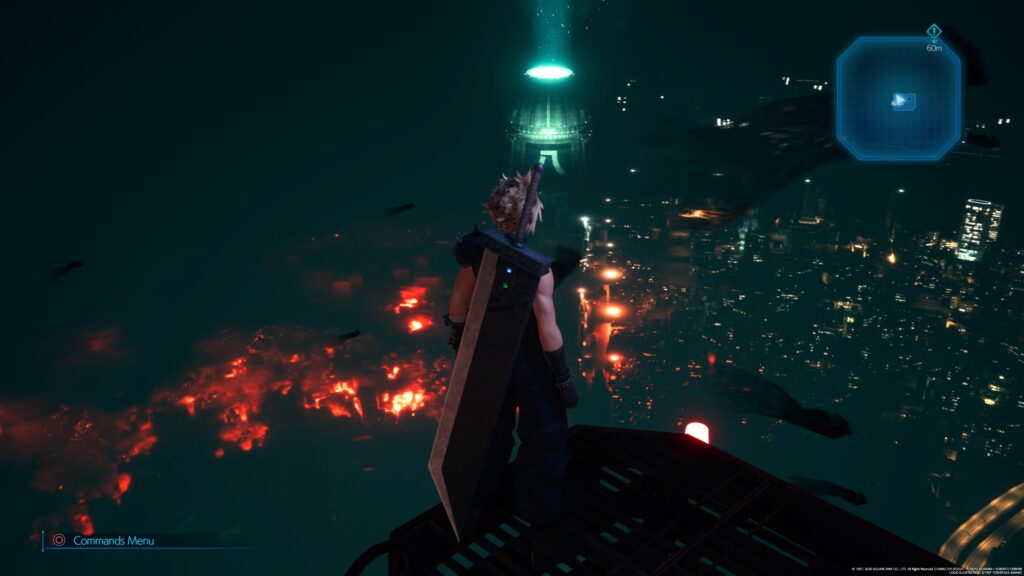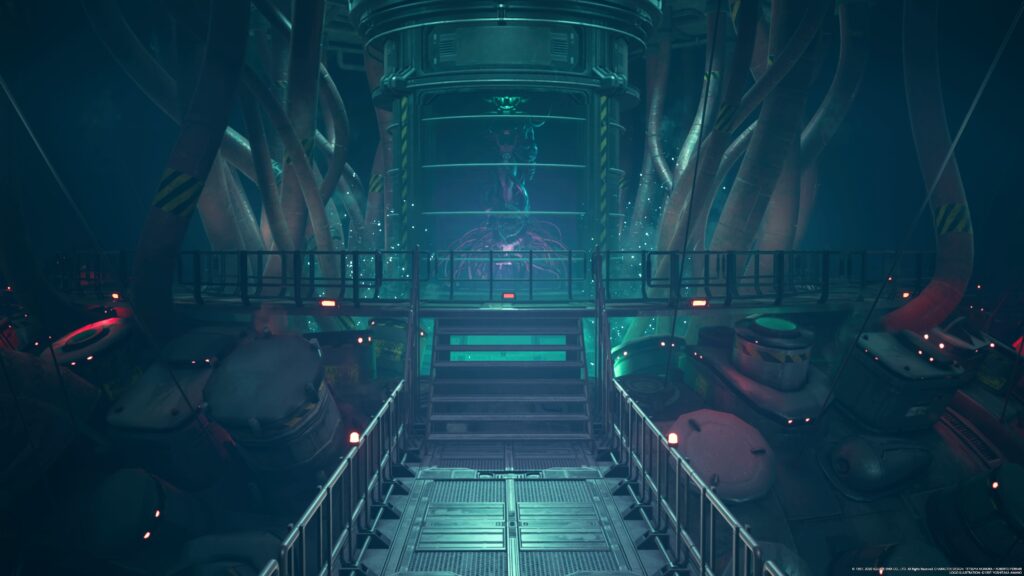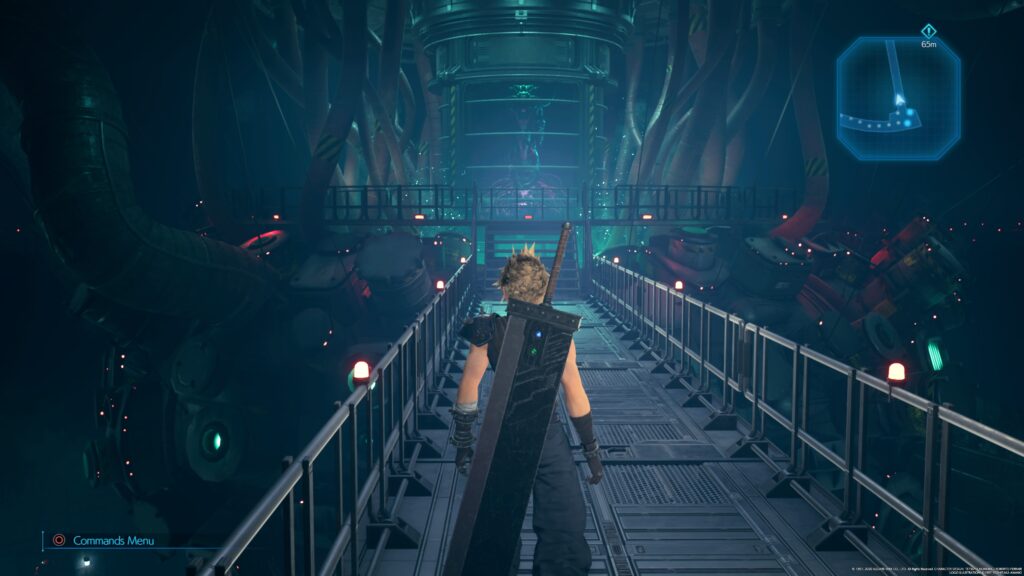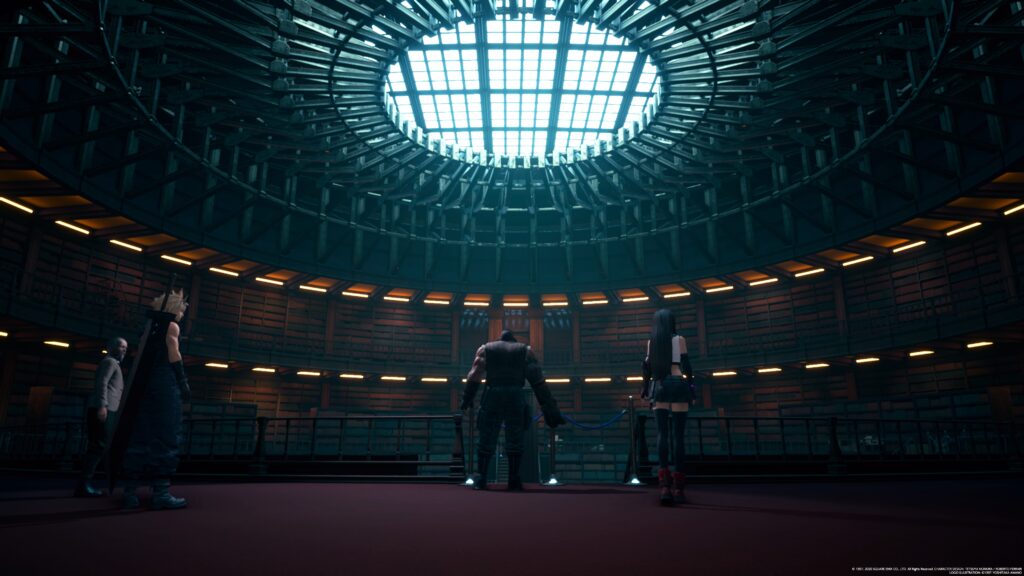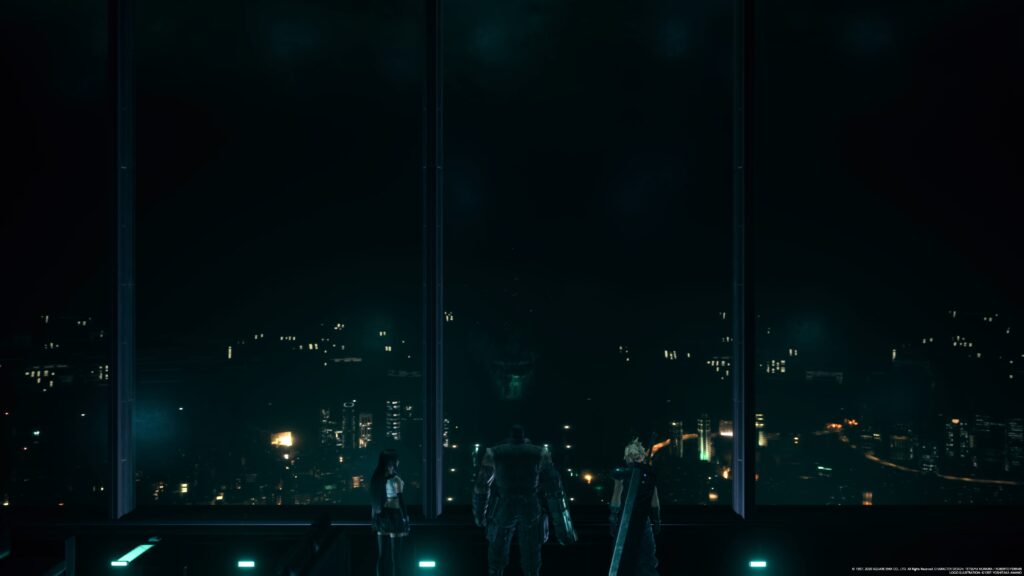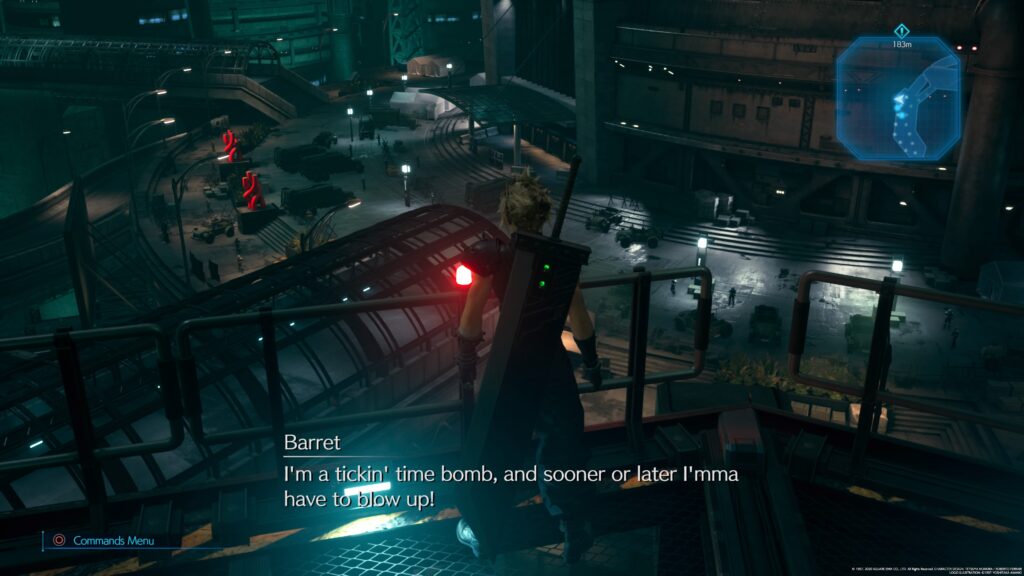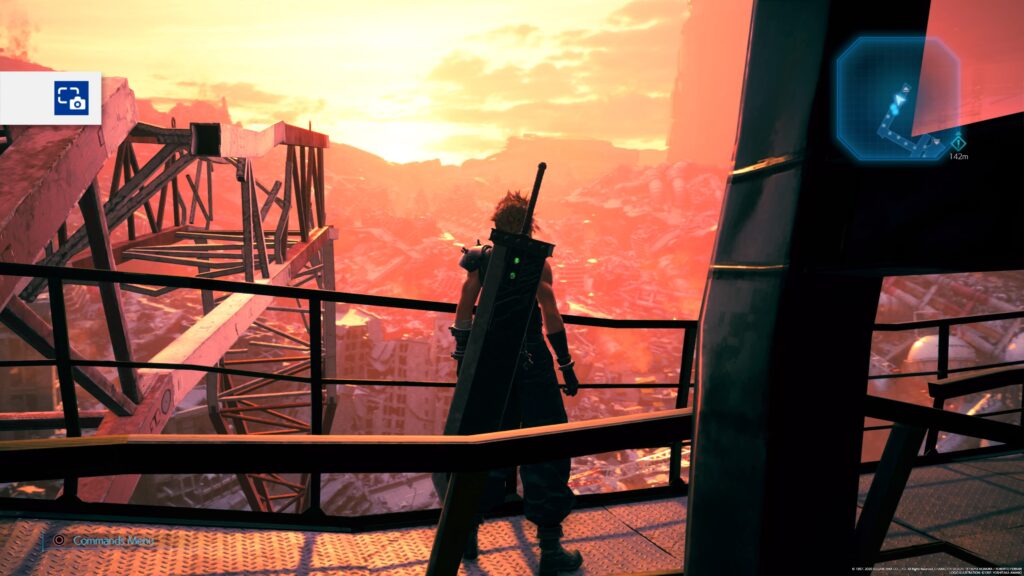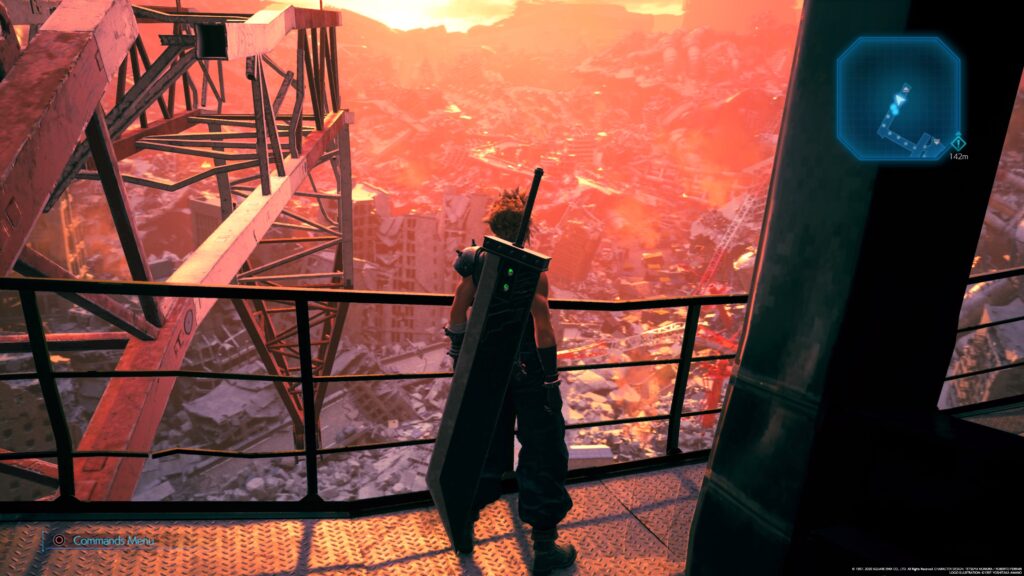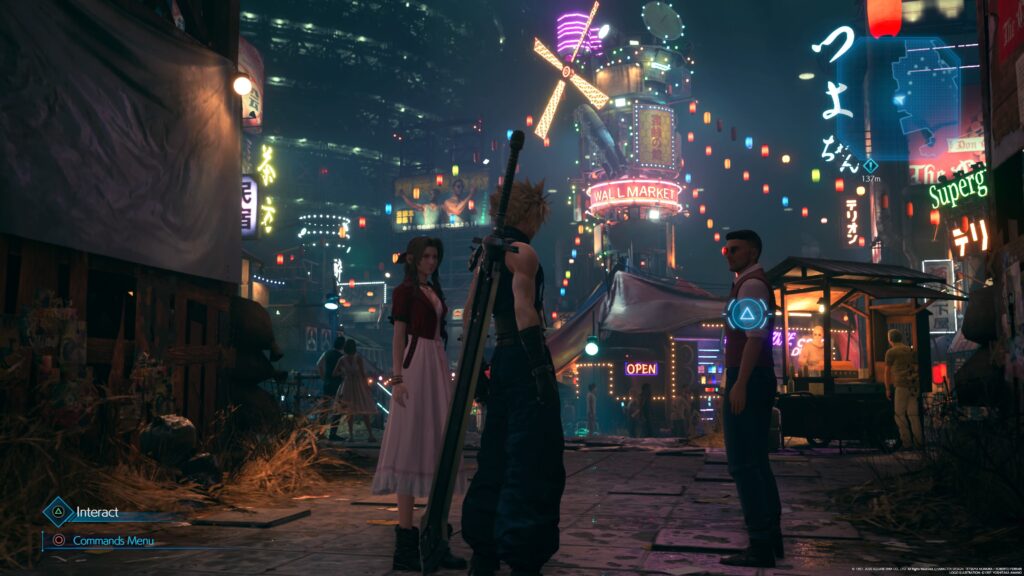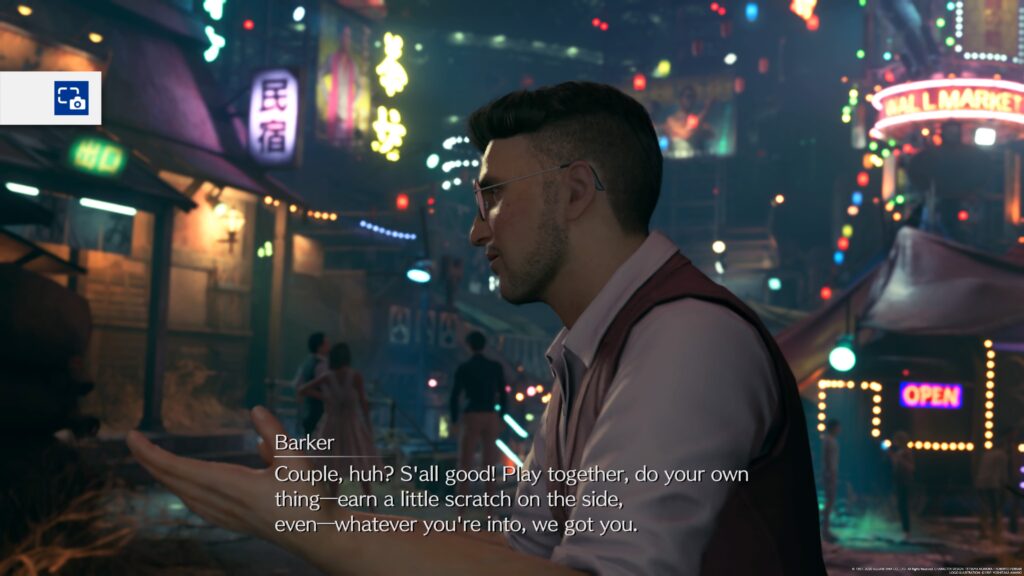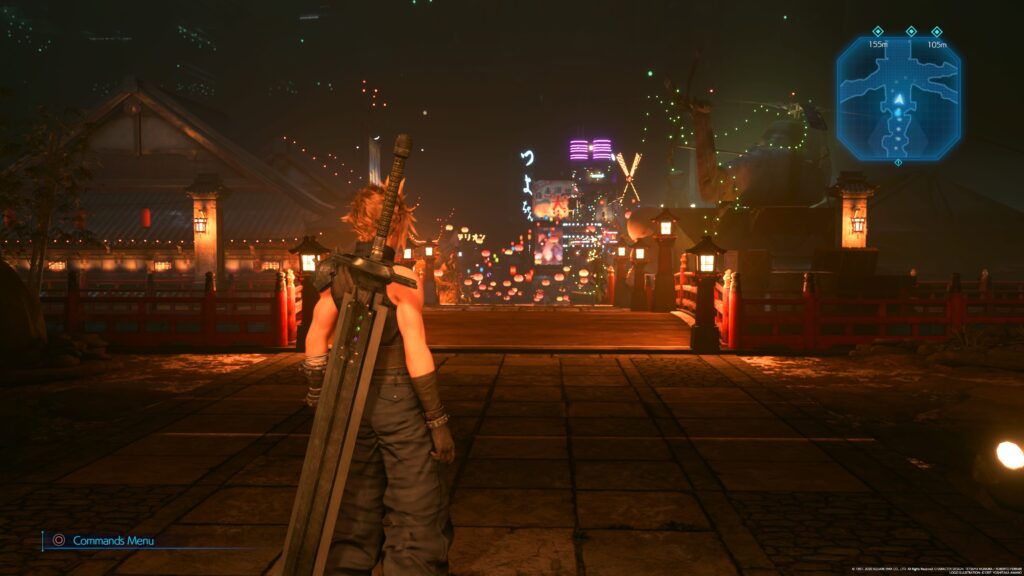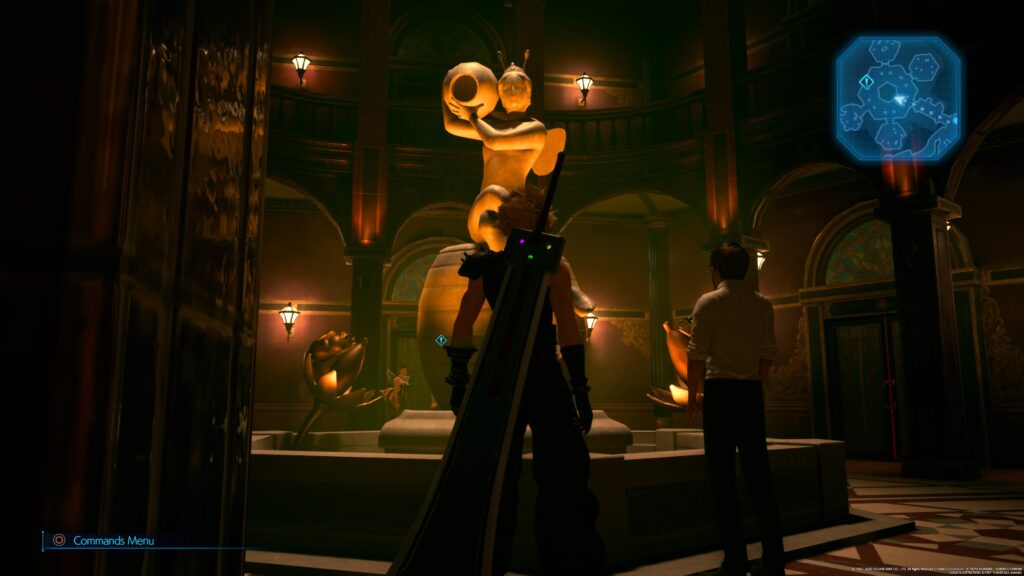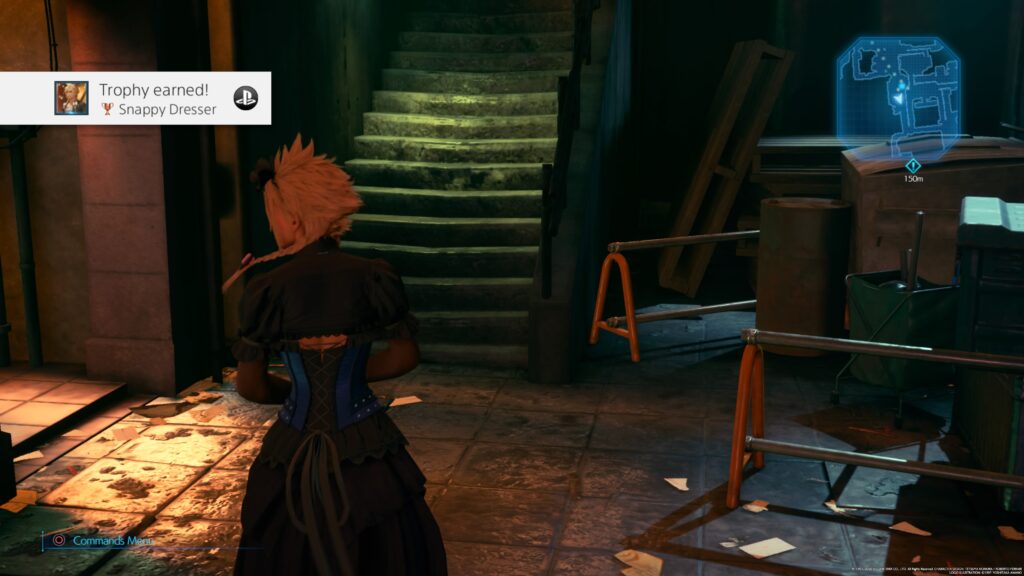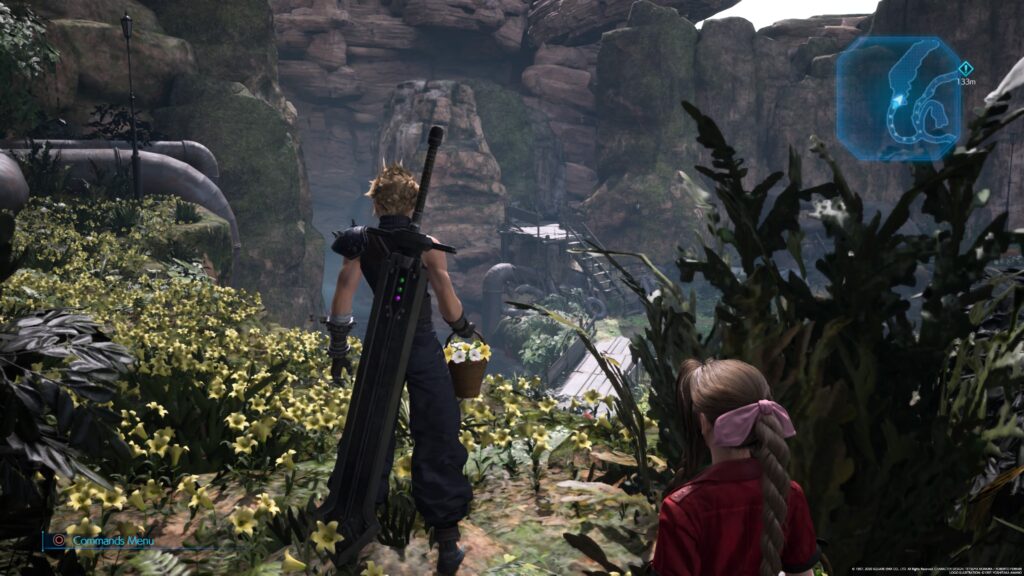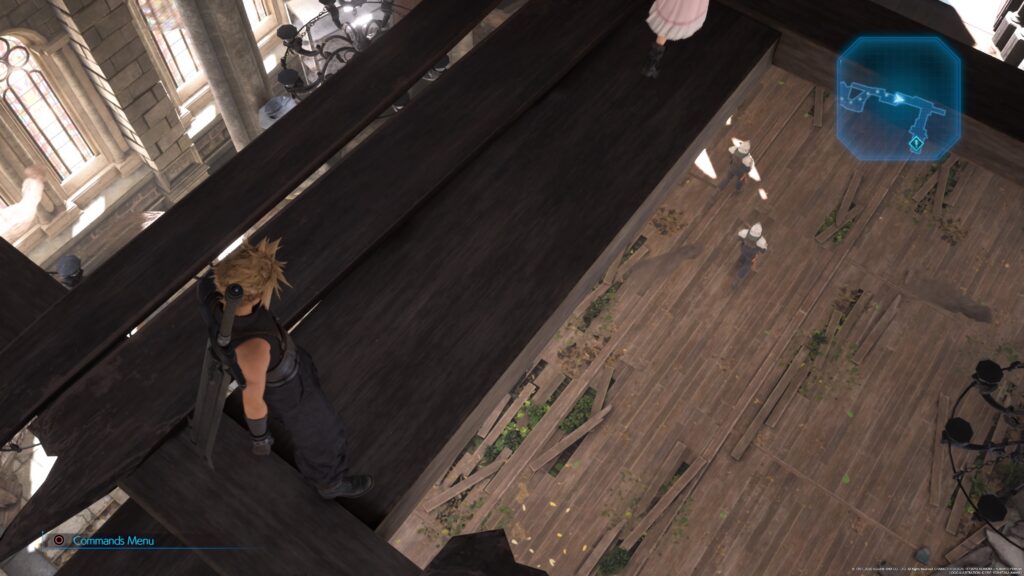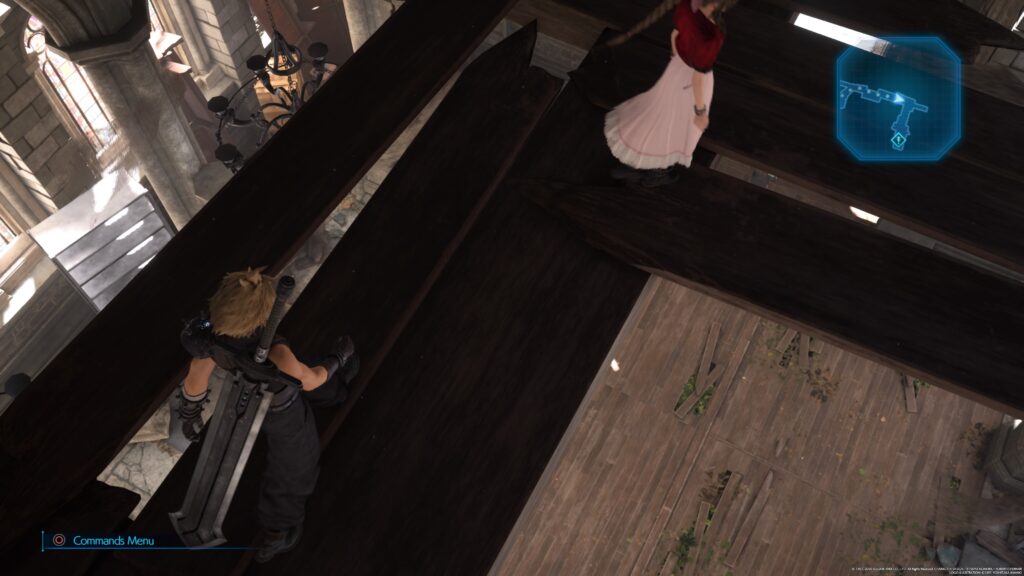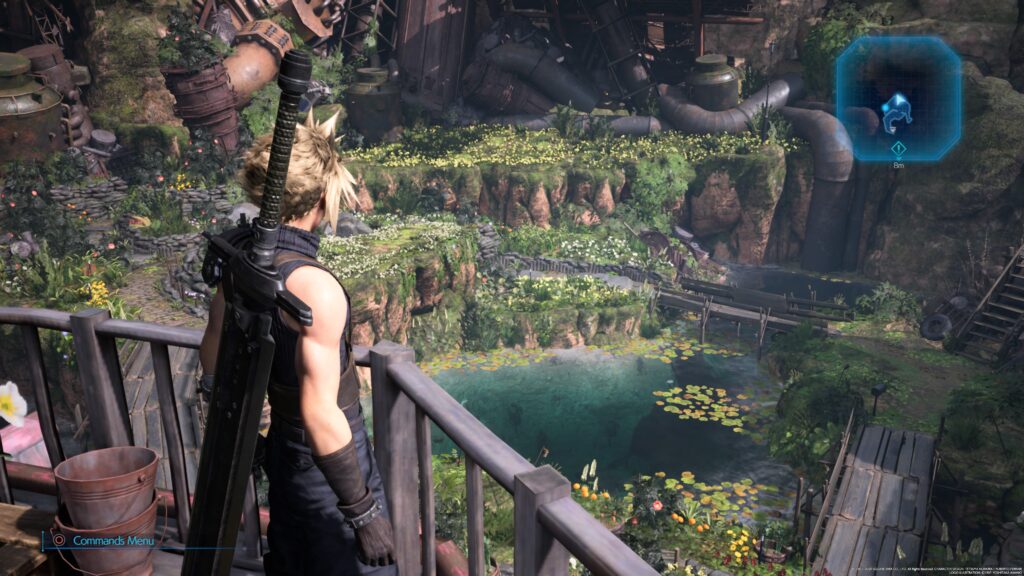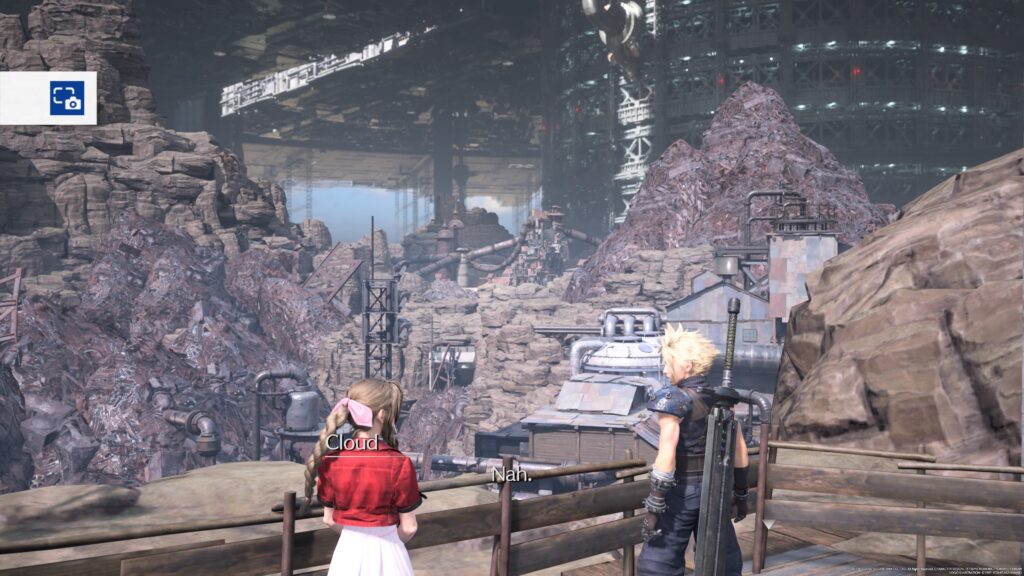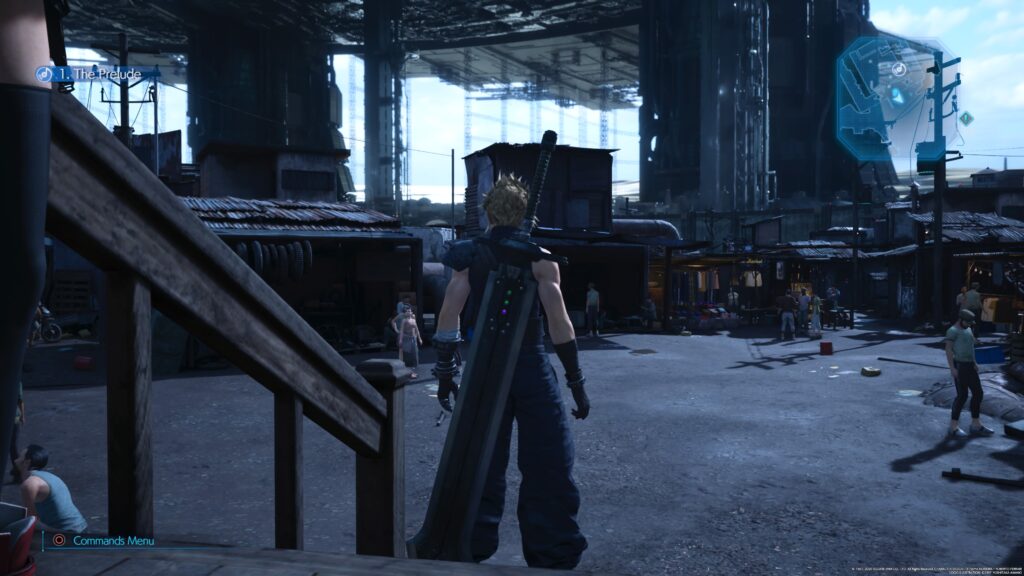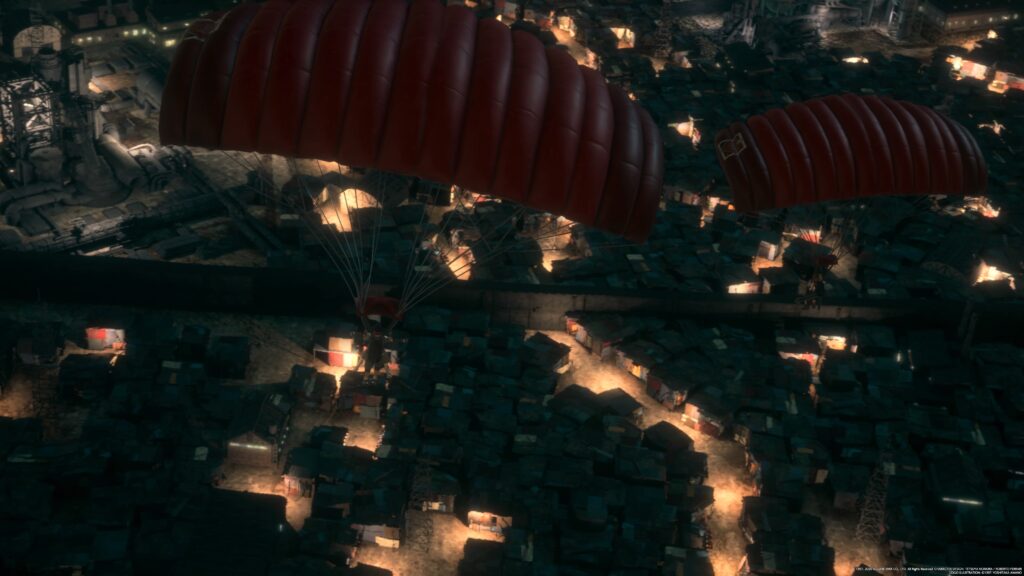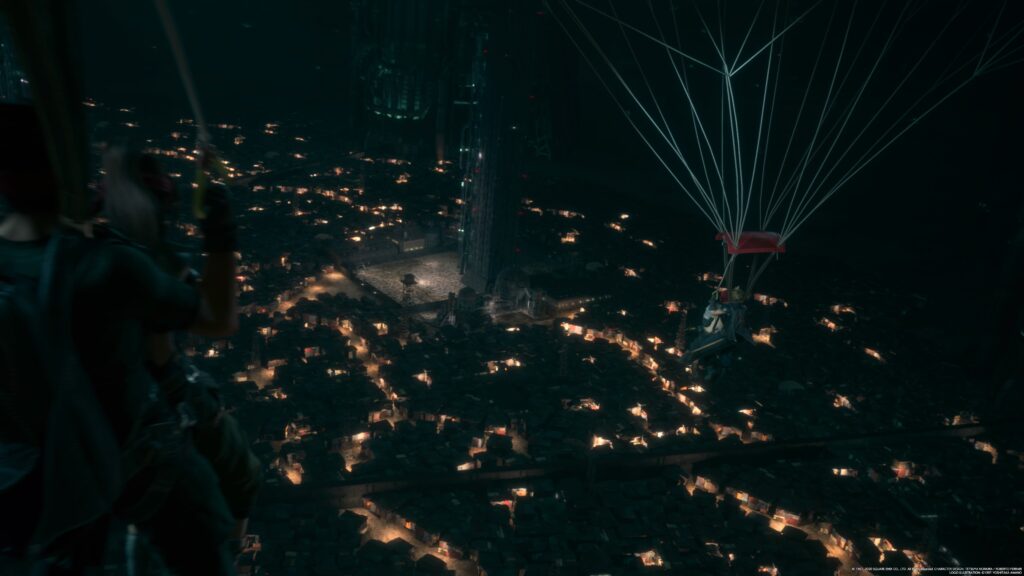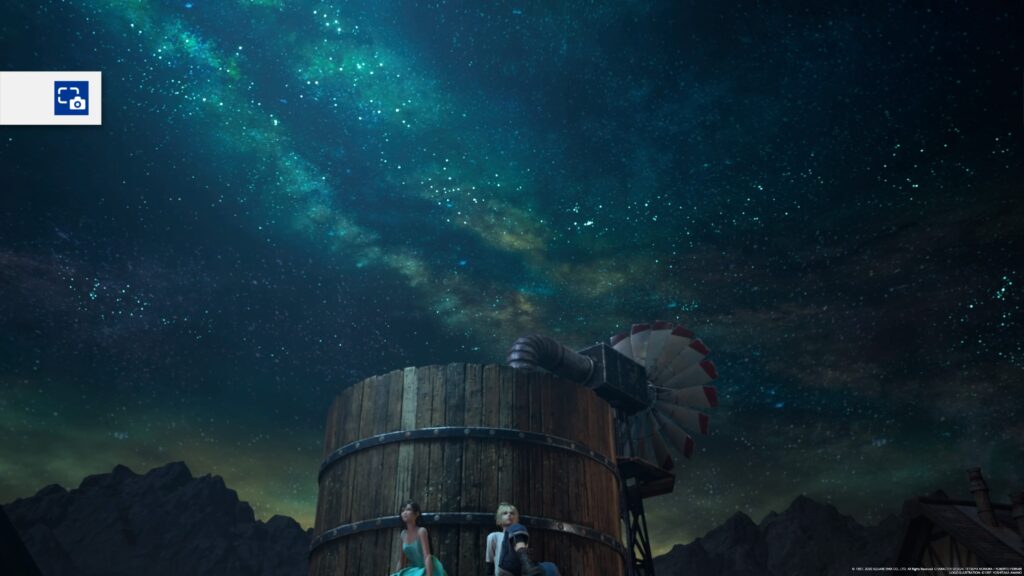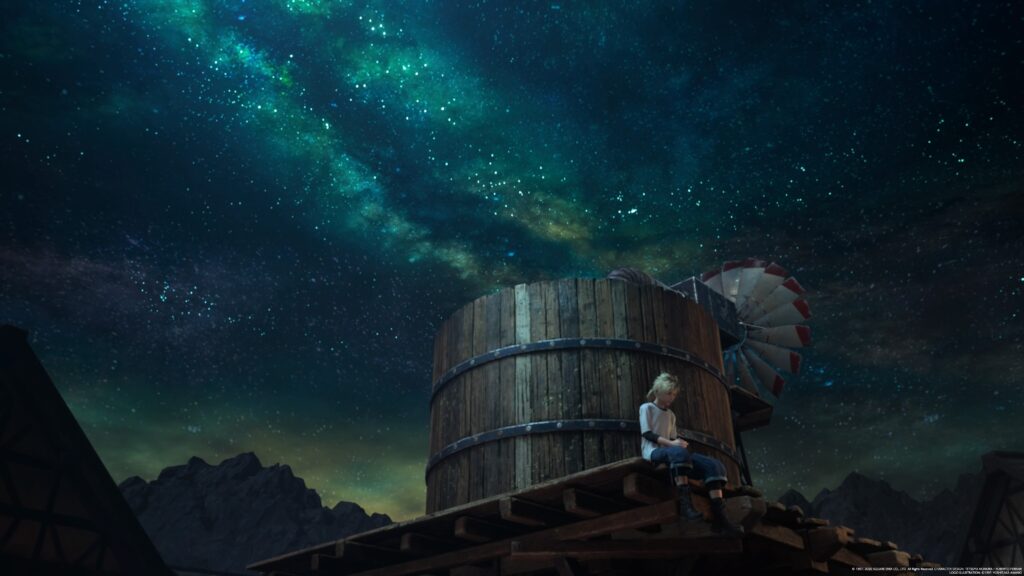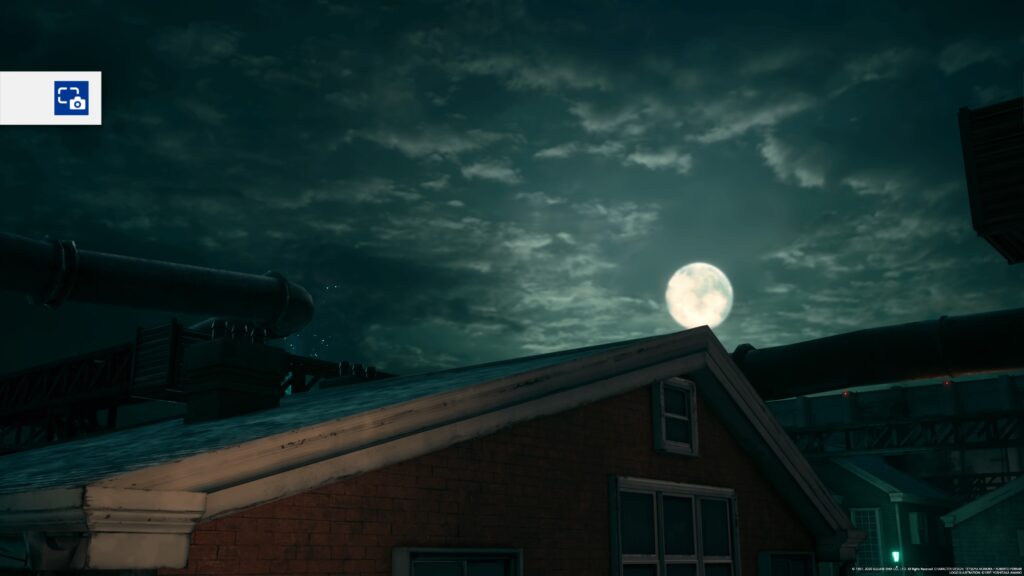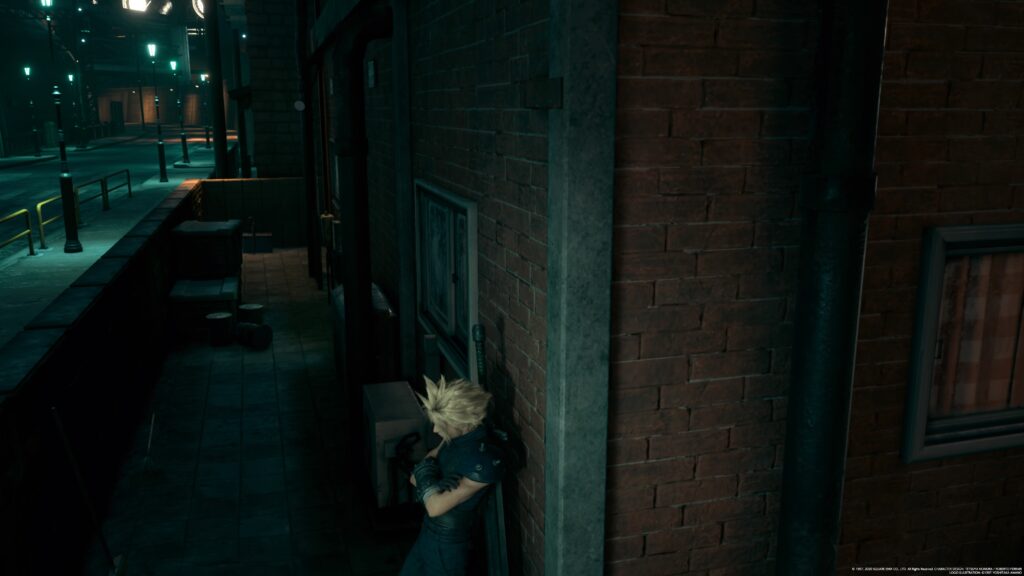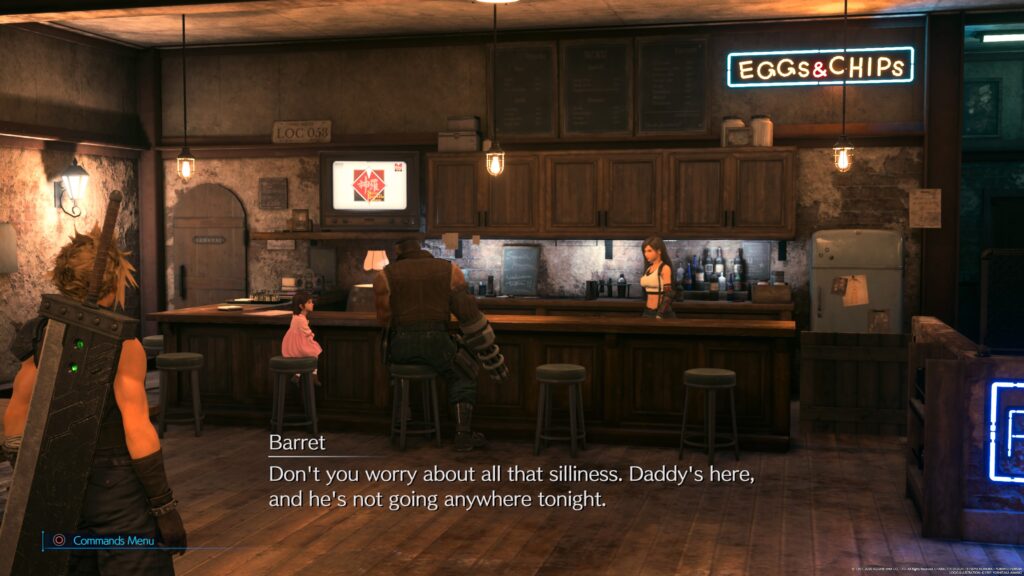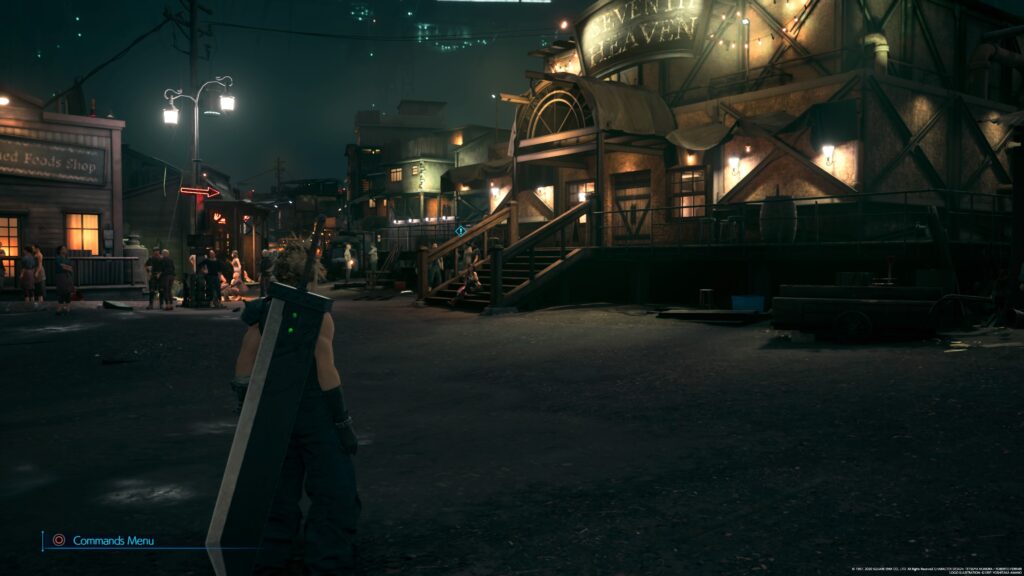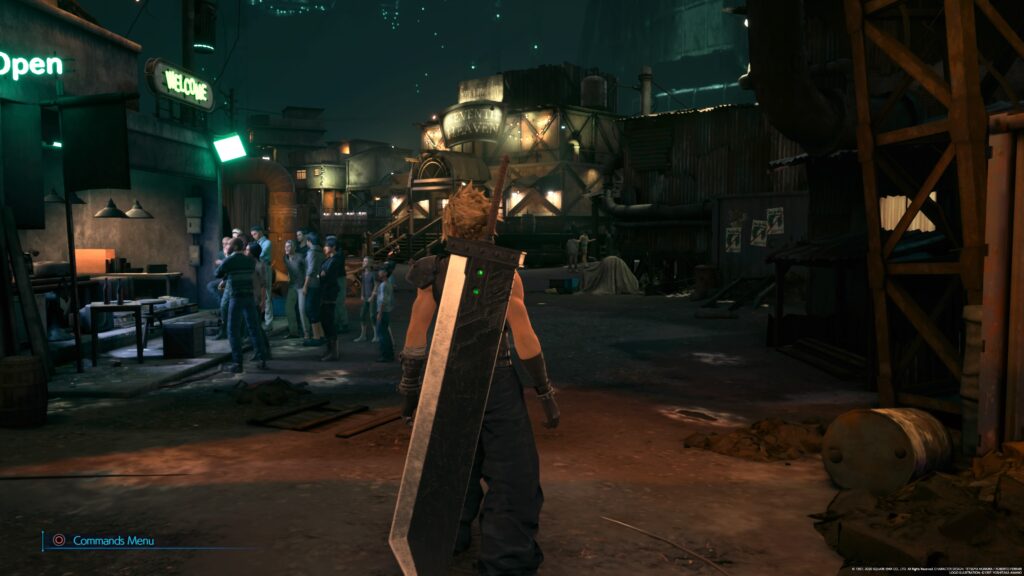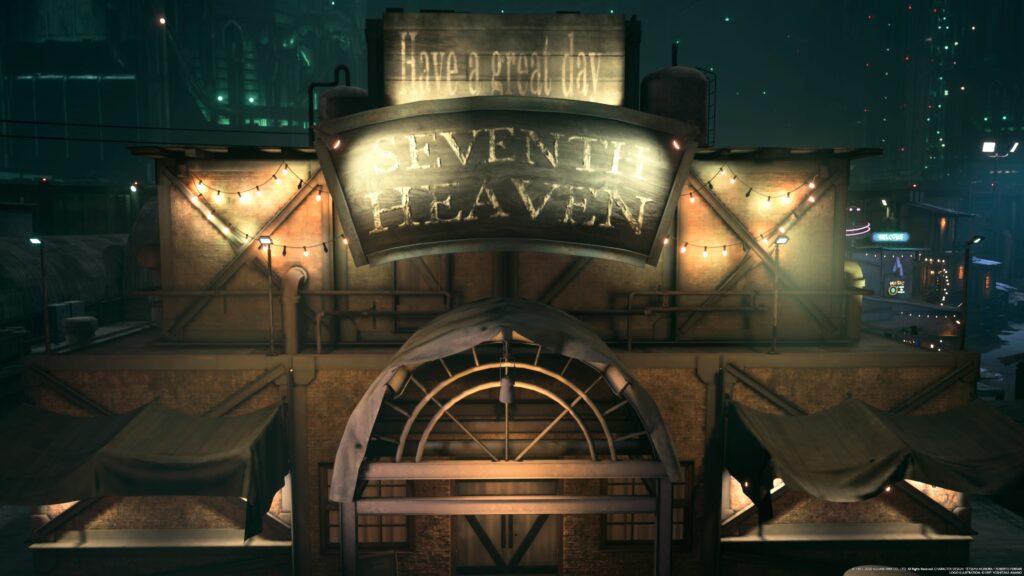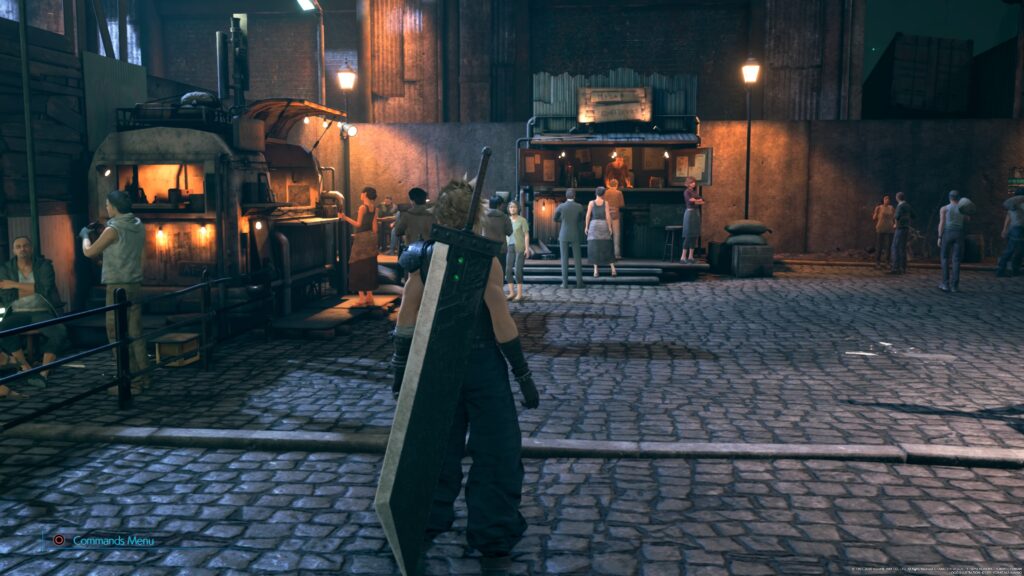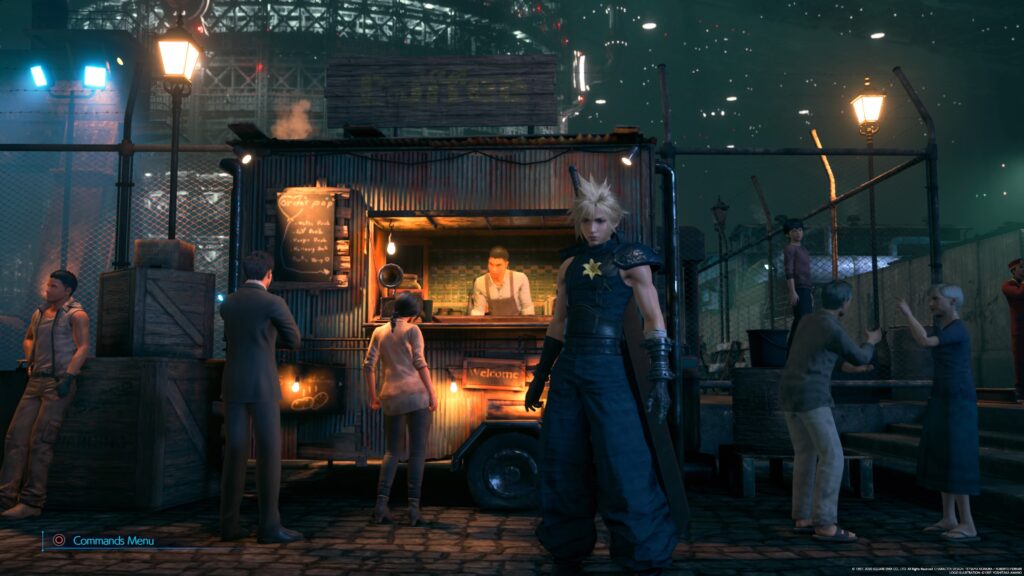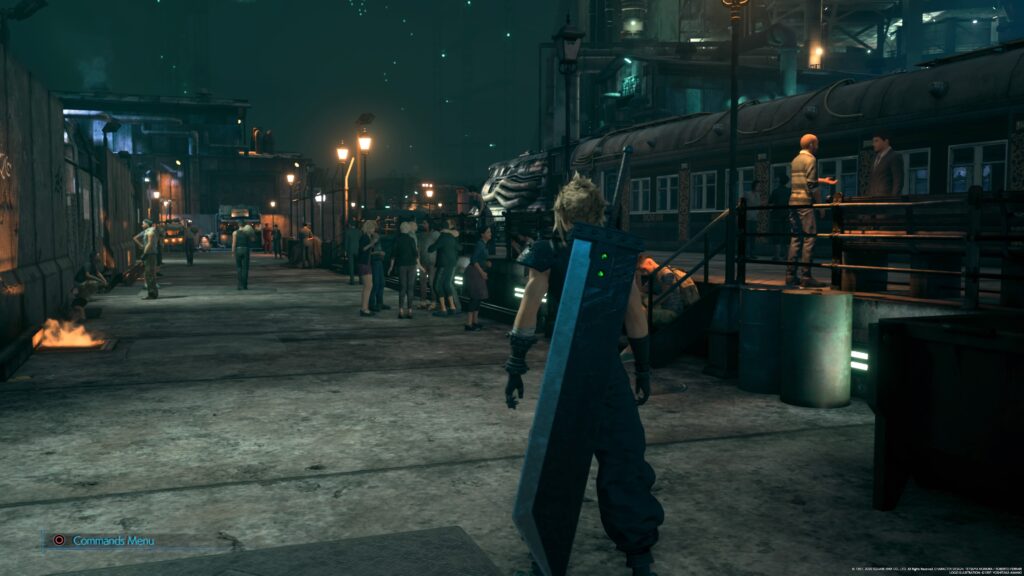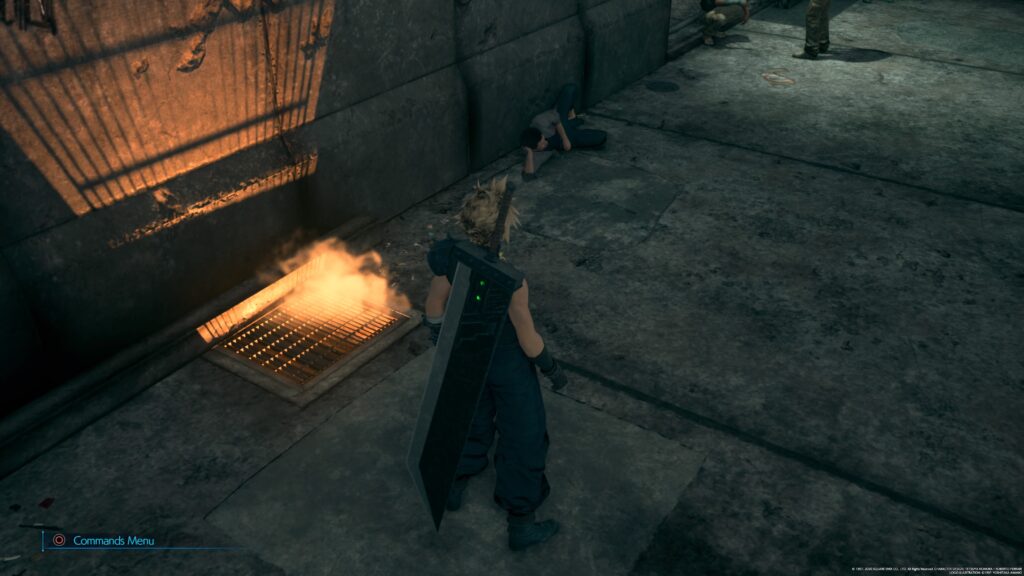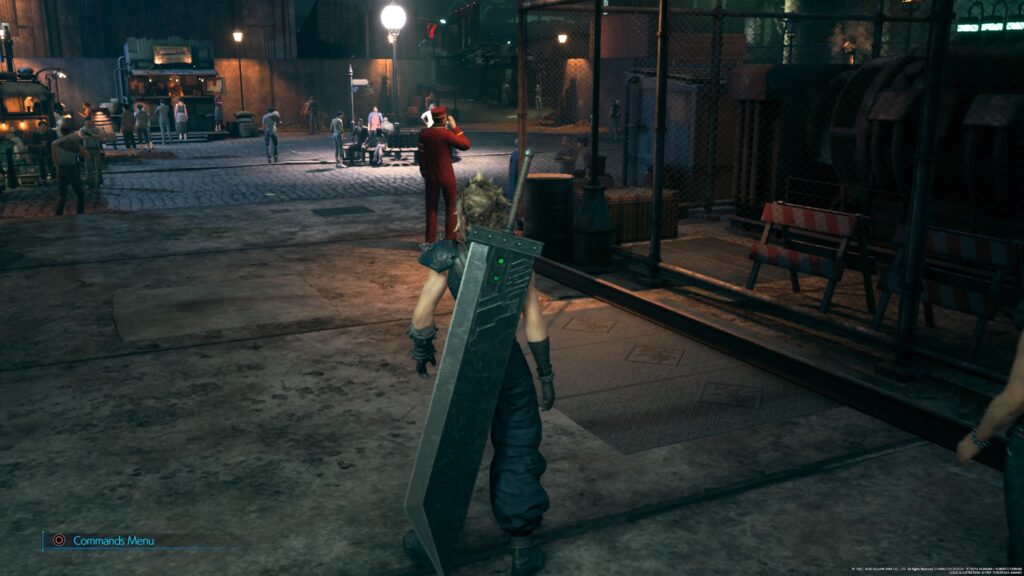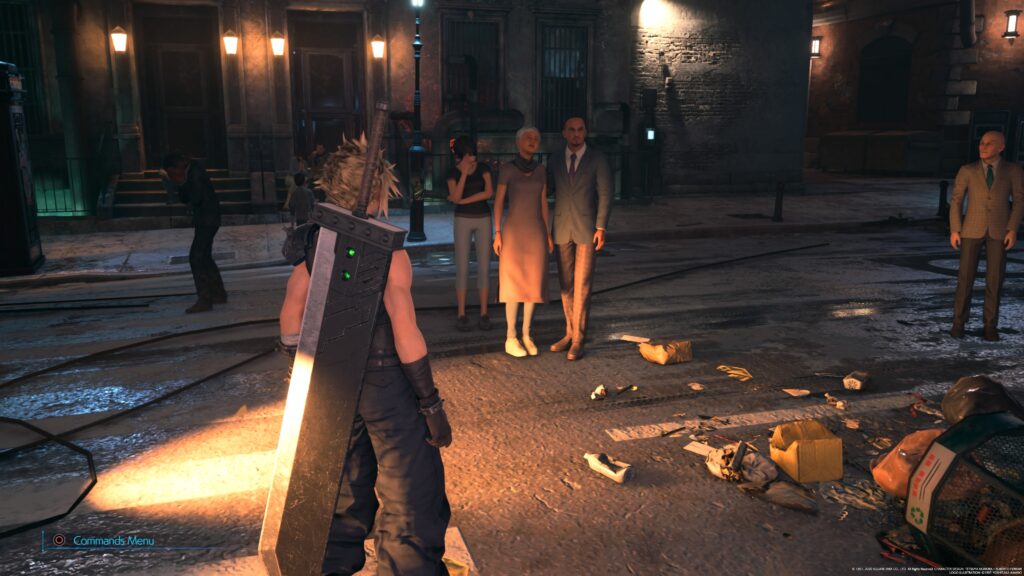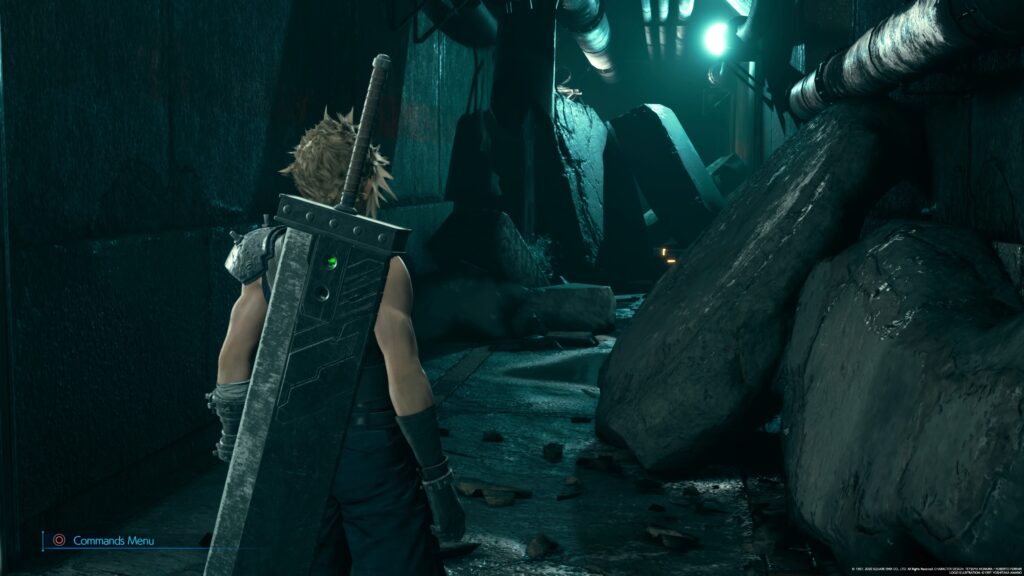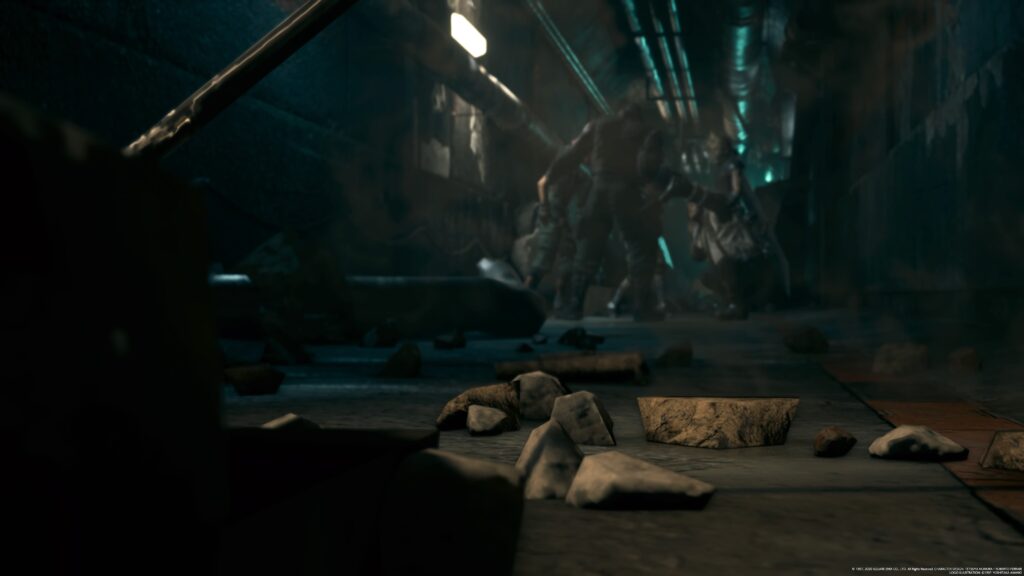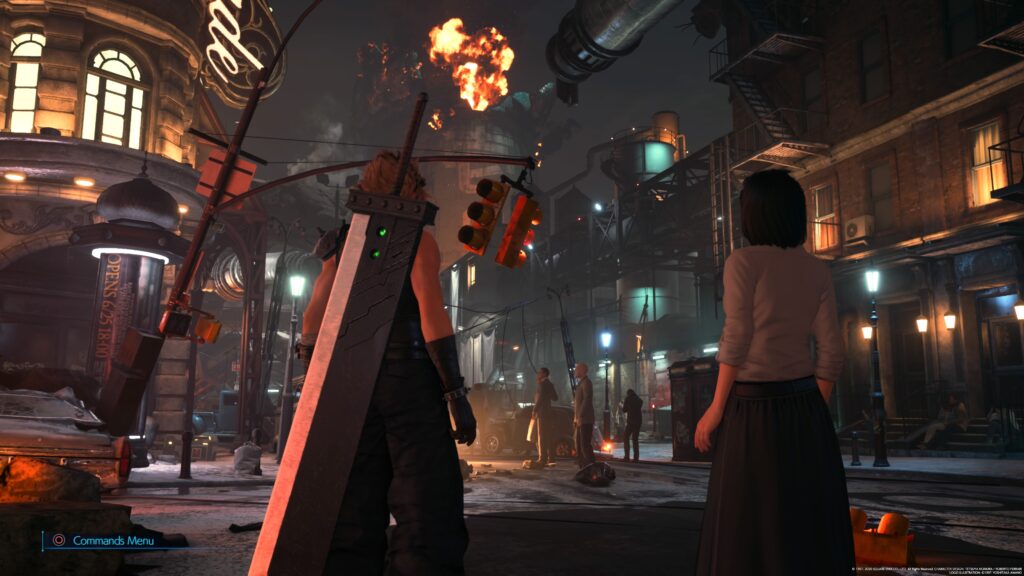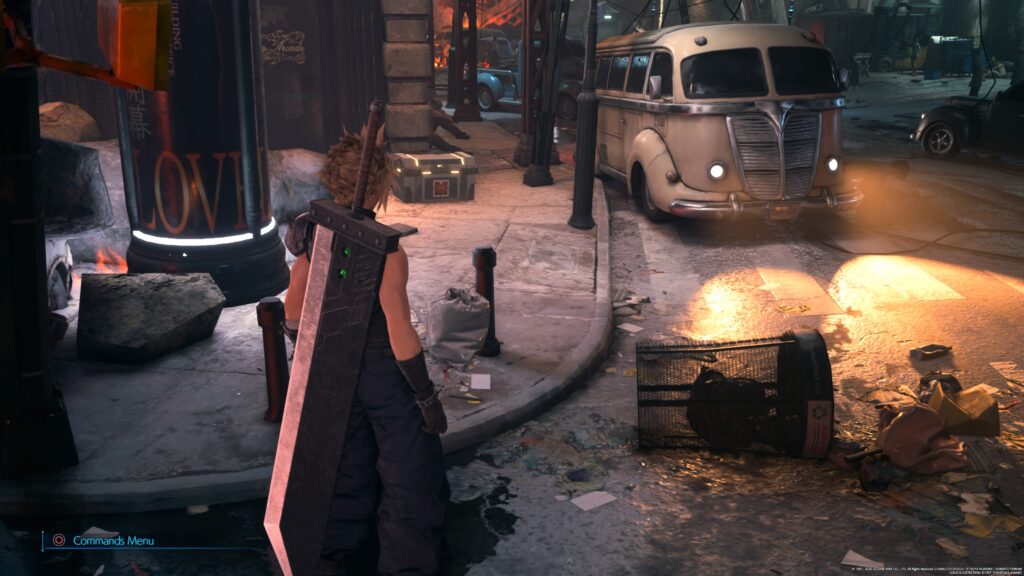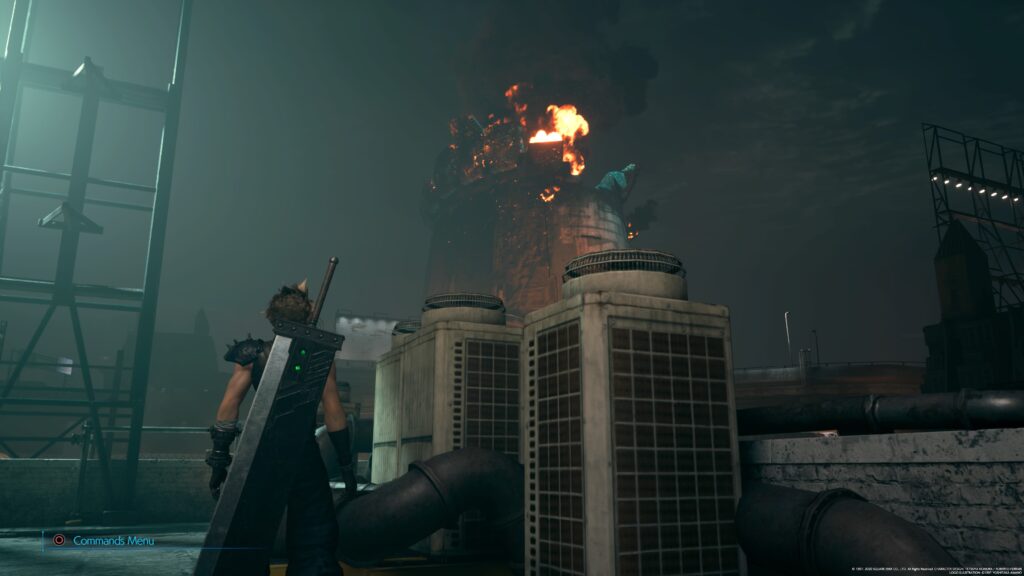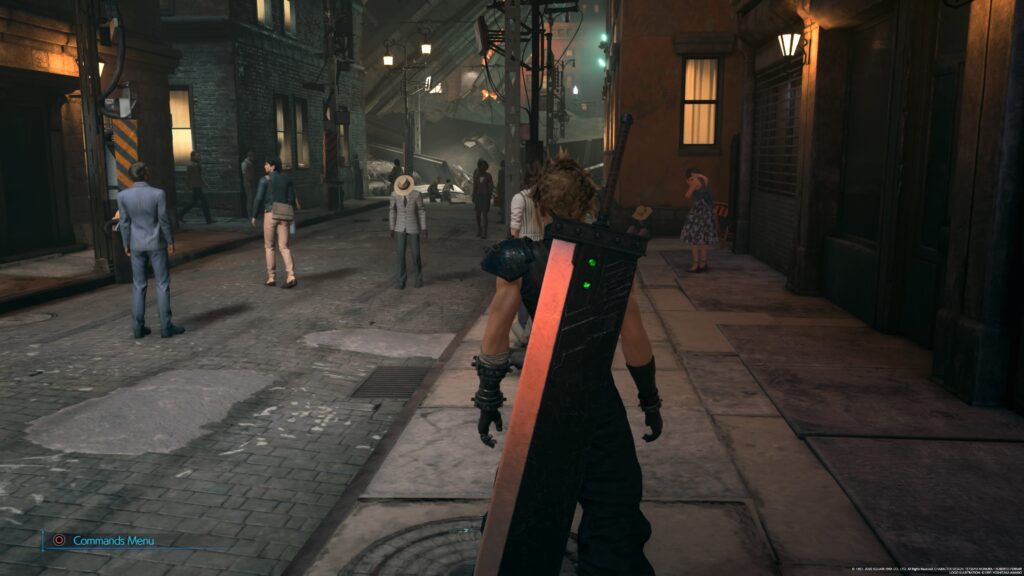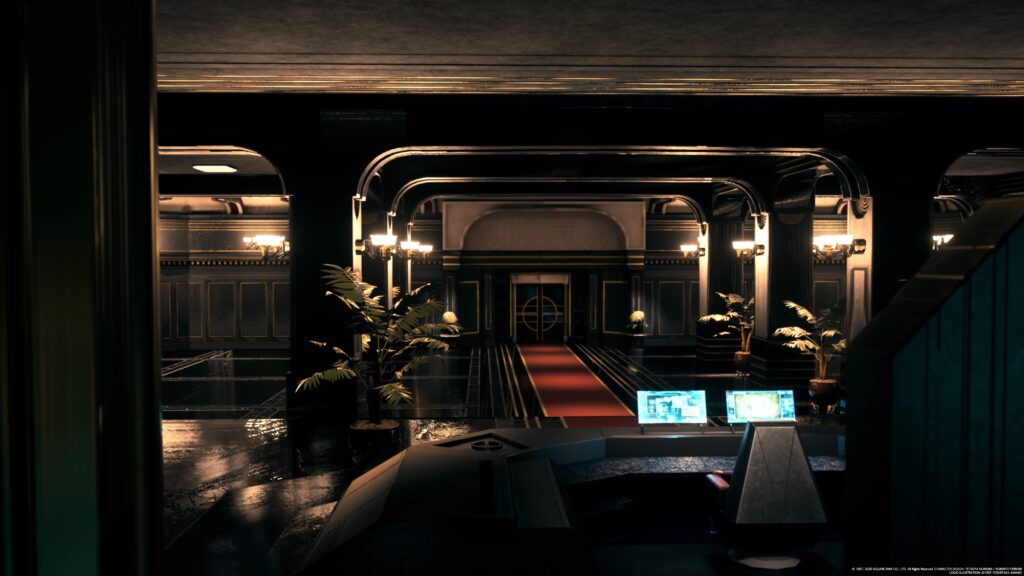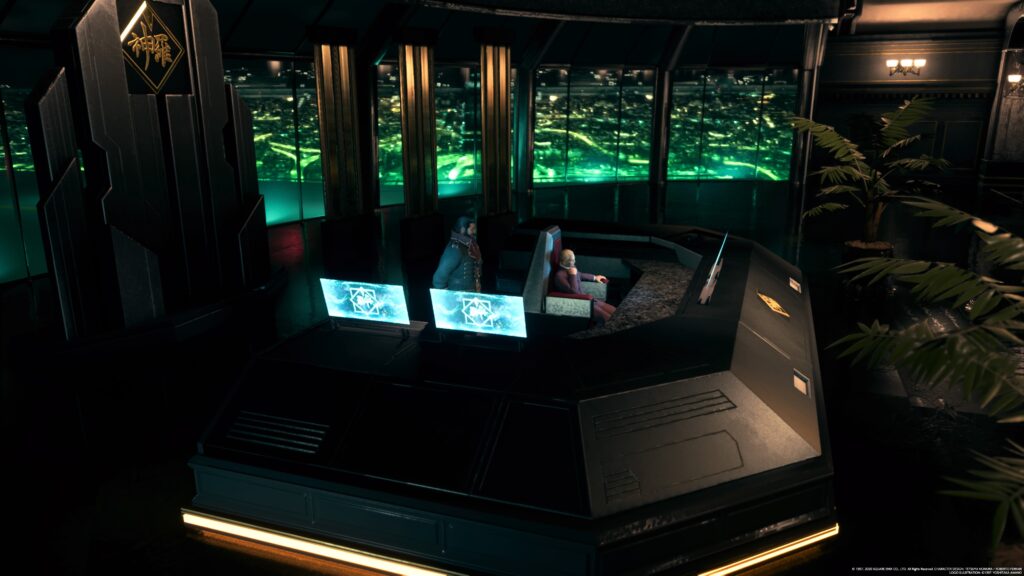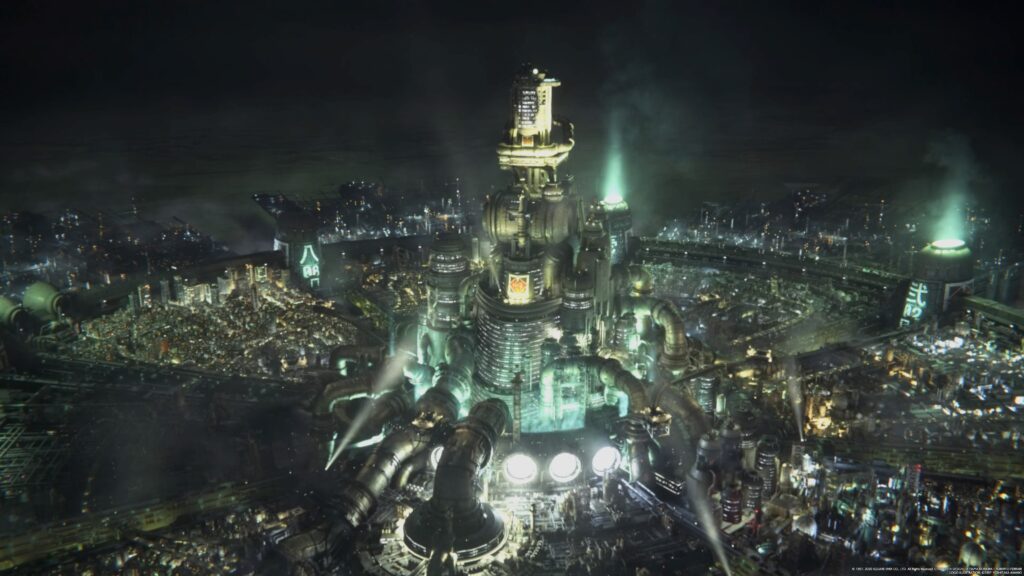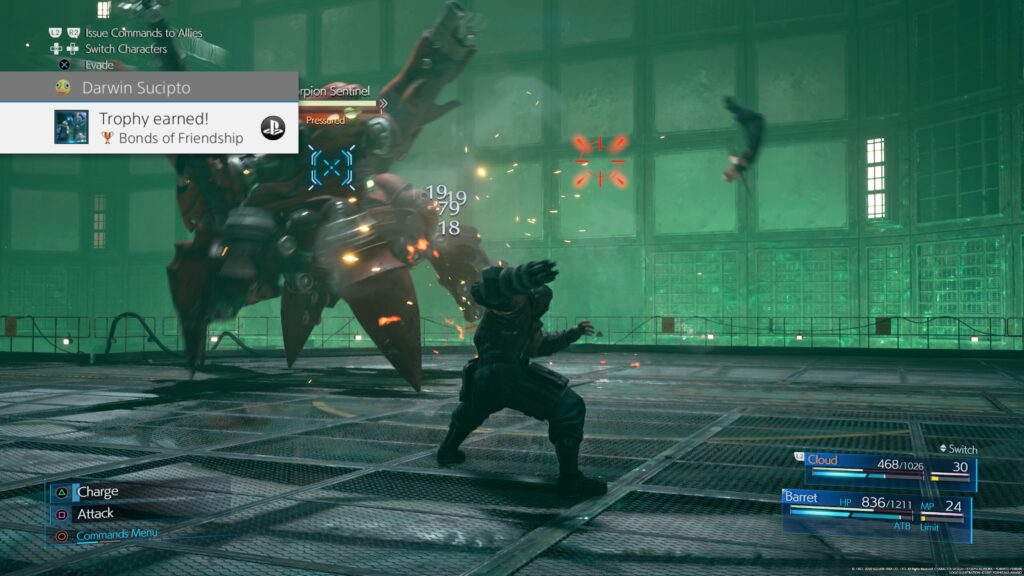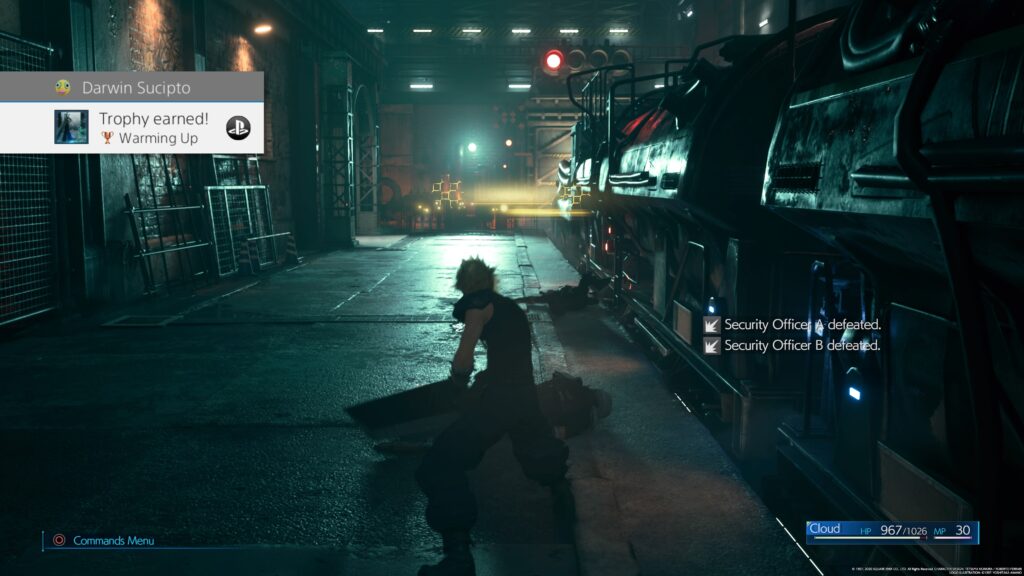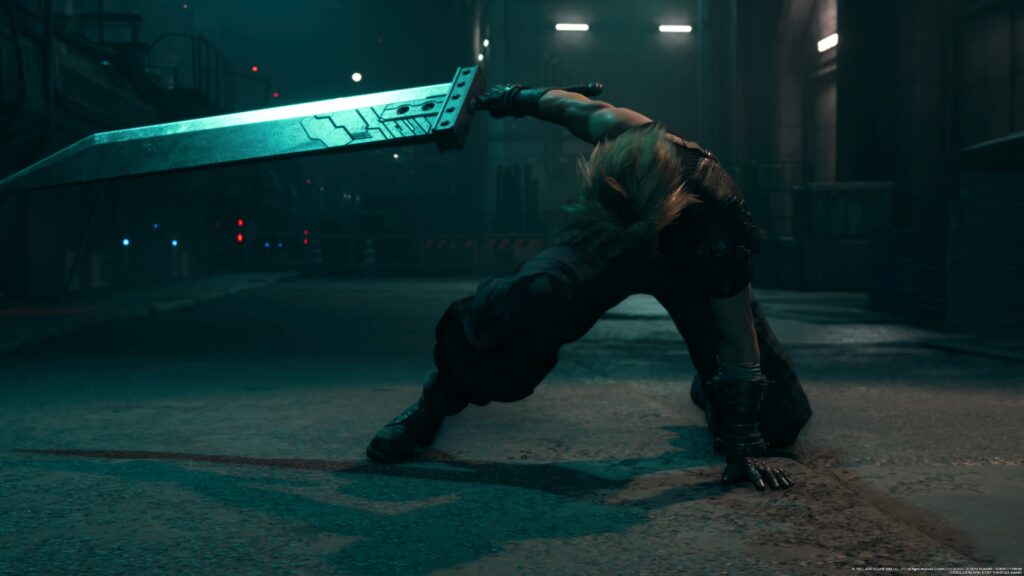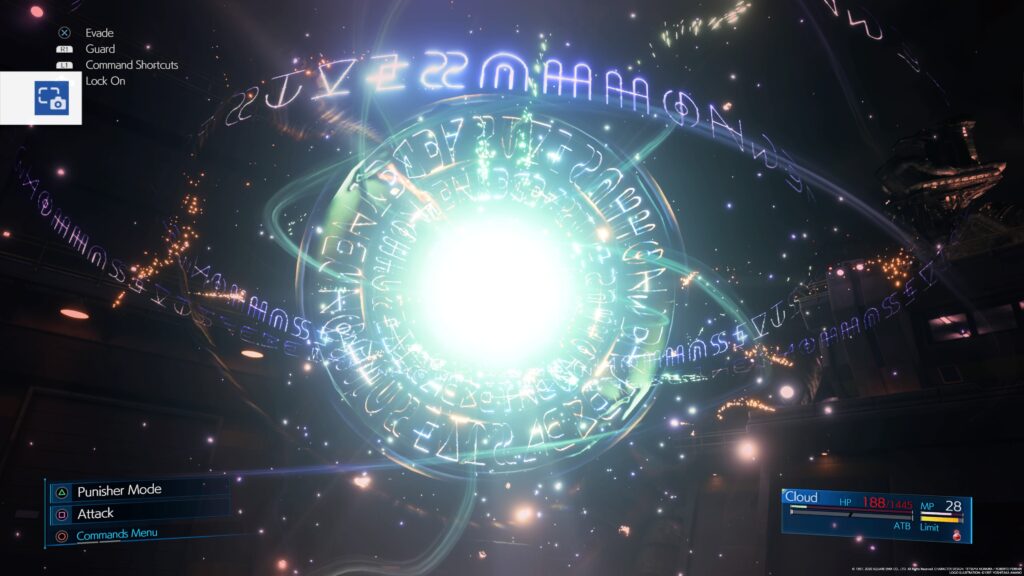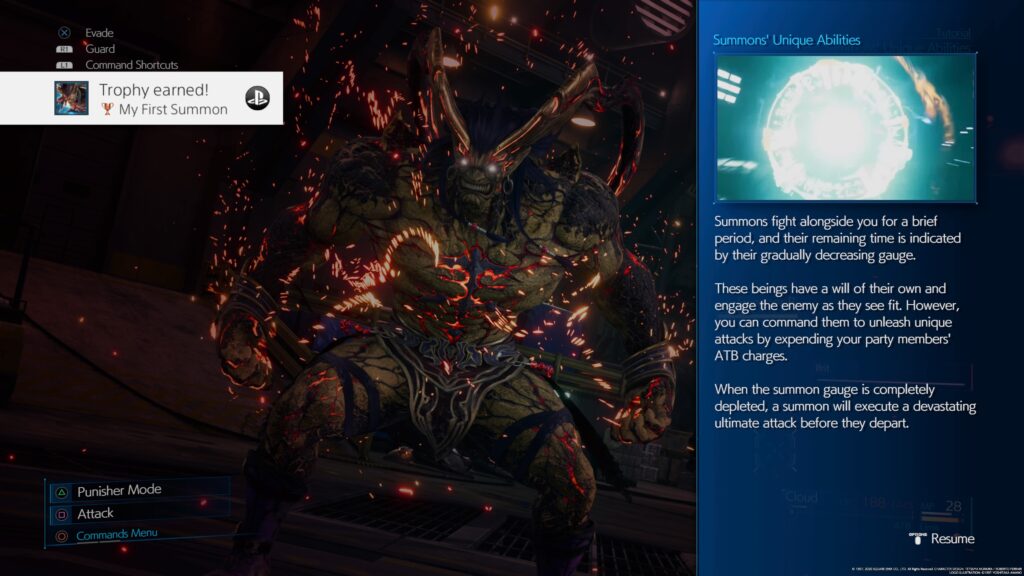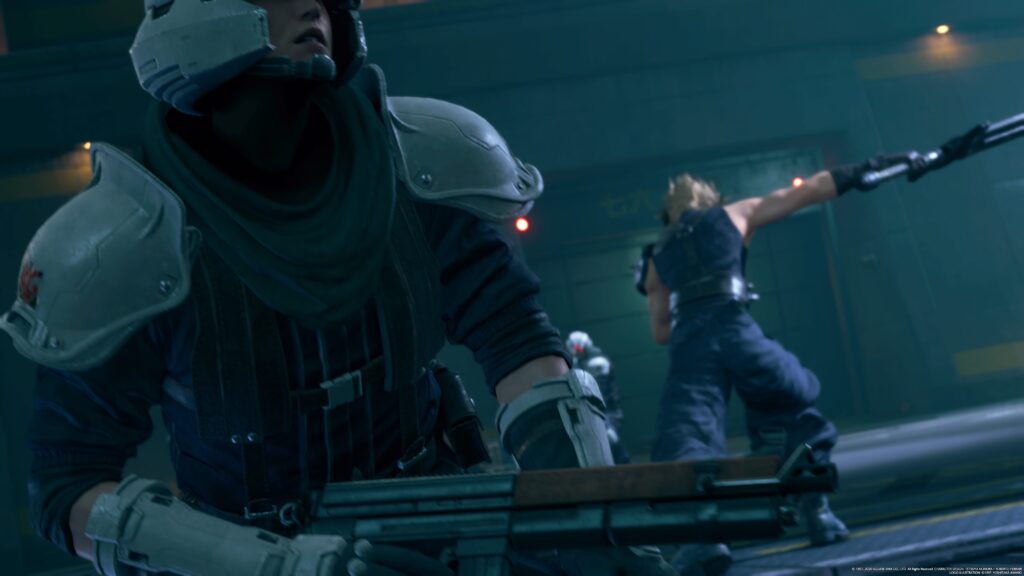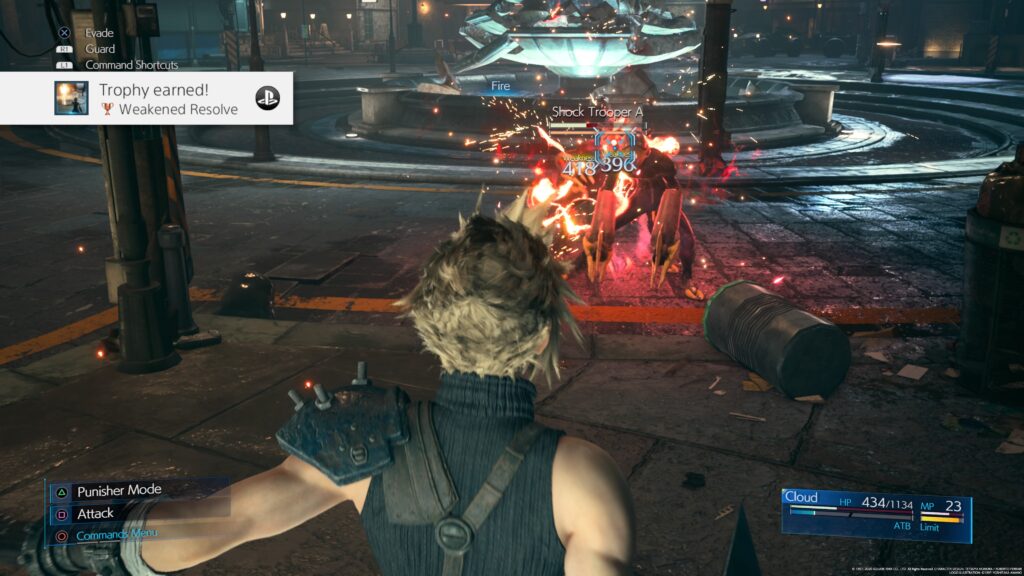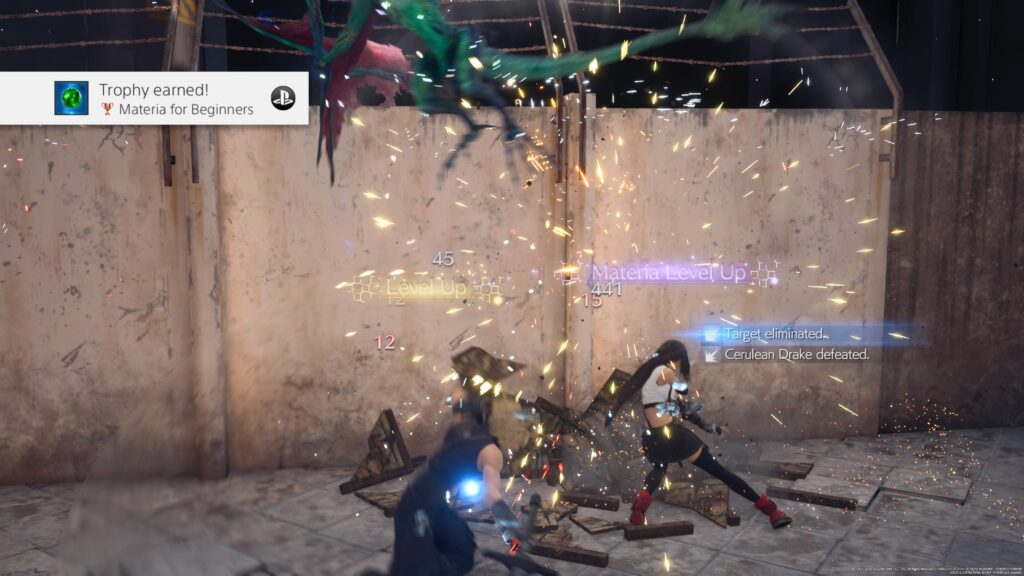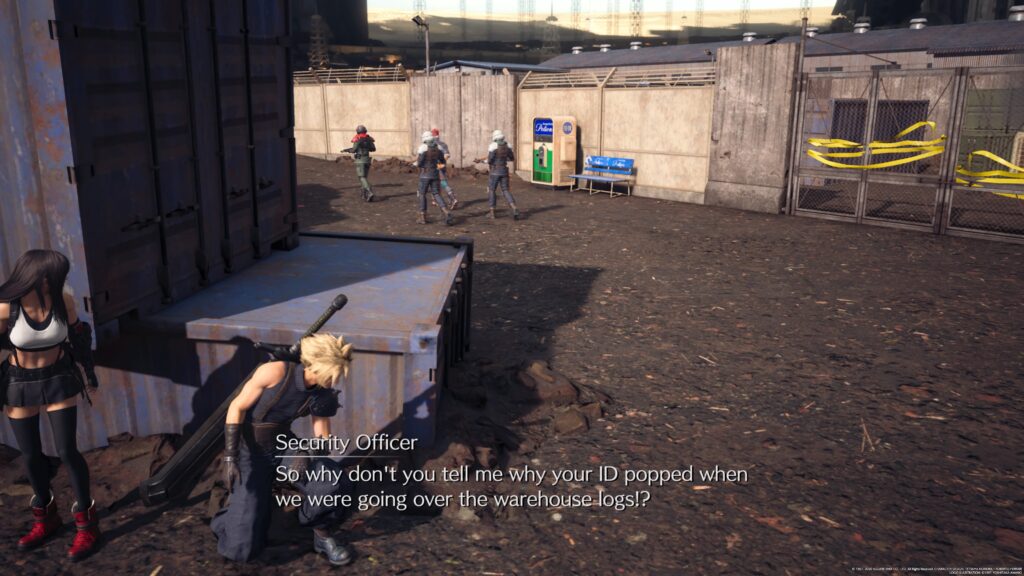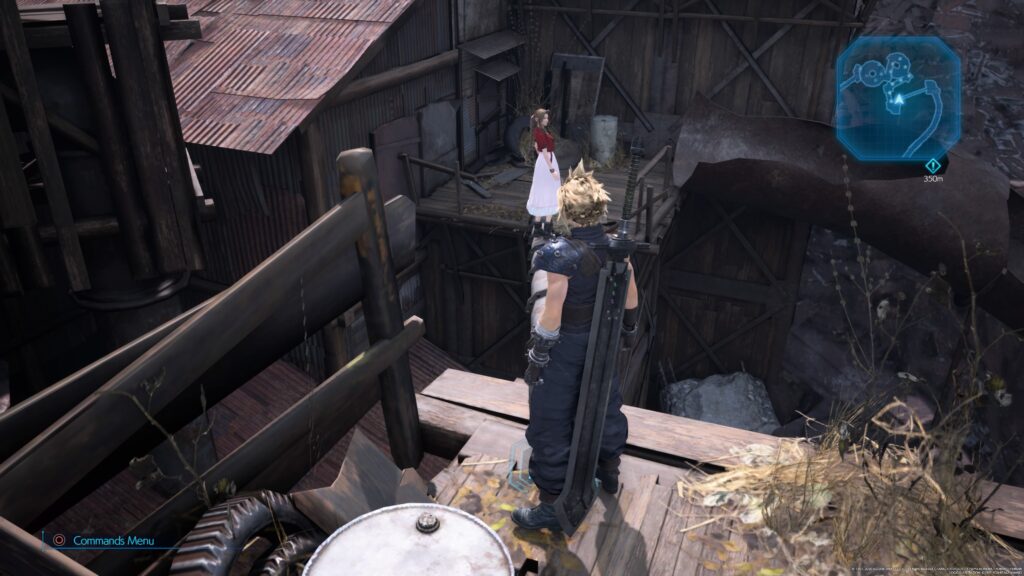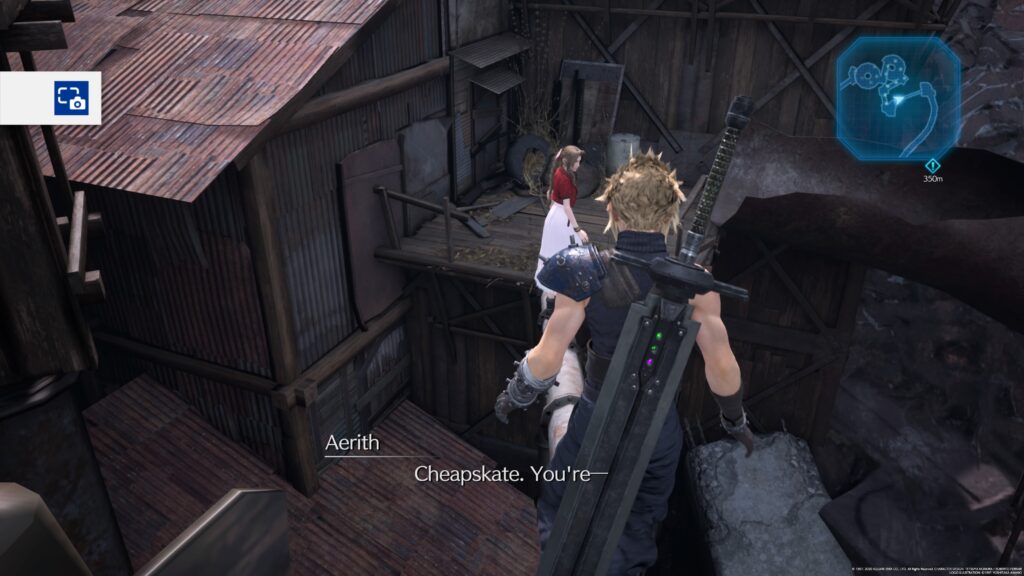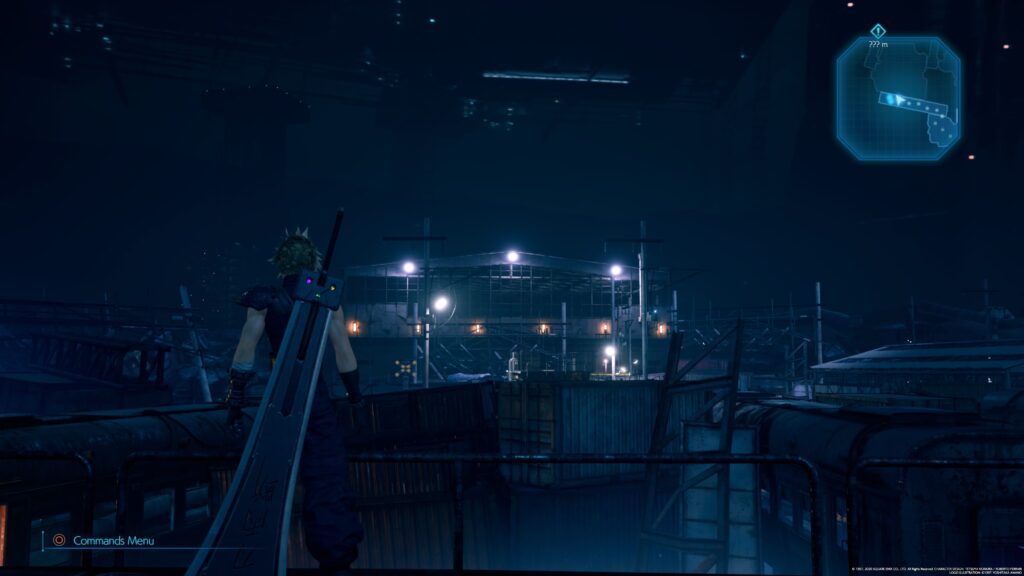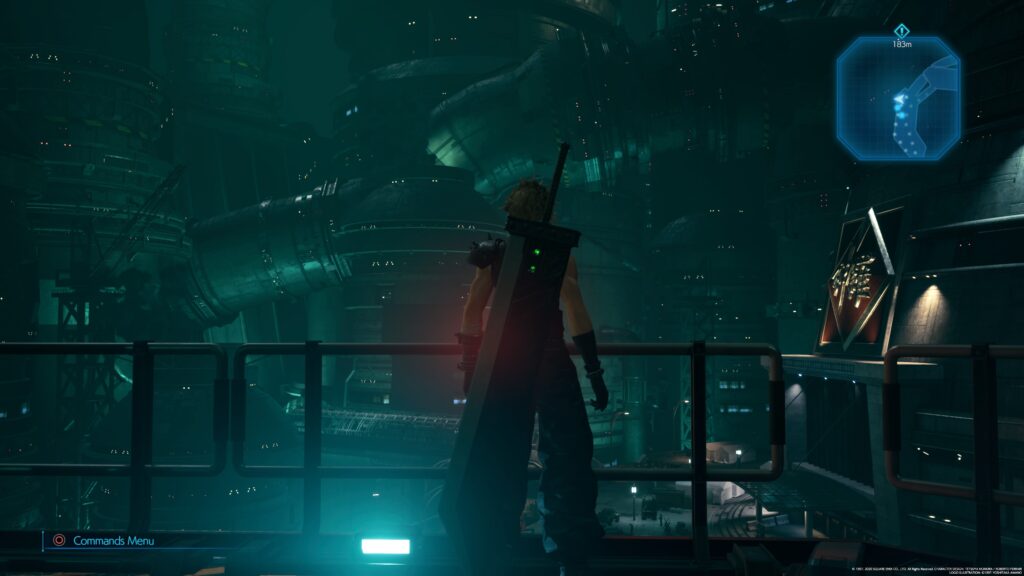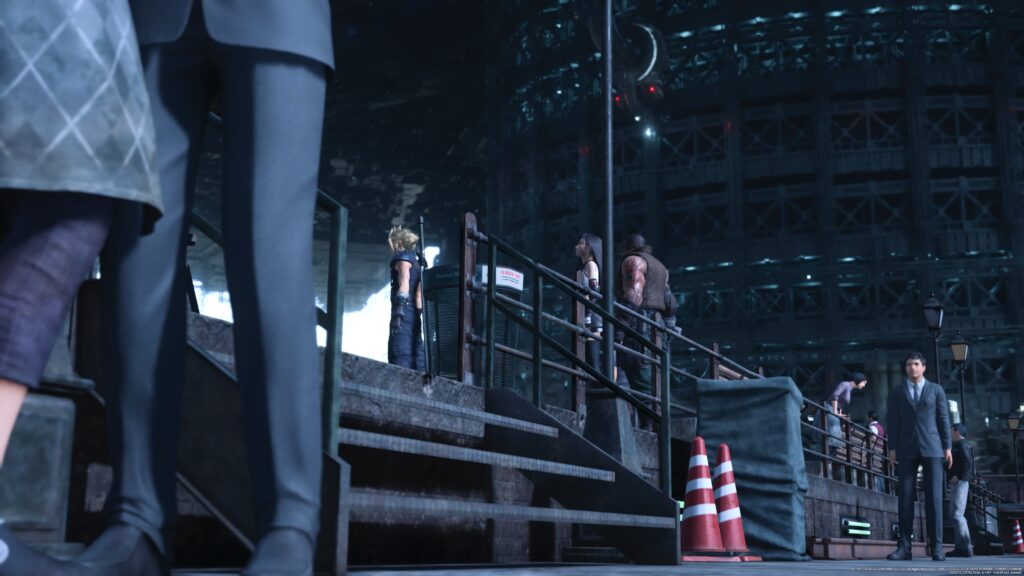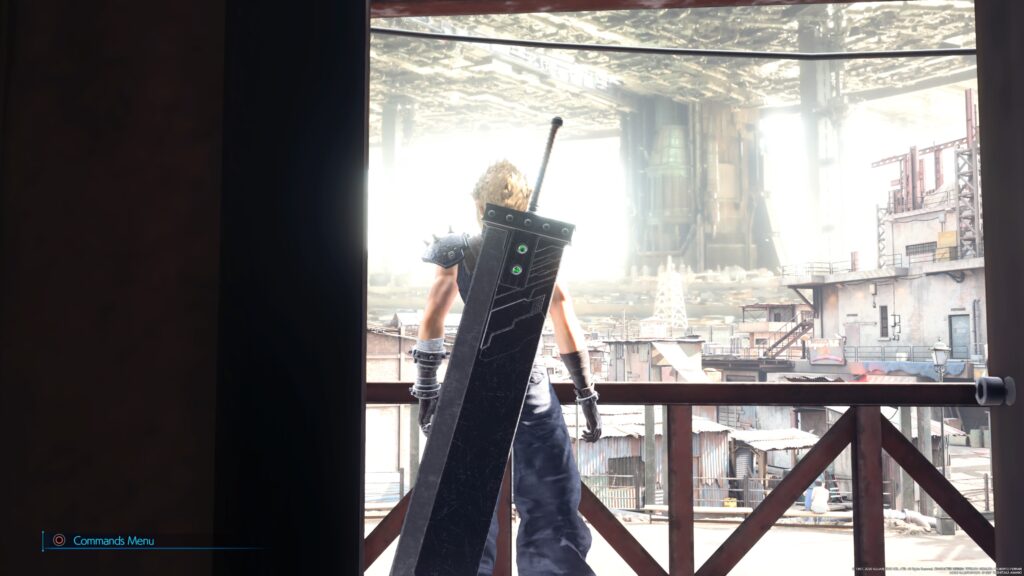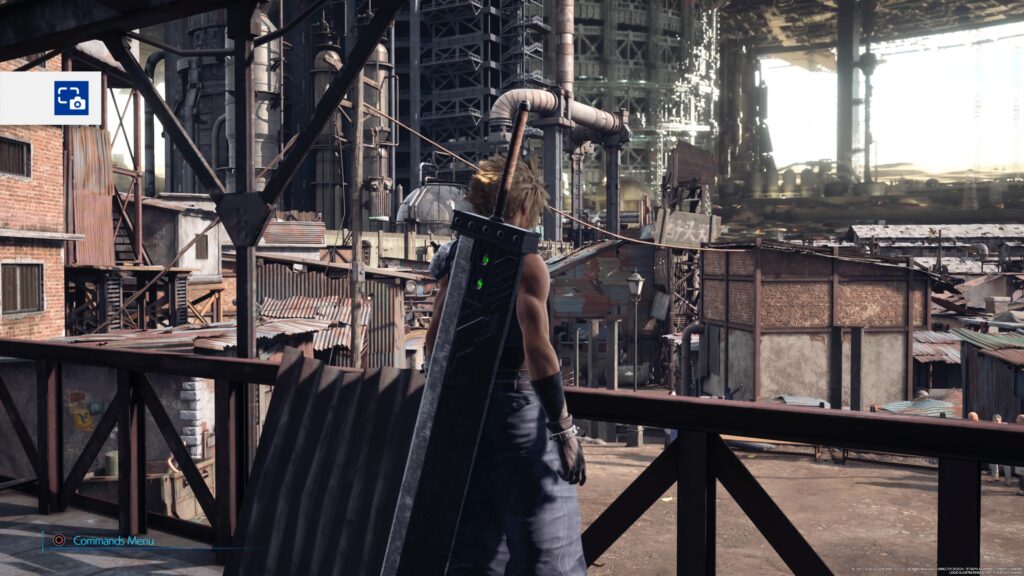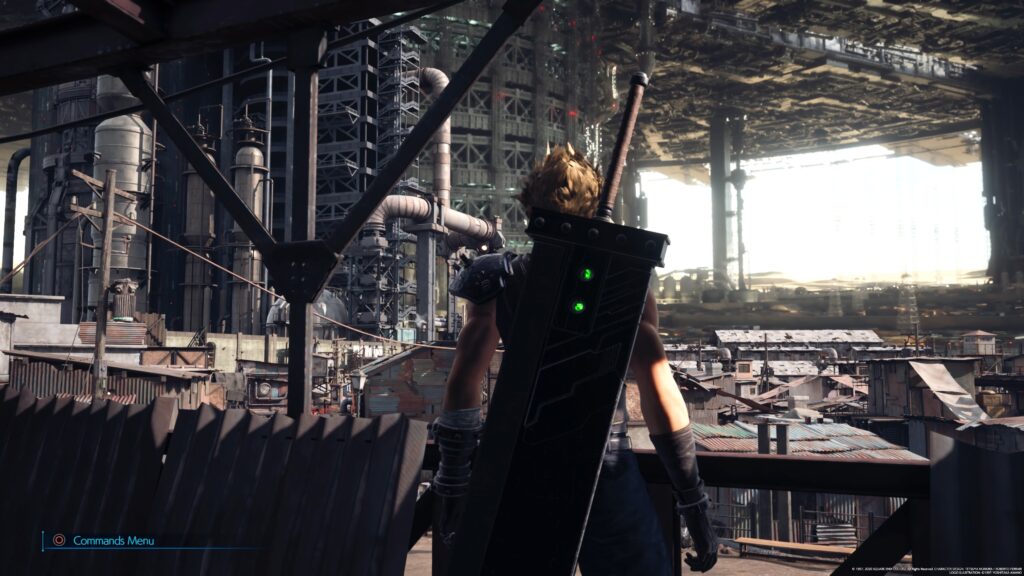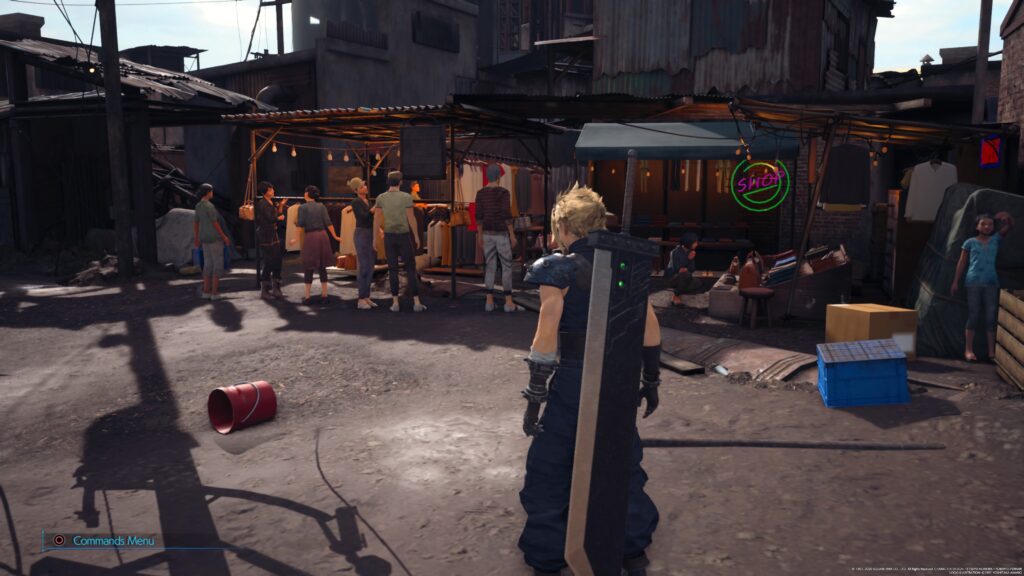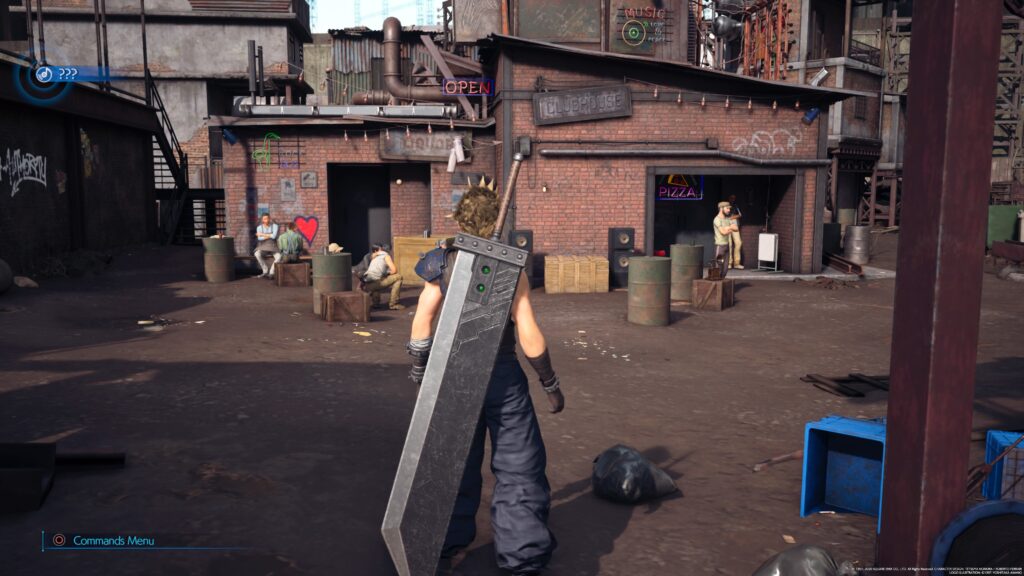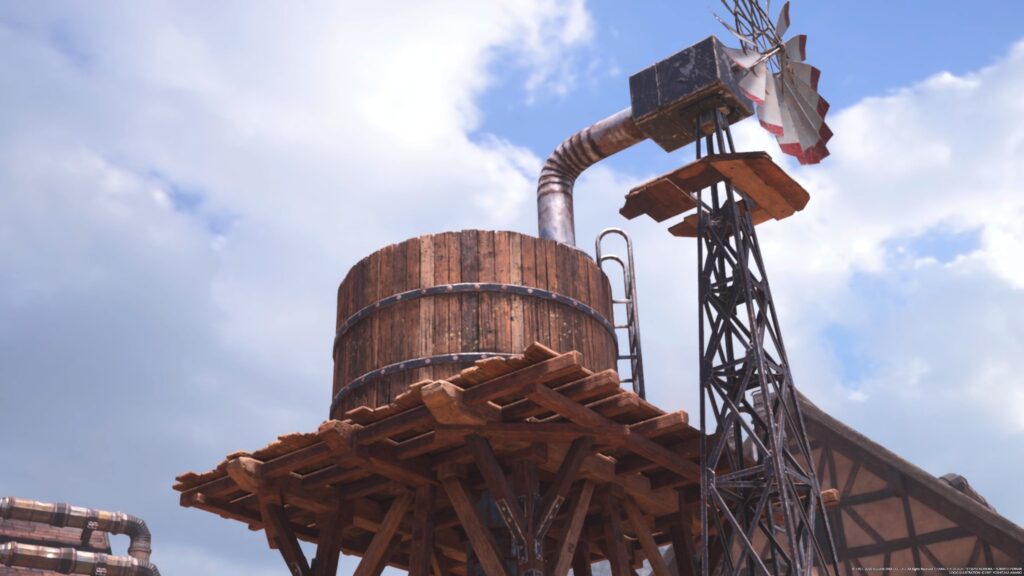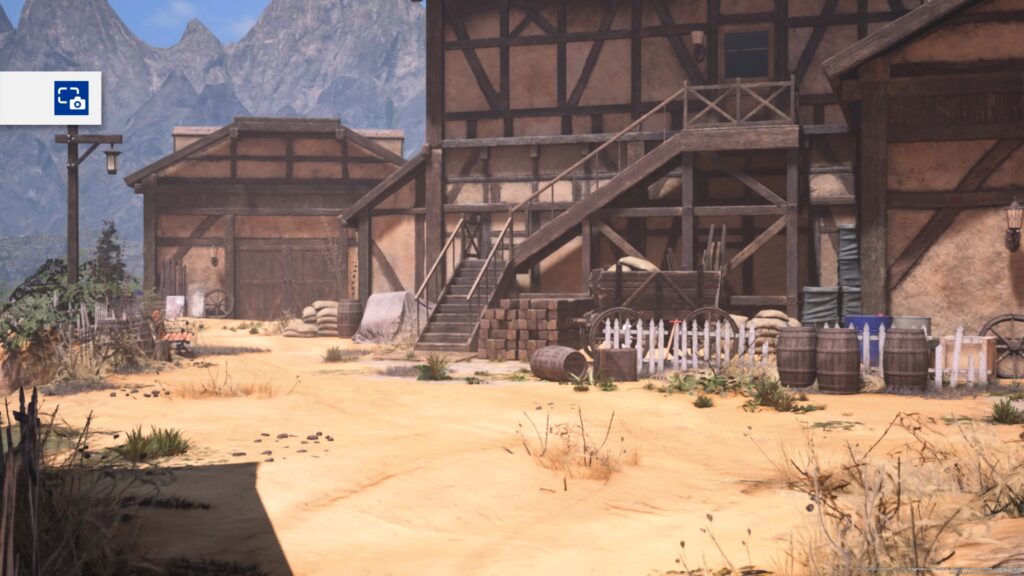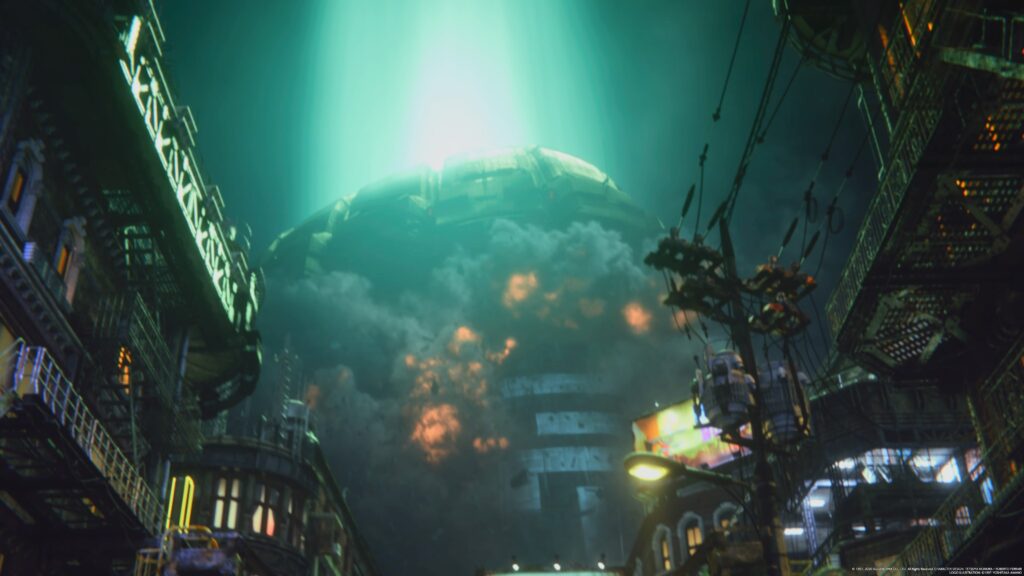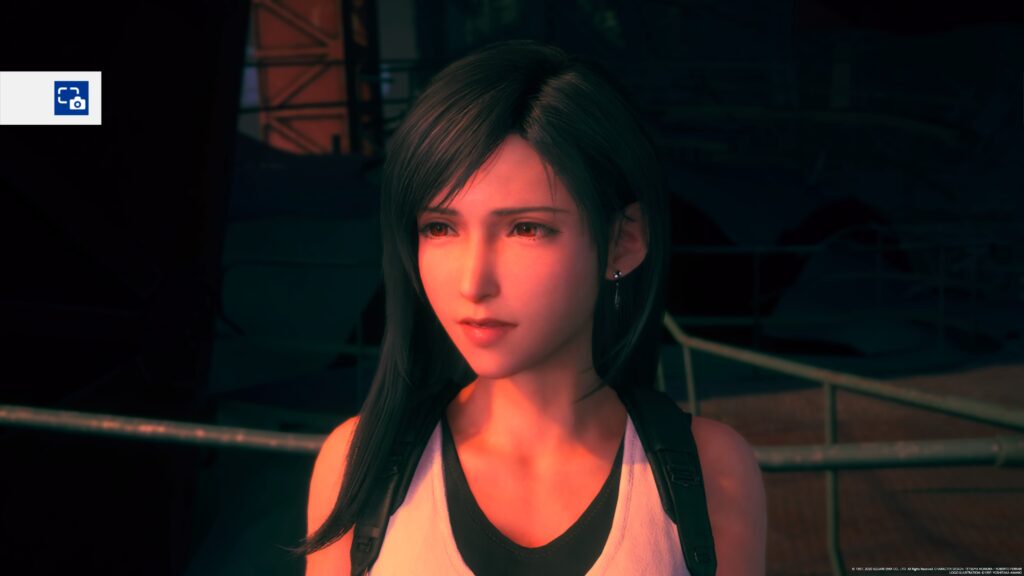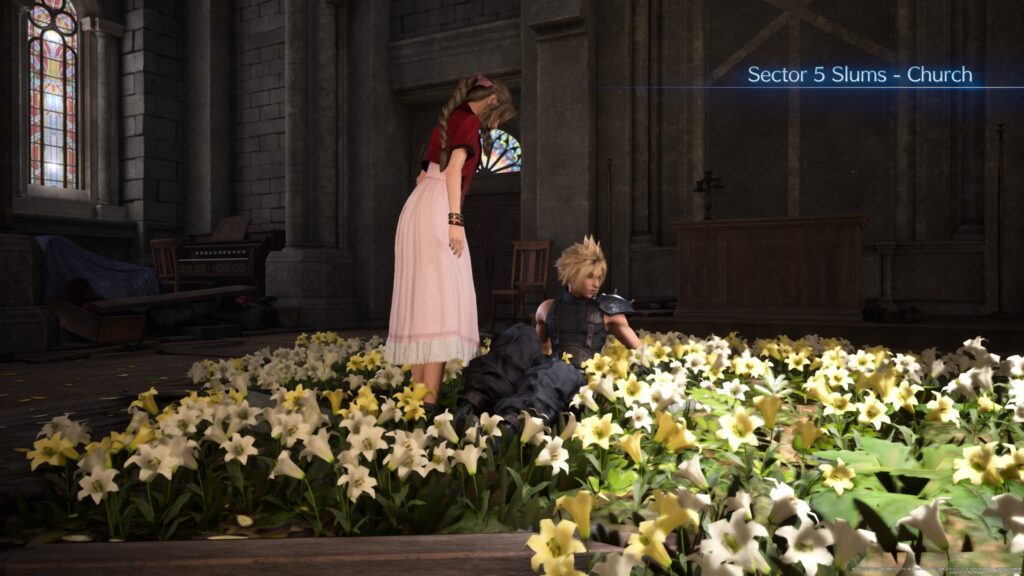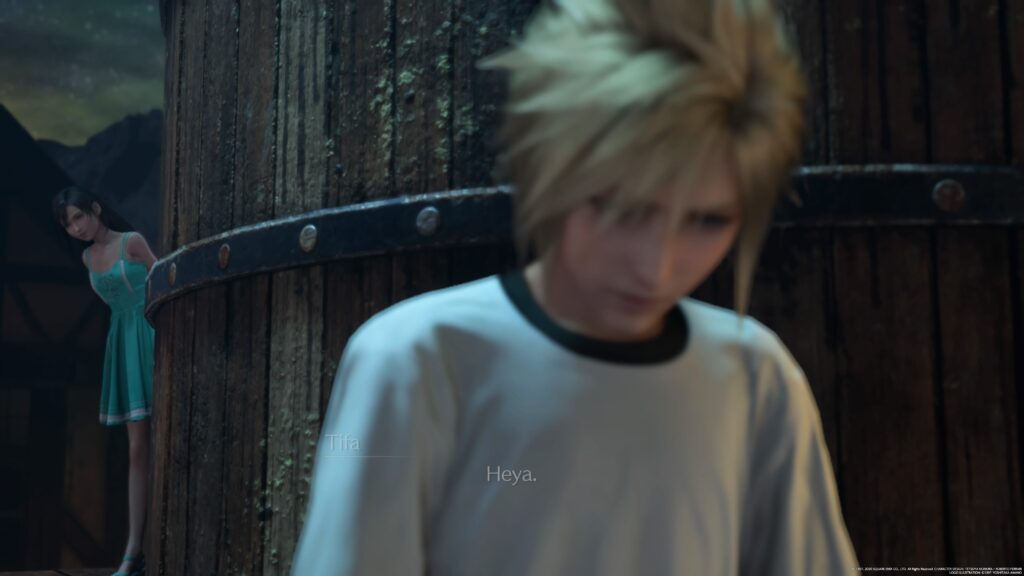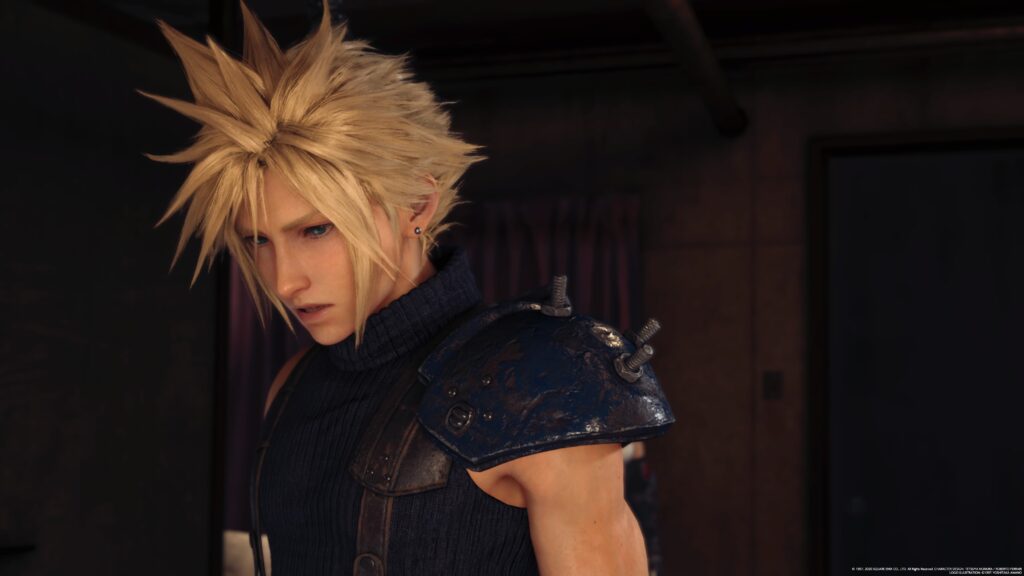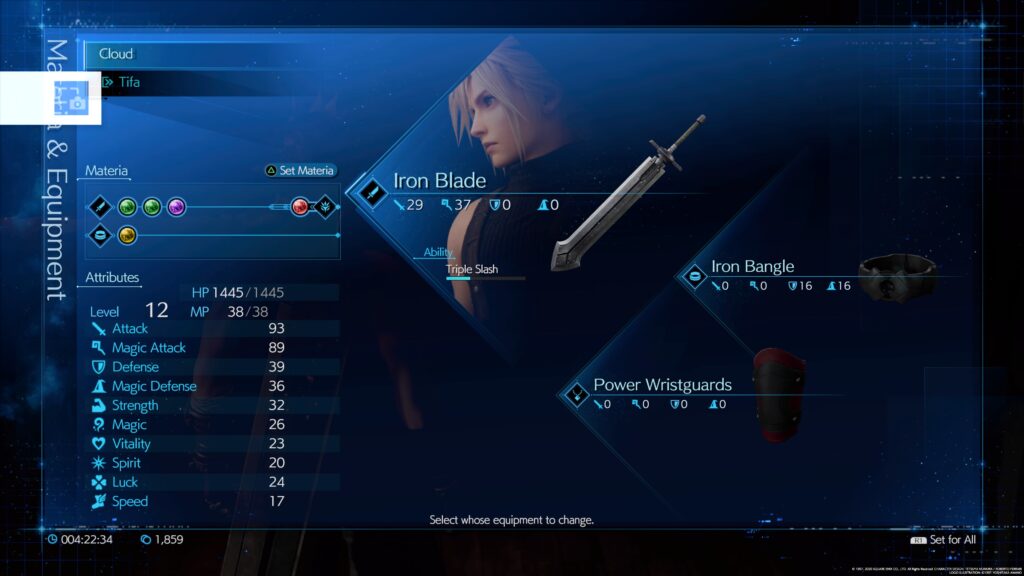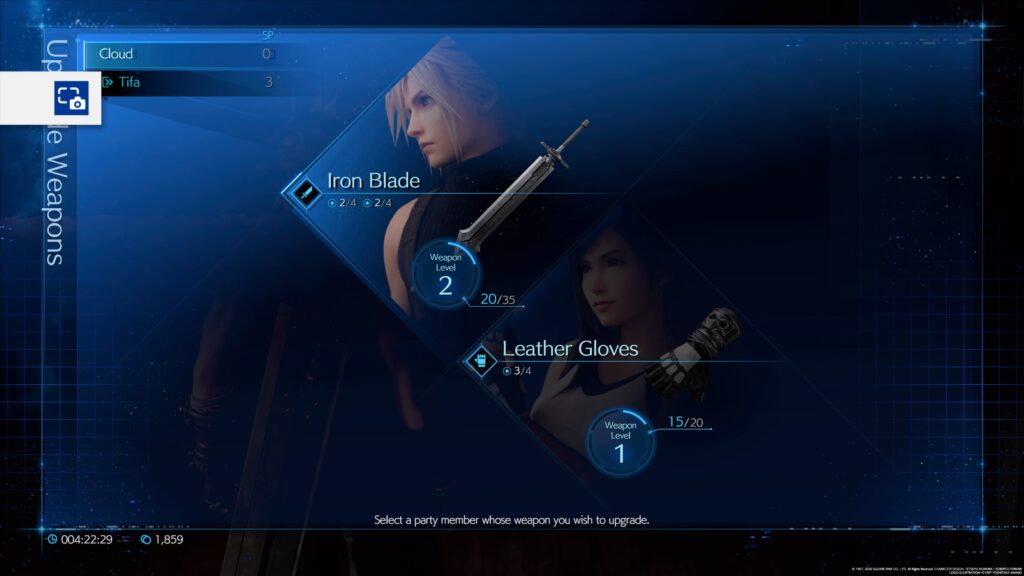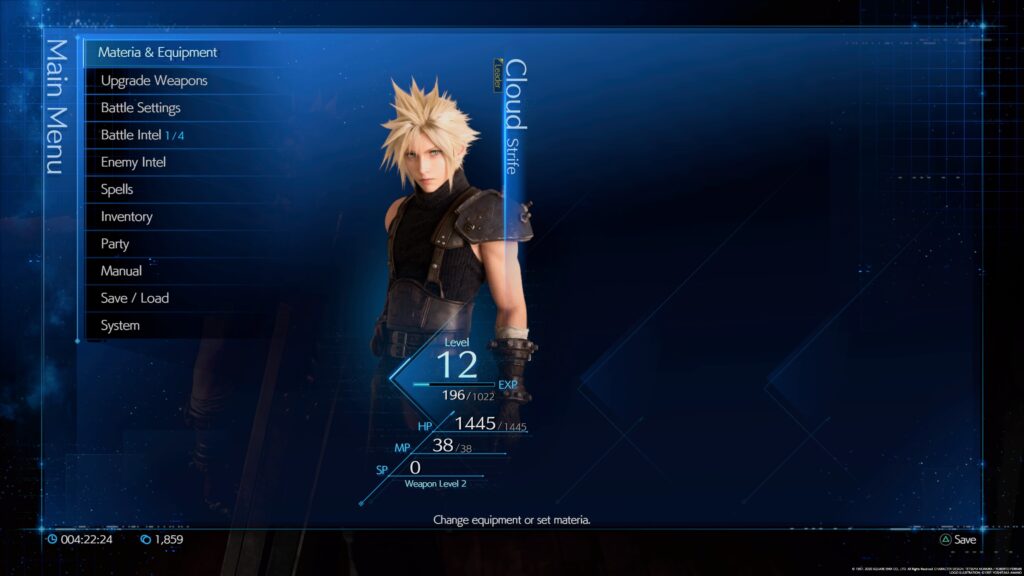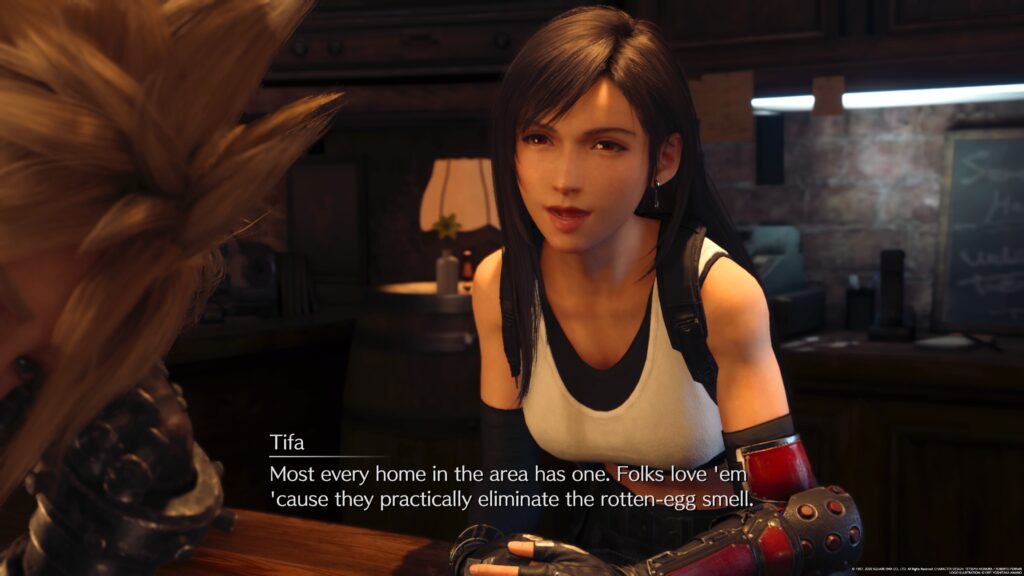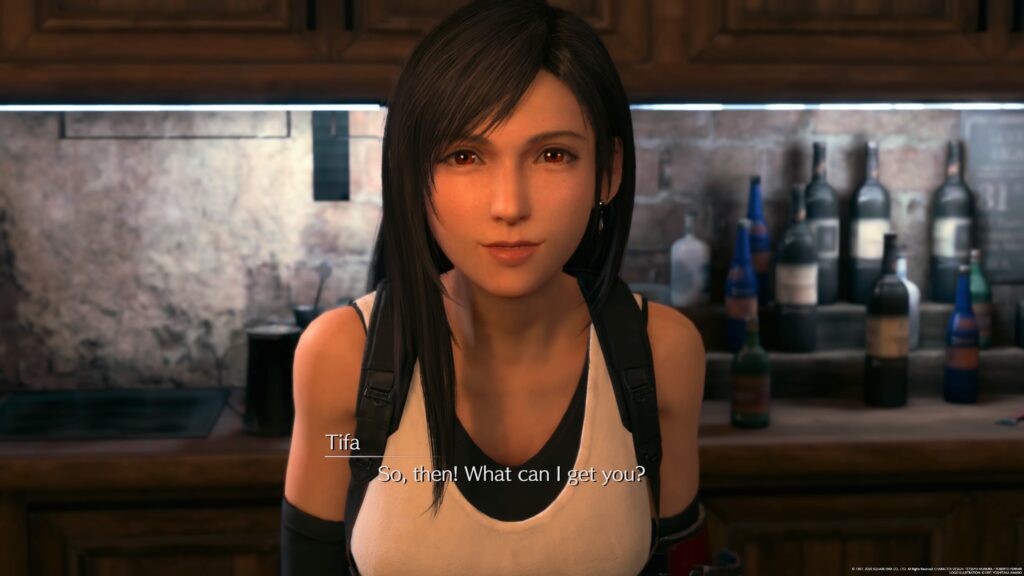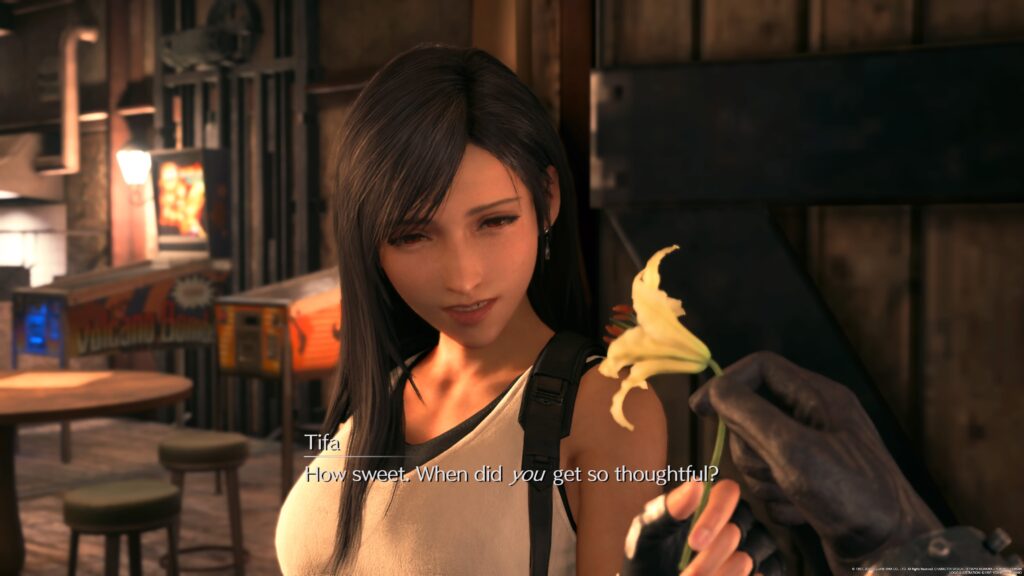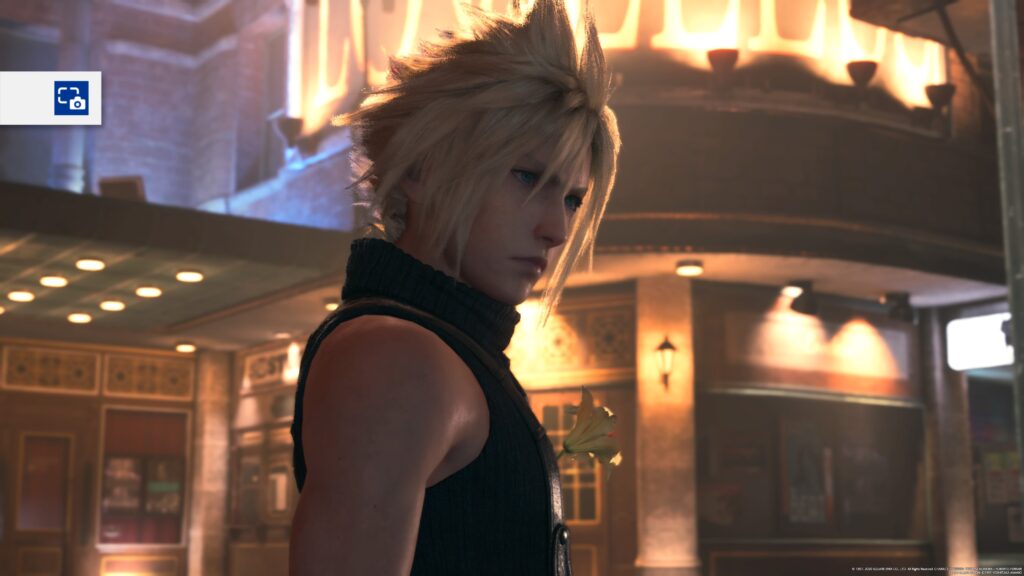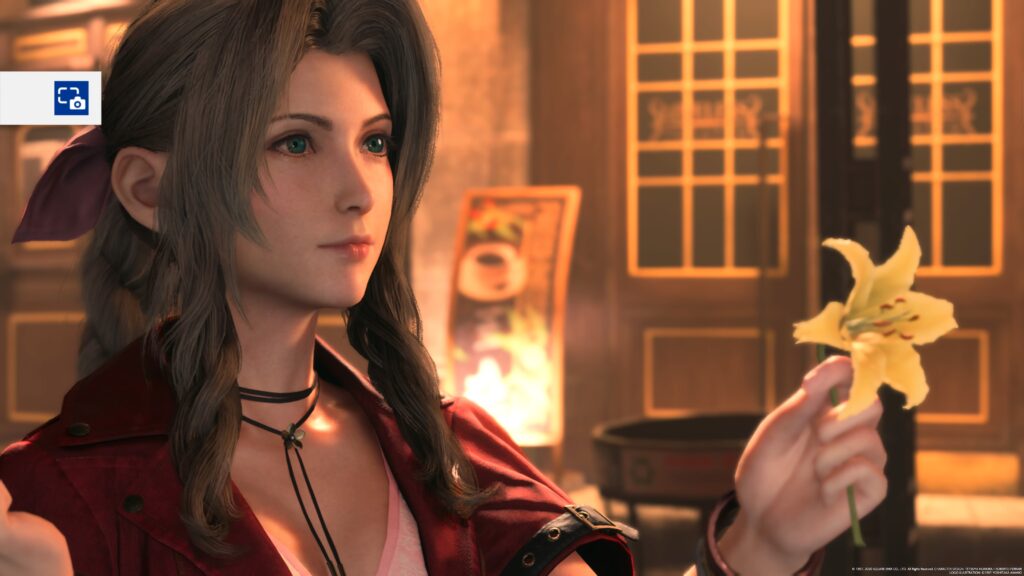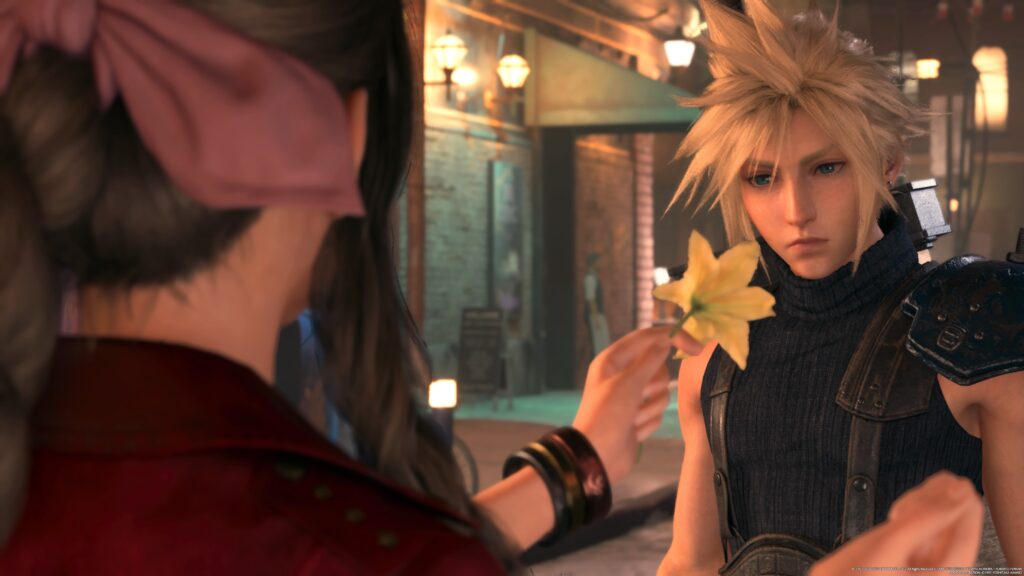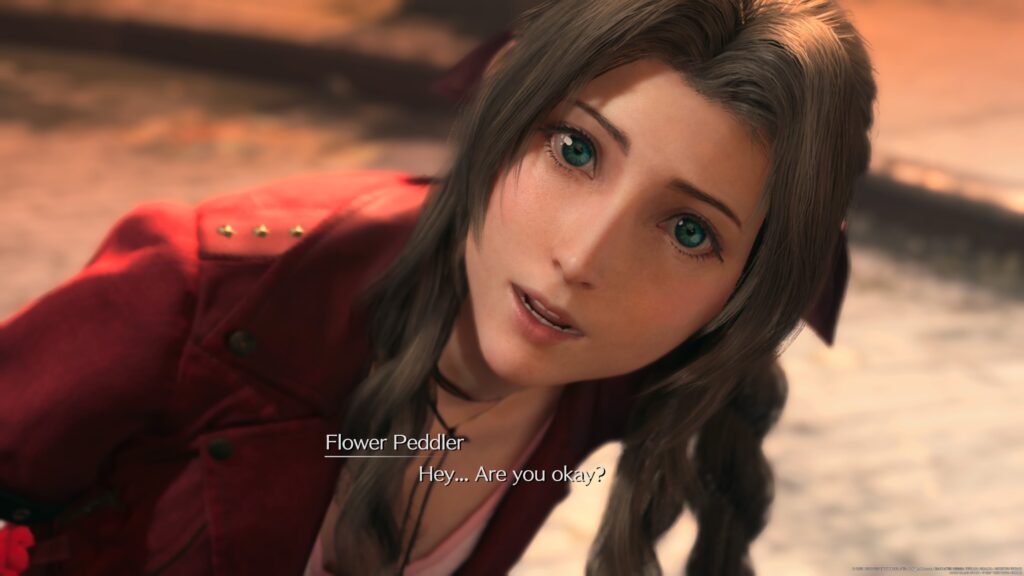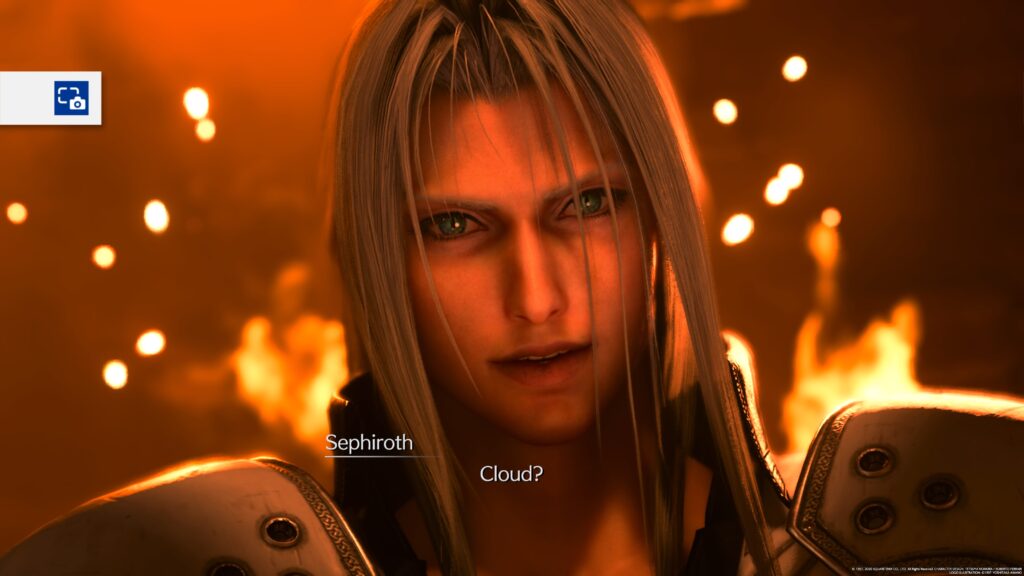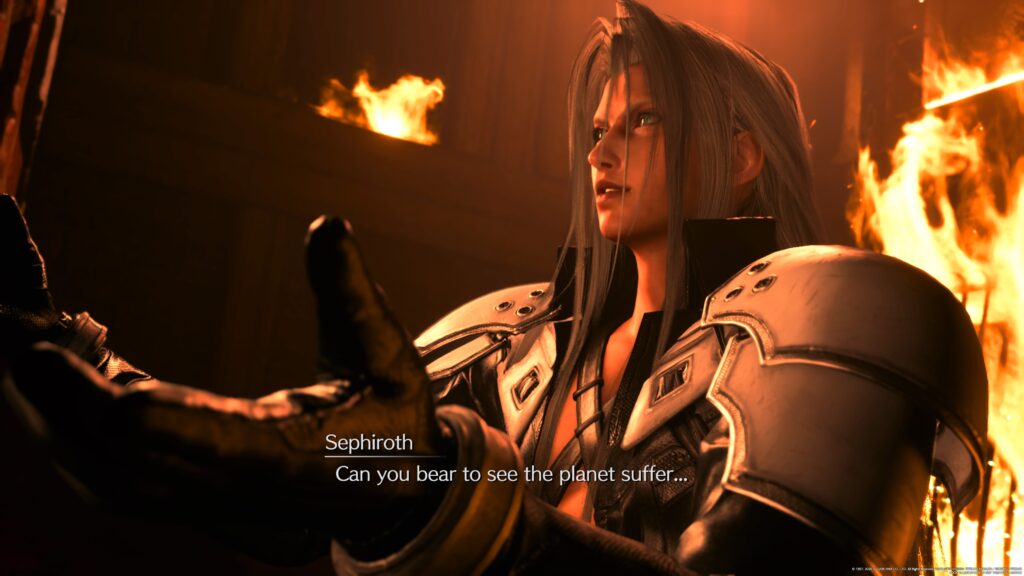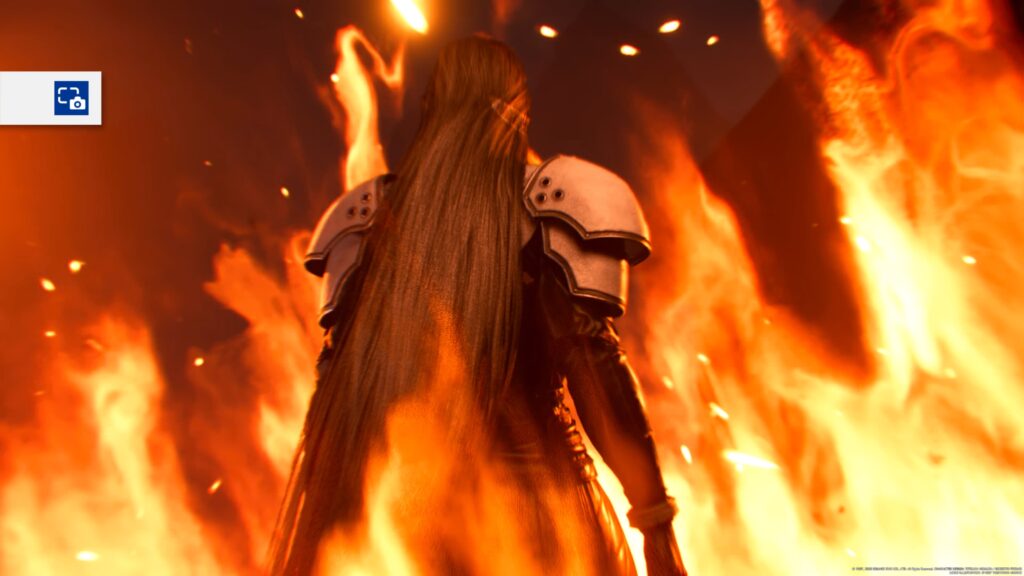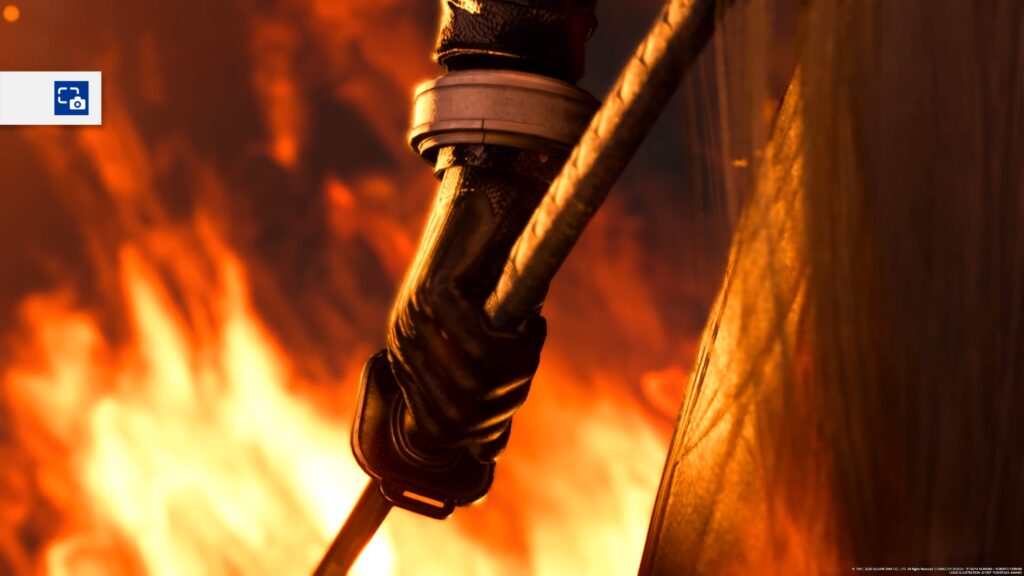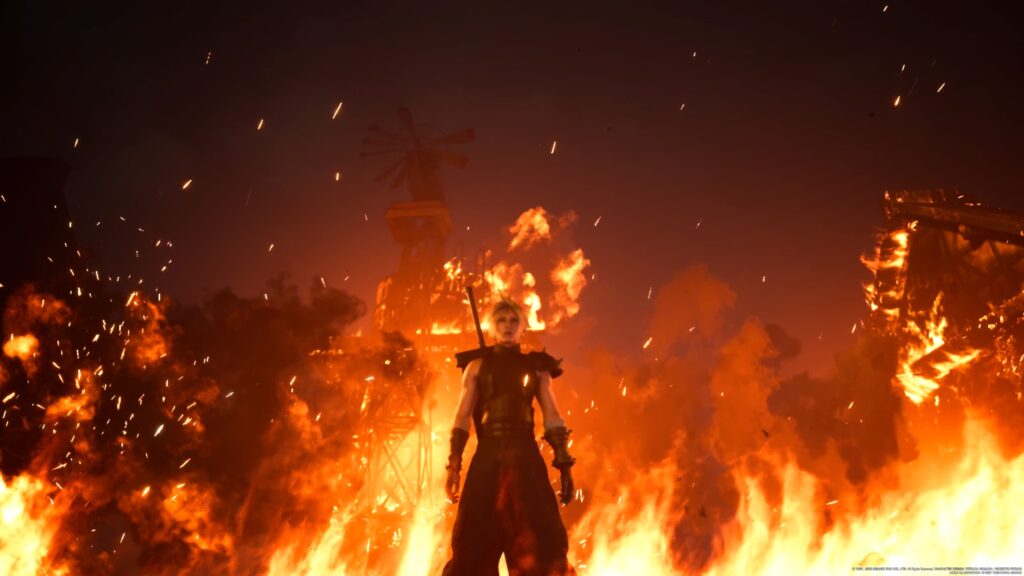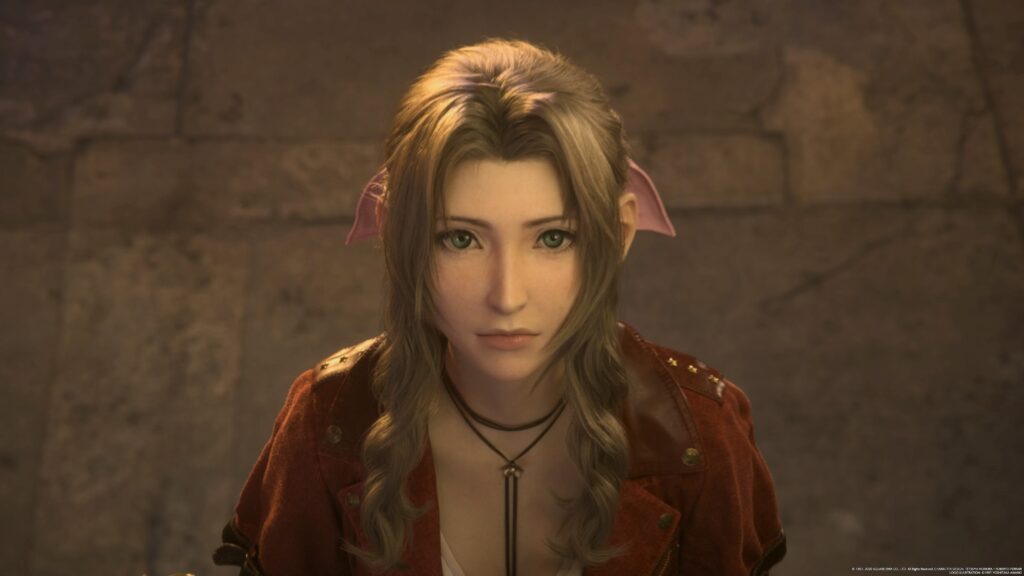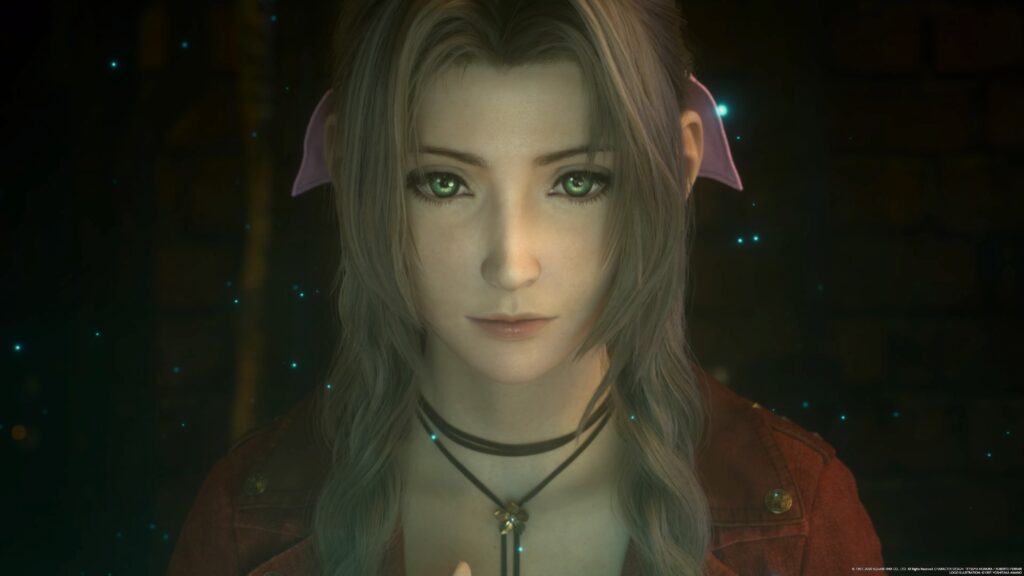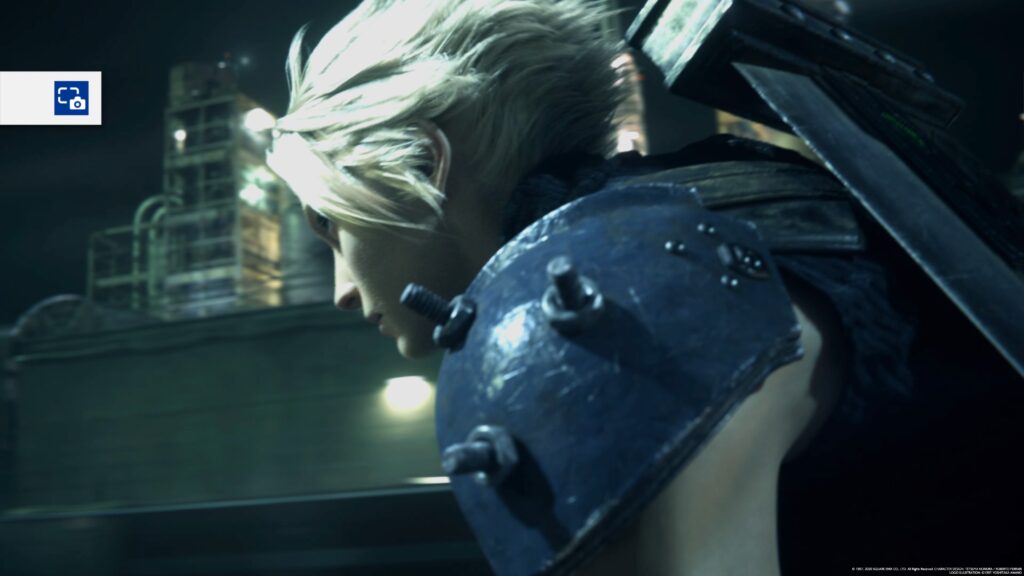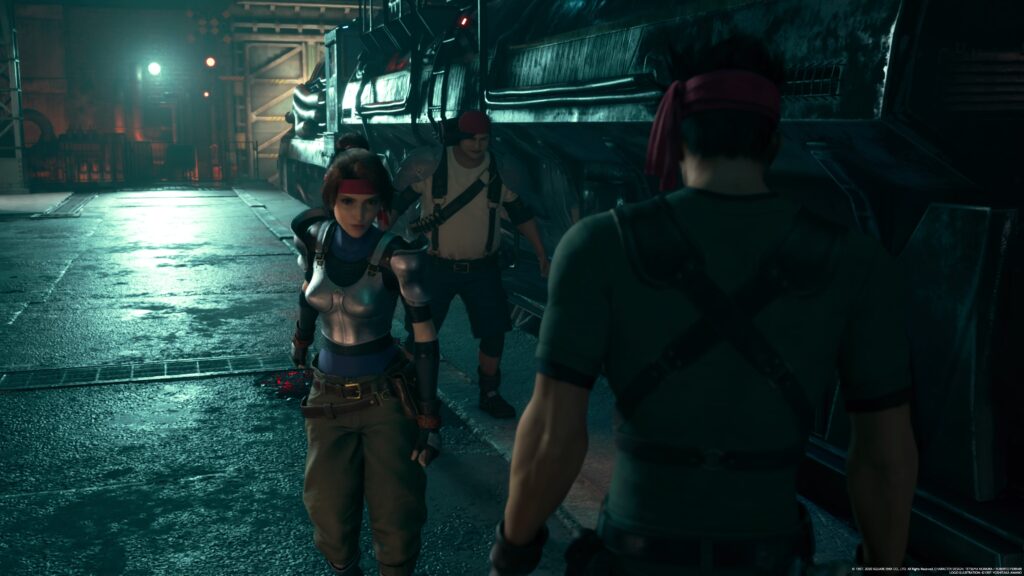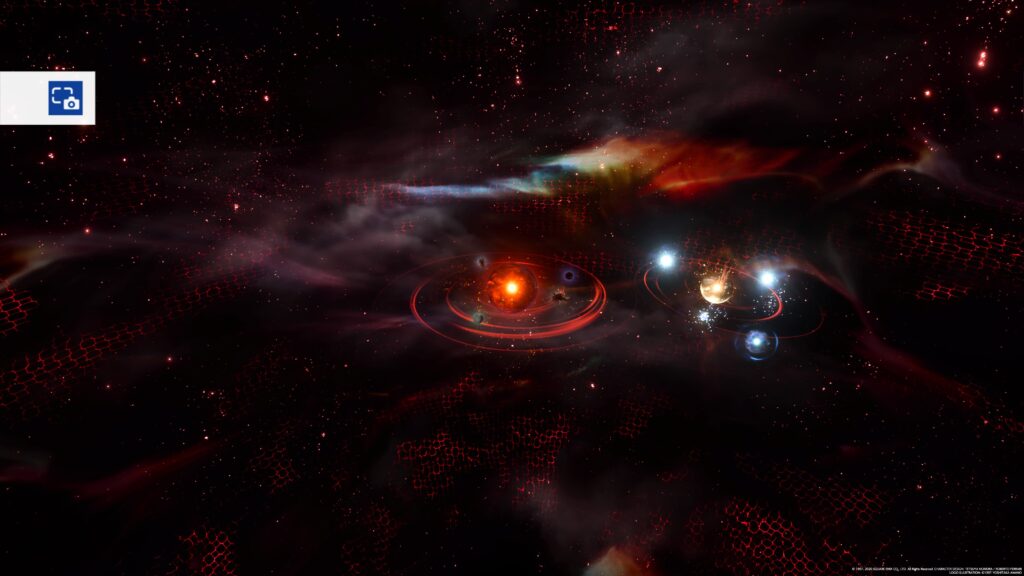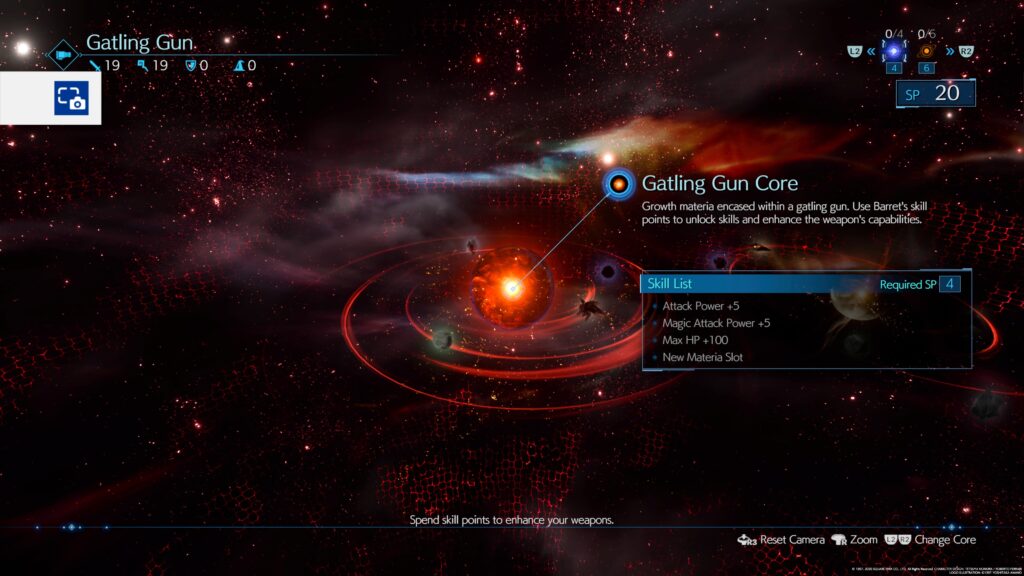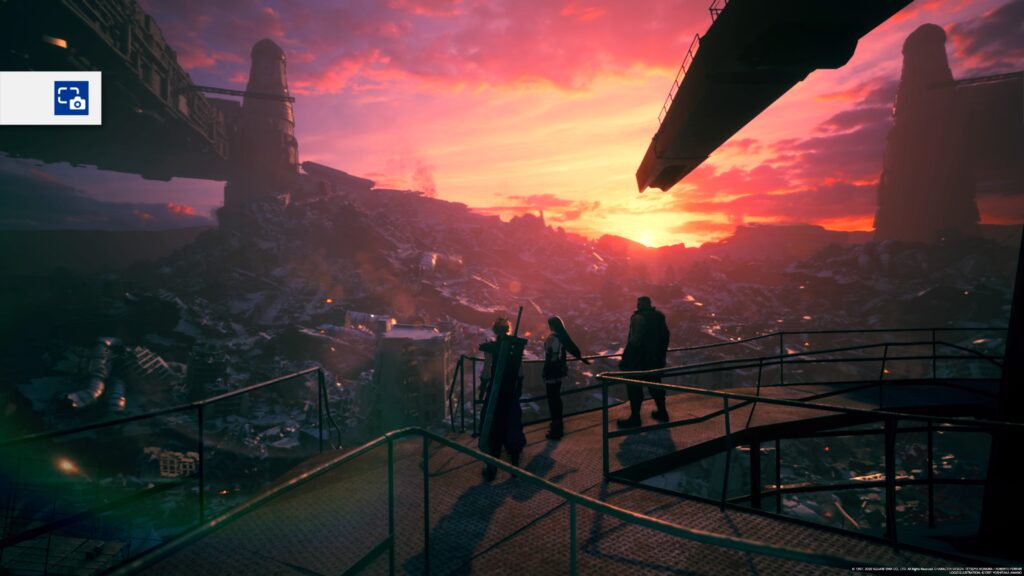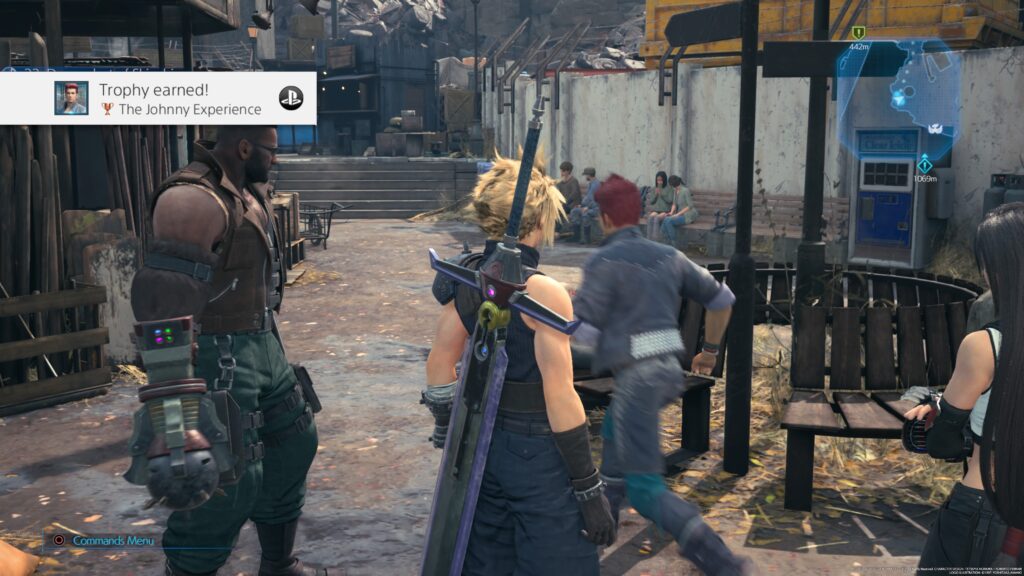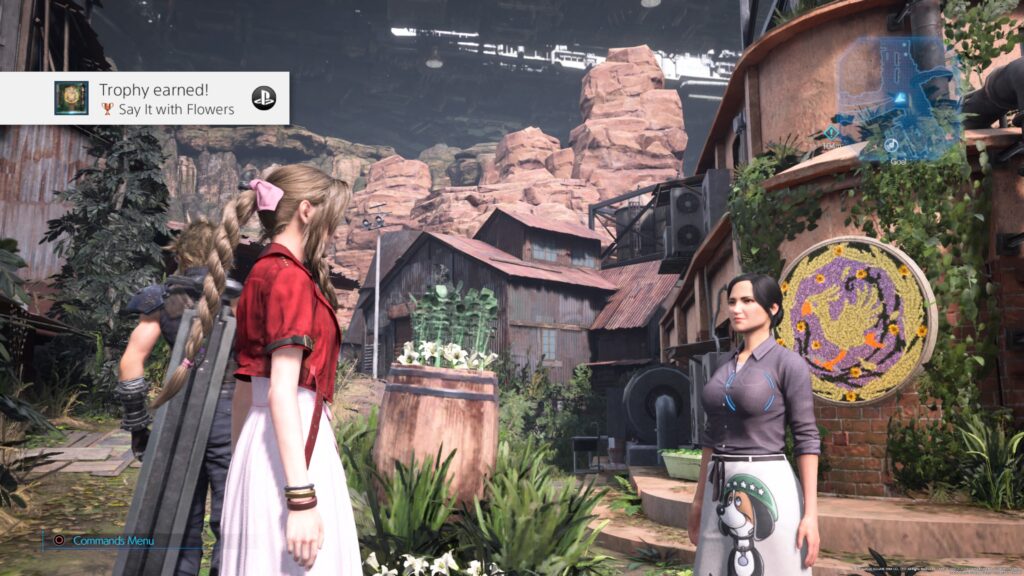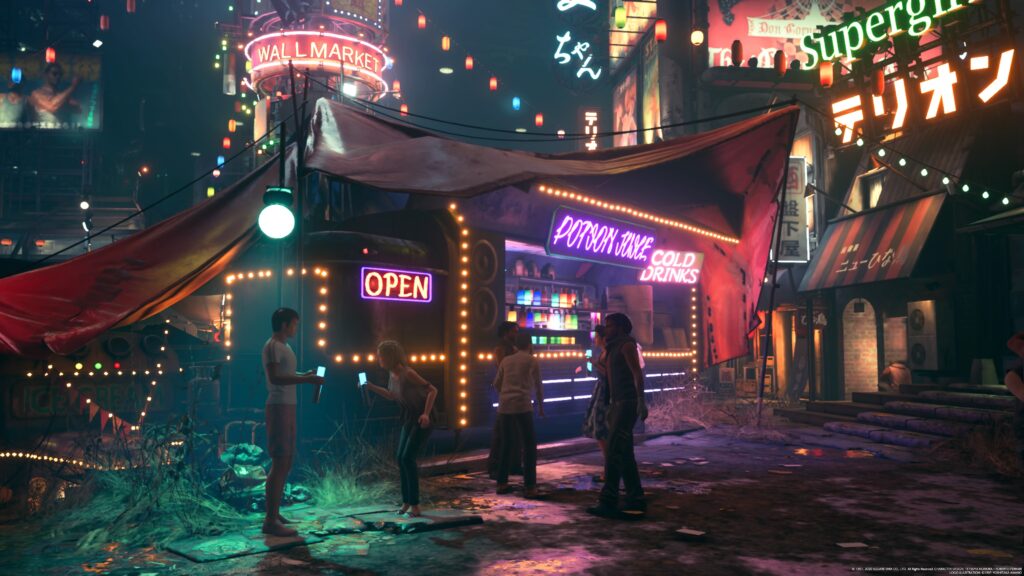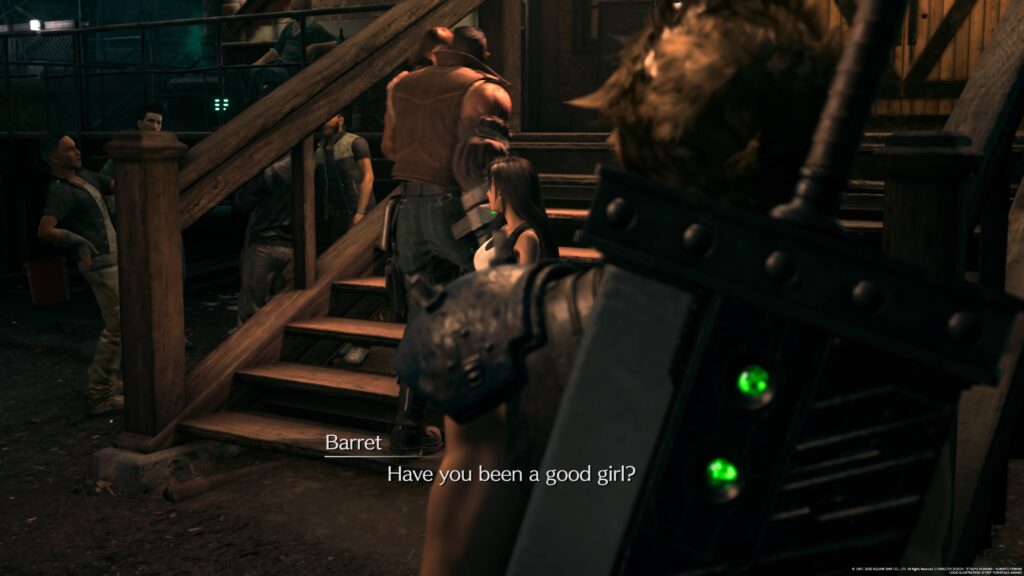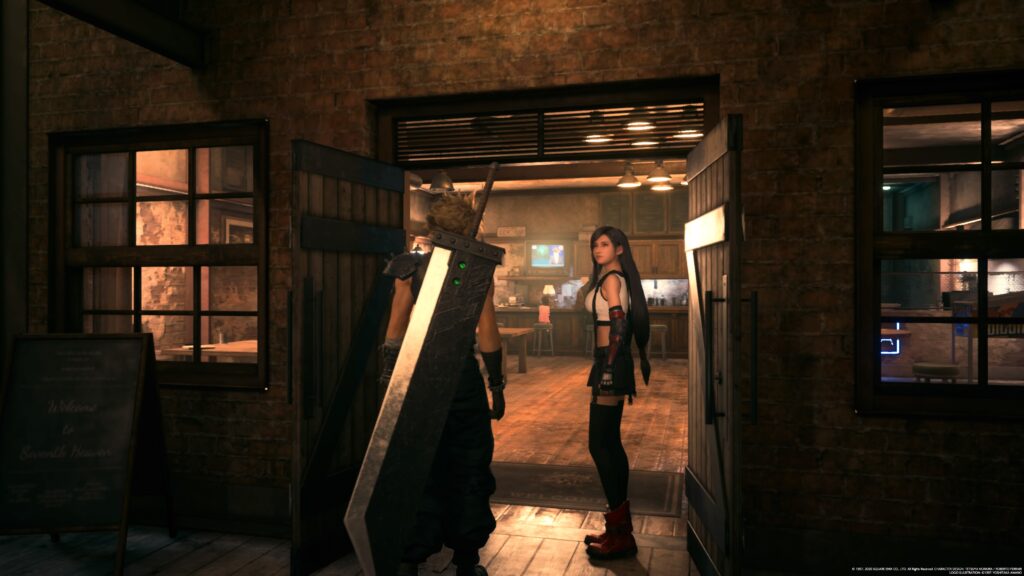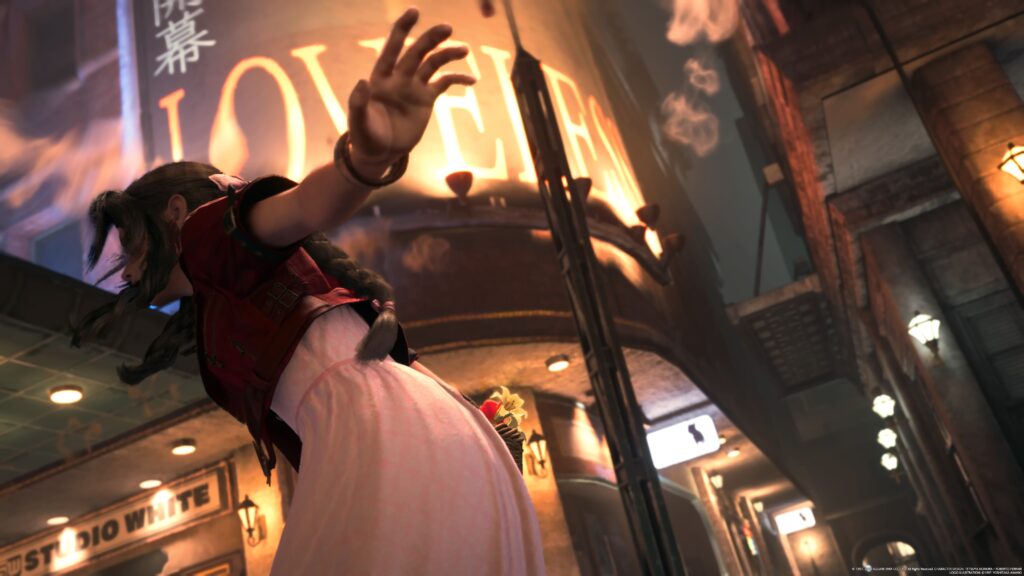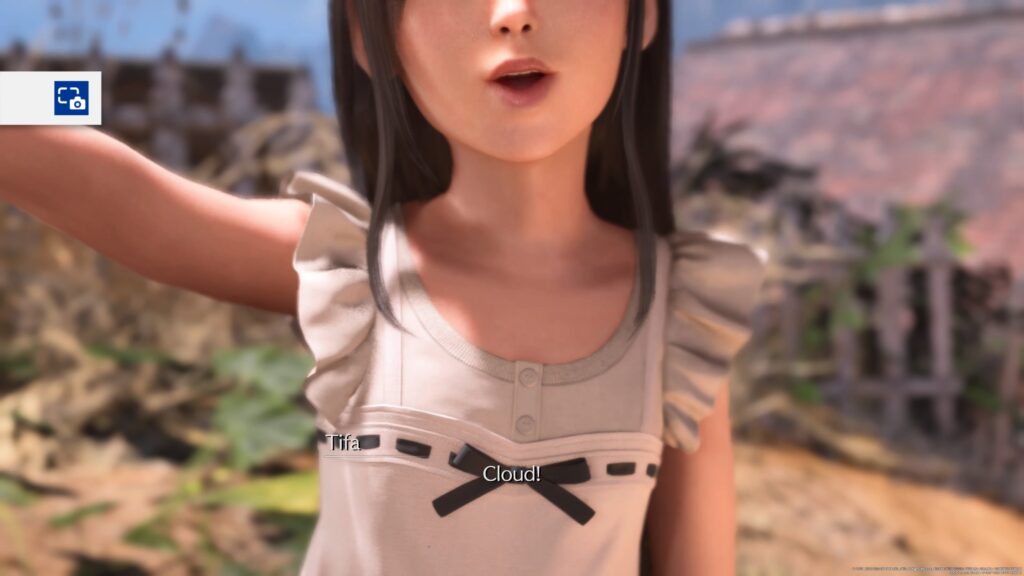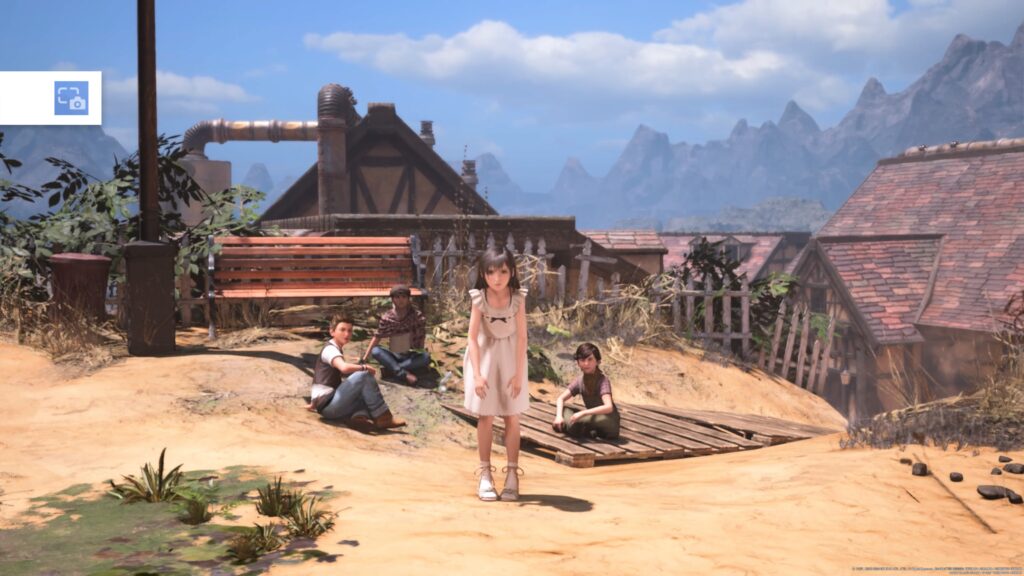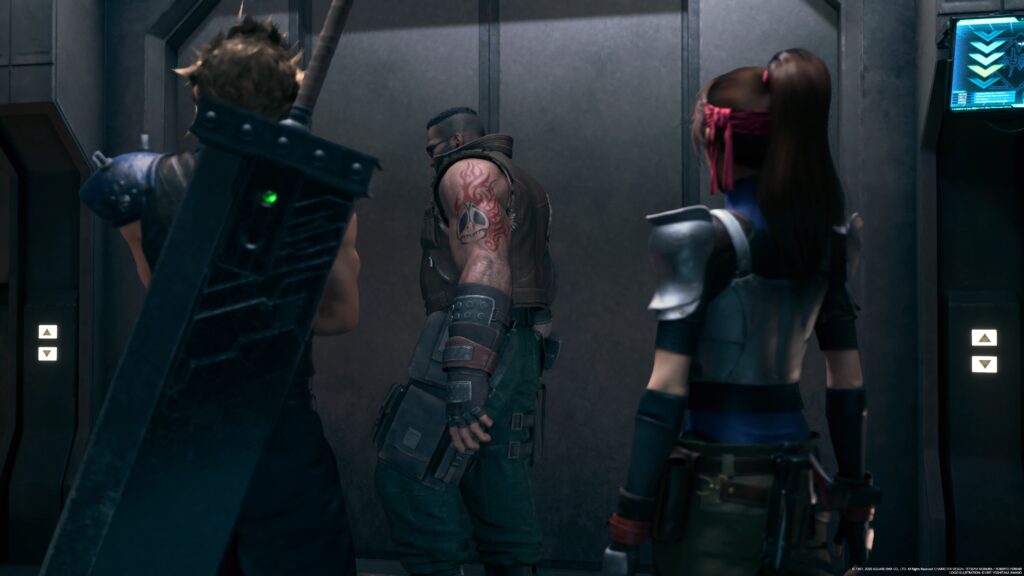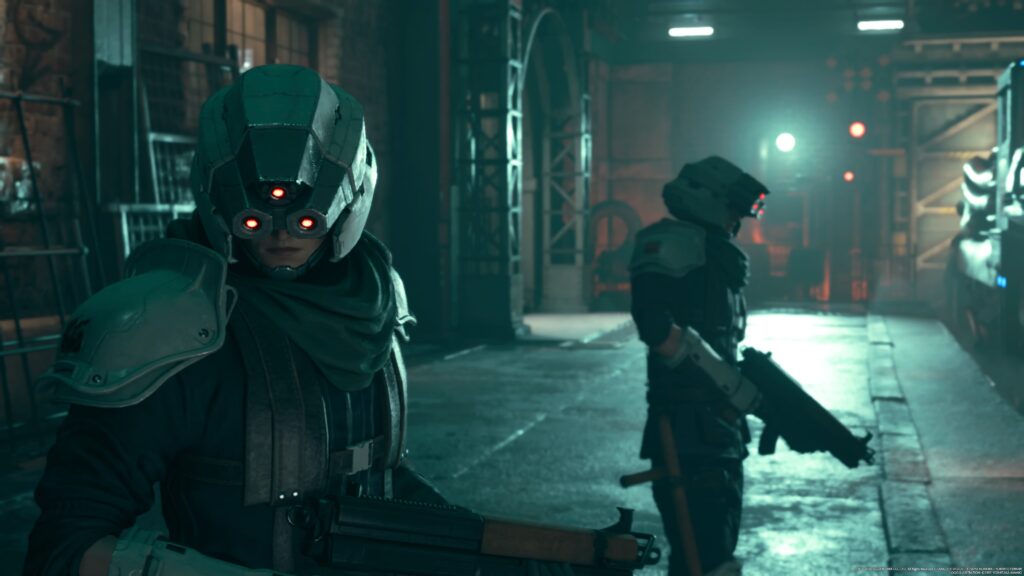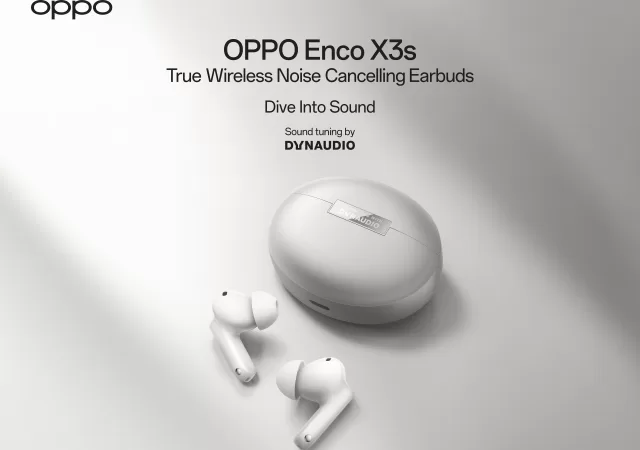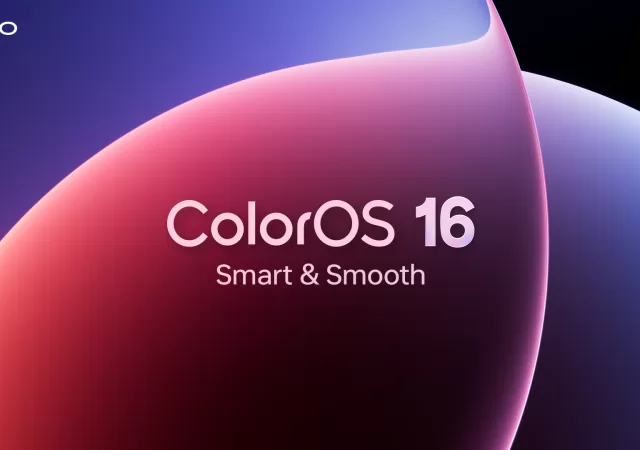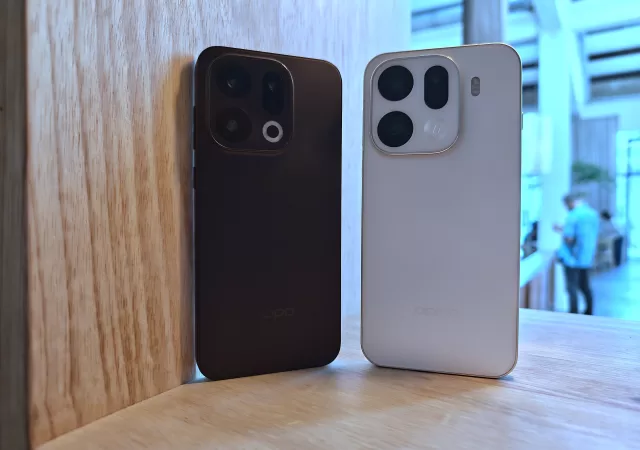About a month ago, we played a demo of a very iconic game. It was a game that everyone is talking about. It is a game remake that was years in making. It is the Final Fantasy VII remake.
We argued that that Final Fantasy VII was probably one of the most iconic titles in modern video games. Of course, we still stand by that. Final Fantasy VII is, in my opinion the best Final Fantasy VII that ever existed. The game also set the tone for other Final Fantasy titles that comes after.
Final Fantasy VII Remake is an attempt to capture the essence that was the original Final Fantasy VII and give it a fresh breath of life. In our opinions, the new Remake title is made for those who have already experienced the original game and loved it. Because of that, we were a little concerned that this would alienate players who did not enjoy the original game, or even had any experience with it.
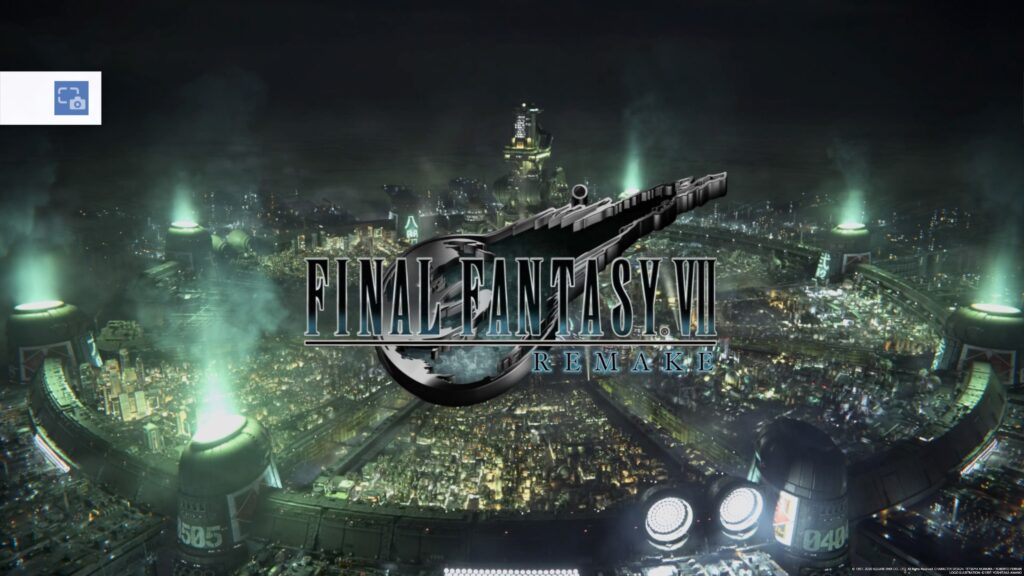
In this case, there are two questions we would have to answer for the Final Fantasy VII Remake. The first question might be more straightforward to answer; is it a good Remake that captures the magic and essence that was the original game and made it better? The second question is a little more difficult to answer. Is the game a good game on its own? As in, would any gamer enjoy this game without playing the original game first?
Game Design
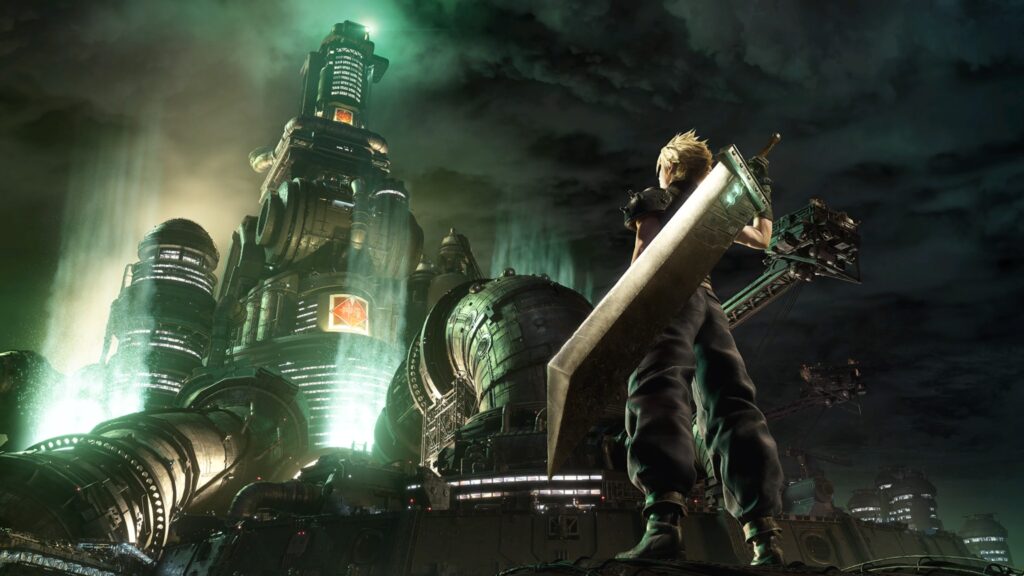
Final Fantasy is a huge title that spans across decades and even generations. The first Final Fantasy title was introduced in the 1980s. The first few Final Fantasy did not have the polished, ultra-realistic graphics that we have today. They still have strong storytelling elements about them. Still, storytelling is something that can be done across several mediums and as long as there is a good flow, it will work. Up until Final Fantasy X (10) that is.
This was mostly due to the restrictions of the consoles that came with the titles. But that also became sort of the hallmark of the Final Fantasy franchise for a while though. Final Fantasy X became a sort of marker of what Final Fantasy of the future might sound like. Final Fantasy XIII was the big shift from Final Fantasy’s very iconic turn-based combat to real-time action combat with plenty of flash and movements. That evolved into the Final Fantasy that we know today that is the Final Fantasy XV, a Final Fantasy full of dialogues and plenty of action.
I personally have plenty of gripes with the new Final Fantasy XV and plenty of its design and mechanics choices. Its combat animation is way to busy and messy for you to understand properly what is happening in battle situations. This same real-time combat mechanic will make it into Final Fantasy VII Remake, and this becomes a concern to us.
Real-time Combat
On the latest instalment of Final Fantasy, the fifteenth chapter, the combat mechanics was fluid and much better and intuitive than before. It was a mess though with so many things and so many objects involved within battle situations itself. That took plenty of refinement and enjoyment from the brilliant battles themselves. There is too many things happening that your display is filled with what seems to be explosions and blinding lights.
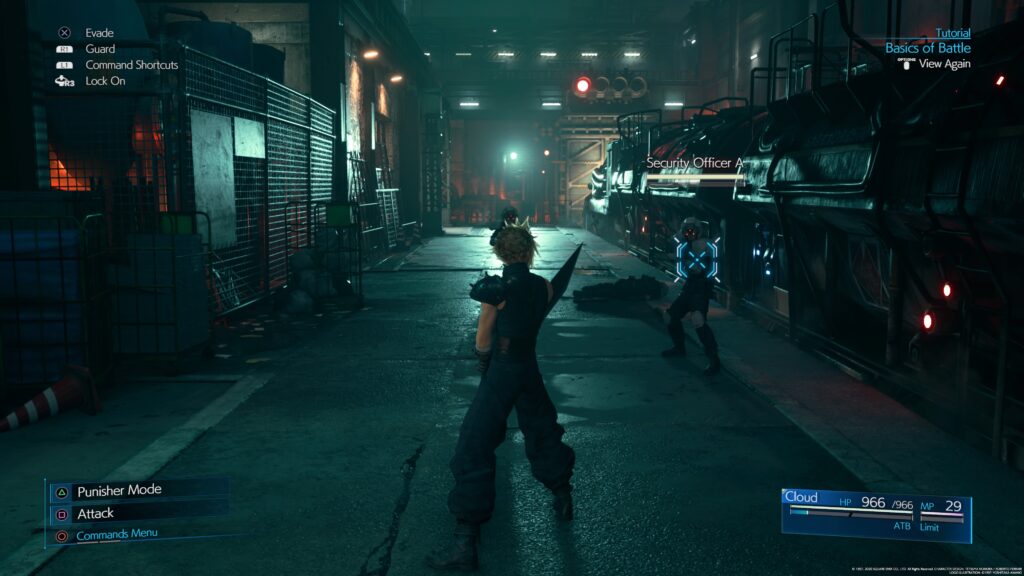
That same battle mechanics is going into the Final Fantasy VII Remake. It is a far cry from the original’s classic turn-based RPG battle mechanic. There are some good similarities between what you get from the Final Fantasy VII Remake and Final Fantasy XV though.
For one, real-time combat now makes plenty of sense with the amount of processing power PlayStation 4 can handle. Going back to a turn-based combat mechanic would be nostalgic, but it would make it feel like we are taking a step backward with the game. Making it real-time, while makes it feel a bit more modern, also means that you are including newer fans to the series.
We secretly wish that the Remake would have gone back to the simpler, more iconic turn-based combat mechanic though. One thing that is a little bit of a drawback with Final Fantasy VII Remake with new real-time combat mechanics is that you cannot simply do your summons whenever you want. Then again, for bigger boss battles, you can call on to one of your Summons one time in battle and you get very cool animations still. Like Final Fantasy XV, you have limited Summons to collect in the game. Most of them are optional though and you really have to keep a good look around in the game to find them.
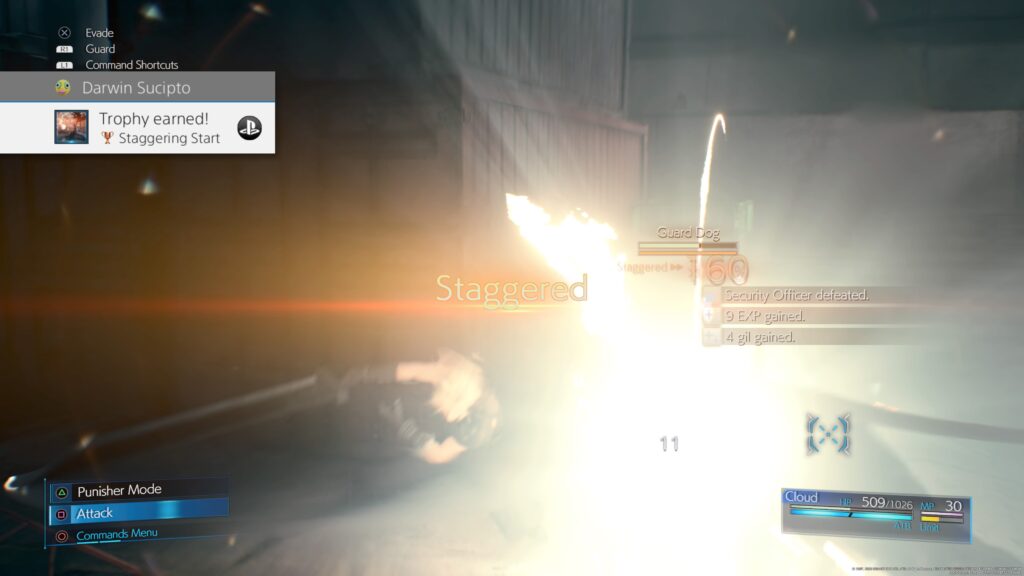
Learning the combat mechanics and using each character’s special abilities in combat is simple enough that it becomes second nature once you get used to it. That is mostly thanks to the very comprehensive tutorial and simplicity of the combat controls. In no time you would be switching between characters in different situations to achieve different things in the same combat at different timings. Oh yes, timing your attacks and defense can be very important in battle situations. You really need to learn to not just mash your controller buttons and refine your battles to use more than just the ‘strike’ button.
There are differences between this Remake compared to the Final Fantasy XV battle mechanics. That makes this Final Fantasy VII Remake a better game to play in terms of combat too. Less characters are involved in a fight, which means less mess in the discplay. Visibility of the battlefield is much better too.
Unlike the XV, the VII Remake’s battle happens in mostly restricted environments with clearly defined boundaries and walls within the battlefield. While that may make the battlefield look a little cramped and restricted, never did I feel restricted in the battlefields. In fact, having some sort of boundary within a battlefield helps you navigate and strategise battles better. It helps with some spatial awareness and that also translates to knowing the position of your opponents at different times.
There is less flash on the battlefield as well, which is always good for visibility on your screen. You see your enemies much better even with the darker tones of colours in Midgar and its underbelly. The dark metallic colours of Midgar may hinder some visibility a little bit, but the great contrasts of colours help with visibility and command of the battlefield very nicely.
The World of Final Fantasy VII Remake
The world built for Final Fantasy VII Remake is limited to Midgar so far. Yes, this is not the whole storyline that you see from Final Fantasy VII. Since we cannot actually record the final chapter and sequence of Final Fantasy VII Remake, we will respect Square Enix’s decision and keep that unspoiled for everyone. What we can tell you though is that the Remake’s whole playthrough is just in Midgar.
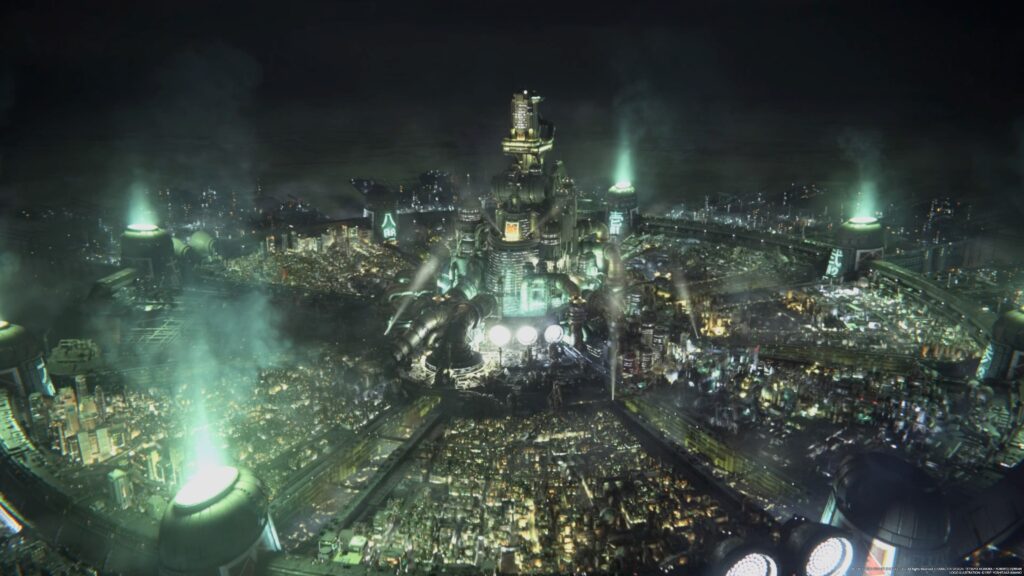
If you can remember or look back into the Original Final Fantasy, Midgar seems very industrial, because Midgar is meant to be industrial. That, and because the original Final Fantasy VII had its own design limitations. Still, the city of Midgar became iconic because of the design choices of the metallic city itself plagued with a huge wealth gap between people living on the upper tier of the city and the lower levels of the city.
Final Fantasy VII Remake made the Midgar that we knew from the original game come alive though. The colour choices were spot on. But best of all with the design of the game was the similarity between textures of the world around the character and the characters in the game themselves. You get the same texture and detail quality from both objects in the world and the characters. You can really immerse in the characters and live in Midgar with Cloud, Tifa, Barret, and members of Avalanche.
Fixed cameras are also not a thing anymore in Final Fantasy VII Remake, which is a good thing. We can liken that to the likes of the recent remakes of the Resident Evil series. That also means you can really appreciate Midgar and the rest of Final Fantasy VII Remake world from any angle. That freedom of viewing angles also makes it feel like you are seeing and experiencing Midgar for the first time when you play the Remake. There are some quirks and limitations in the game world that makes it very Final Fantasy still though. While it may be a little unintentional to have these limitations, we do like it rather plenty since it really reminds us that we are playing a Final Fantasy game still.
Midgar is prettier and better looking than I could remember in the Remake though. Every panel and texture look right and purposeful. The lights that are bouncing off the panels also reflect very well like they are ray-traced. There are more colours in Midgar’s slums that I could remember too from the original game. Of course, Seventh Heaven is even more detailed than before and looks even better than before.
While Final Fantasy VII Remake looks nothing like the original game, it looks just like the original game too. Everything is made to be bigger, more detailed, overall better looking. But it is still rocognisable Midgar and every design is based on the original game. We could even say that the Final Fantasy VII Remake is a completely new game in its own rights just based on the graphical standards.
Character Building
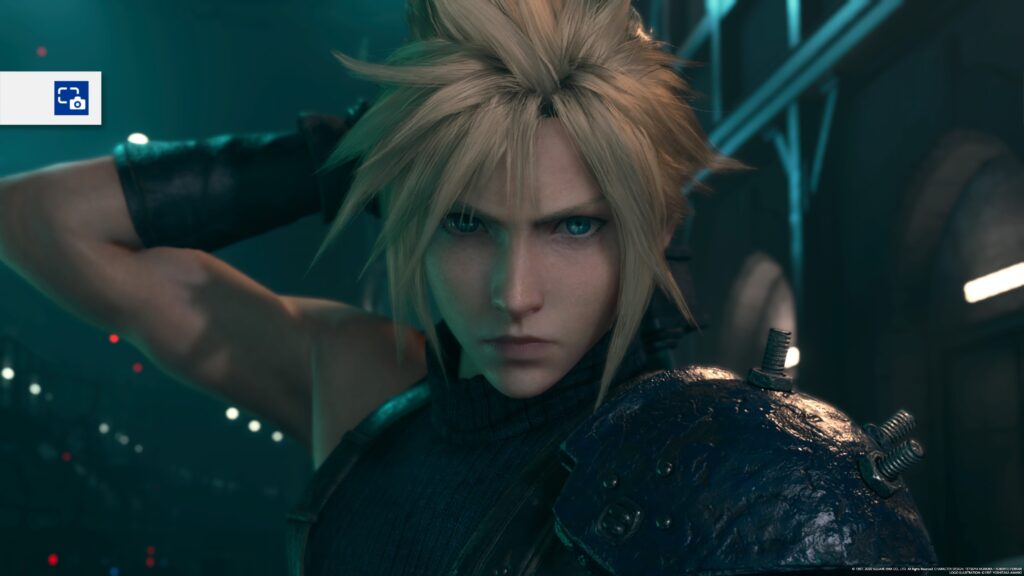
If you have played the original Final Fantasy VII before, you can probably guess which characters you will play at the beginning of the Remake. You start with the main protagonist of the game, Cloud Strive; a mercenary that is in the midst of blowing up a powerplant with a group called Avalanche. At least that is where you start, at a powerplant. You get to first meet Barrett, or ‘machine gun hand guy’ about 10 minutes in the game play and that is when you are introduced to the character switching game mechanic. You are introduced to three other NPCs within the first part of the game itself. There three characters are important characters in the game’s lore and story line nevertheless.
You later get introduced to Tifa Lockheart and Aerith Gainsborough a little later in the game. You meet Aerith much earlier than Tifa though, for a good solid 5 minutes and then you get to have her in your party way later in the game. Those are the only four playable characters in the Remake and you can only have up to three characters in your party at any given moment. Not like you would be making plenty of decisions over which characters you want to include in your current party though, one or more of the characters will not be available in different parts of the game.
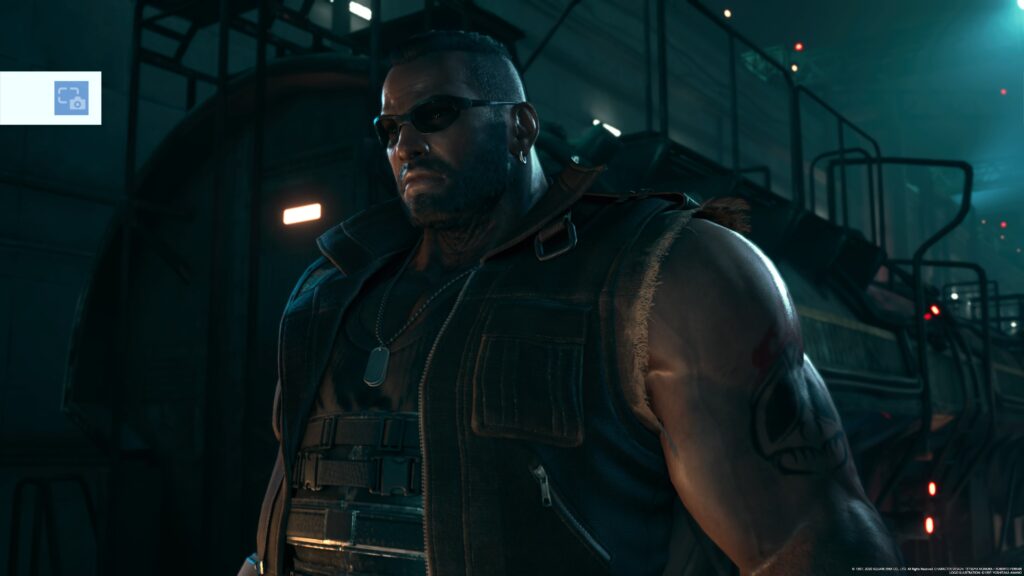
Each of the characters have their own iconic designs that is carried over from the original game though. This being a Final Fantasy game too, you can expect the choice of changing costumes to be non-existent here. That is good too, it allows you to focus on the gameplay and storyline instead of worrying about personalising your character.
Each character has their own strengths and weaknesses, and each can be used in different situations of a battle situation. Of course, because there is almost no freedom to choose which characters come with you in a party, you have no choice but to play around with buffing your characters with different Materias at different conditions to get the most out of battles and each character.
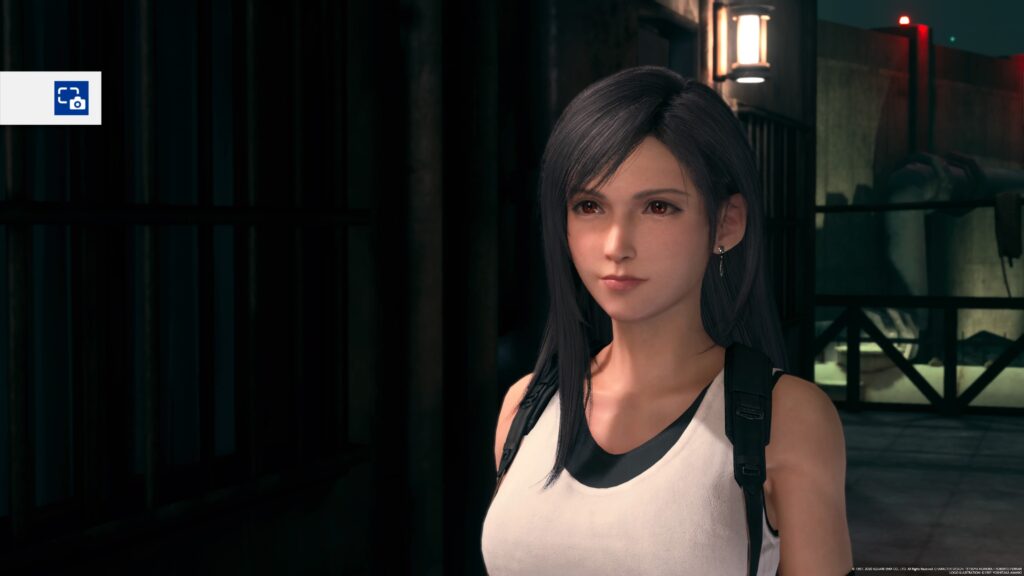
The leveling system in this game is a little different compared to the original game though. You can still equip characters with different weapons that you buy or find through your explorations in the game. Each weapons has their own strengths and weaknesses. You can upgrade them when you earn something called SP (Skill Points). You use these SP to upgrade your weapons to fit more Materias, to up your damage points so that your next battle is slightly easier, and what not. We suggest you stick to some of the original weapons that your characters come with. We find that they are the most powerful even after unlocking and obtaining the last of weapons for each character.
The weapon upgrade screen are done in orbs in what looks like a galaxy. It looks like a galaxy of solar systems. Each planet is an upgrade and each solar system is an upgrade tree that reveals itself with different tiers and levels.
You also earn AP (Ability Points) after each use of Materias. The AP is what levels up the Materias. If That enables you to use higher forms of the magic if available. For example, the Materia that I use most in the game would be the Healing Materia with the basic spell to be Cure, Cura for the next level, Regen after that, and finally Curaga. Each level heals different HP (Hit Points) for each character. The only Materias that do not actively collect APs are the summon Materias.
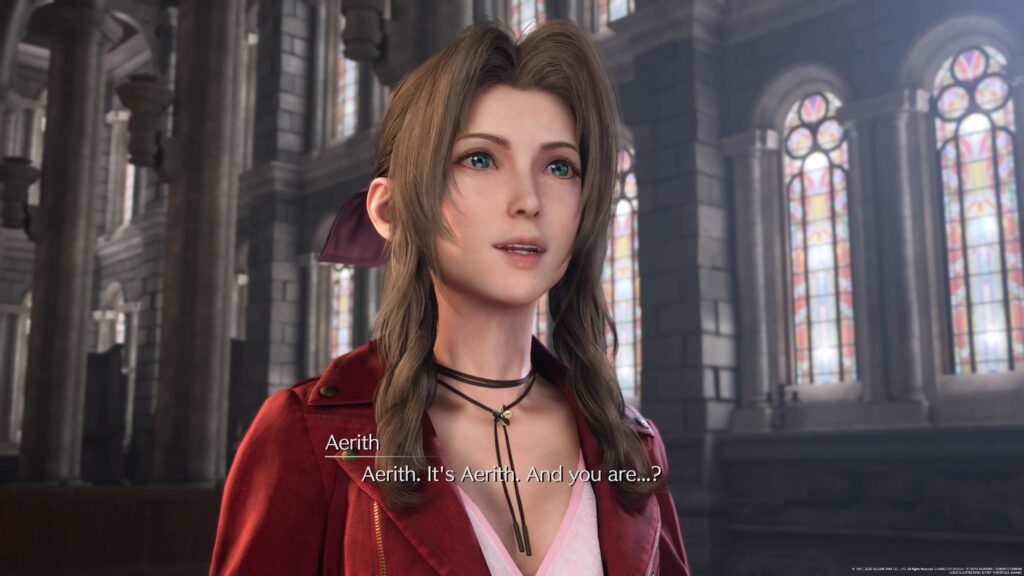
Speaking of Materias, these things are the most important things for you to collect in the game. You can find two Summon Materias in the open world and the rest of the Summons are gained through battles with a special character you meet quite early in the game. Other Materias are for your spells and elemental buffs and additional abilities.
There is a level cap in the game too. Final Fantasy VII Remake caps your characters at level 50. We assume that this is to ensure that they can build up to the next Final Fantasy VII Remake and make you grind through the game again starting at level 50 (we do not know what they want to call it; Remake II or something). By the end of your first play through though, if you play in normal mode, you should hit level 40 and above. You should hit level 50 in your second play through.
Of course, you would want to play through the second time. You can play it in Hard Mode now only after you finish the game once. In that play through you are facing enemies that are much tougher while reaching and remaining the level cap of the game. It should make for a more challenging play through. There are also some things that you can only get from playing in Hard Mode.
Very much like the original game, each character is very loveable and relatable. From the very cold emotionless Cloud to the loud mouthed, heart on the sleeve Barrett, the characters all feel more human than before. To be fair, plenty of it has to do with the life like character design and brilliant voice acting. The original game did not have voice actors, and that does take away from the experience a little bit.
Of Sounds and Music
If you think about it, audio is a big component in our lives. We are the only creature in the known universe also with the capabilities to create what we call ‘music’. We are very rhythmic creatures in that sense. Which also means audio can determine our comfort levels and even how we react to events.
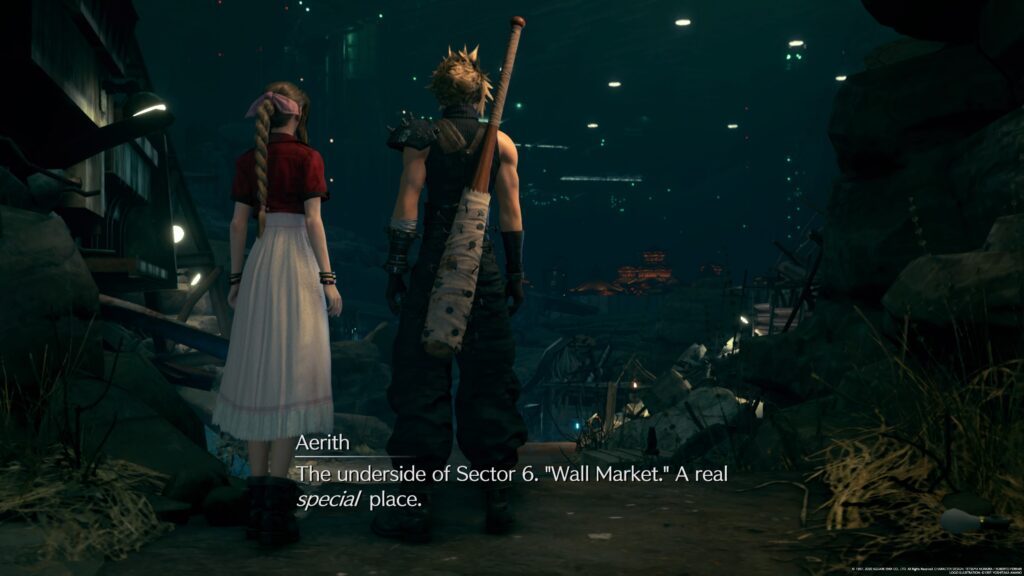
An explosion, for example, makes big noises that makes us jump a little and uncomfortable. It triggers our fight or flight response to the world. Soothing music played on the Piano helps us calm down a little. Change that up a little in beat, tempo, and tone, you get a completely different feeling from the sounds you pick up. There is a reason why we feel super uncomfortable watching horror films with good audio design. Pull up the Conjuring and mute all sounds, you will find that it is not as frightening as you thought.
Final Fantasy understood that from the very beginning. The Final Fantasy franchise also produces one of the most prominent figures in the game music world, Nobuo Uematsu. He is the original music composer for most of the series including Final Fantasy VII.
In the Remake, every piece that you hear are originally written by the composer, Nobuo Uematsu. That is because they are. They have remastered these too to give them a fresh breath of life for more modern times. They still capture the same essence of the game and still perfectly suit the game.
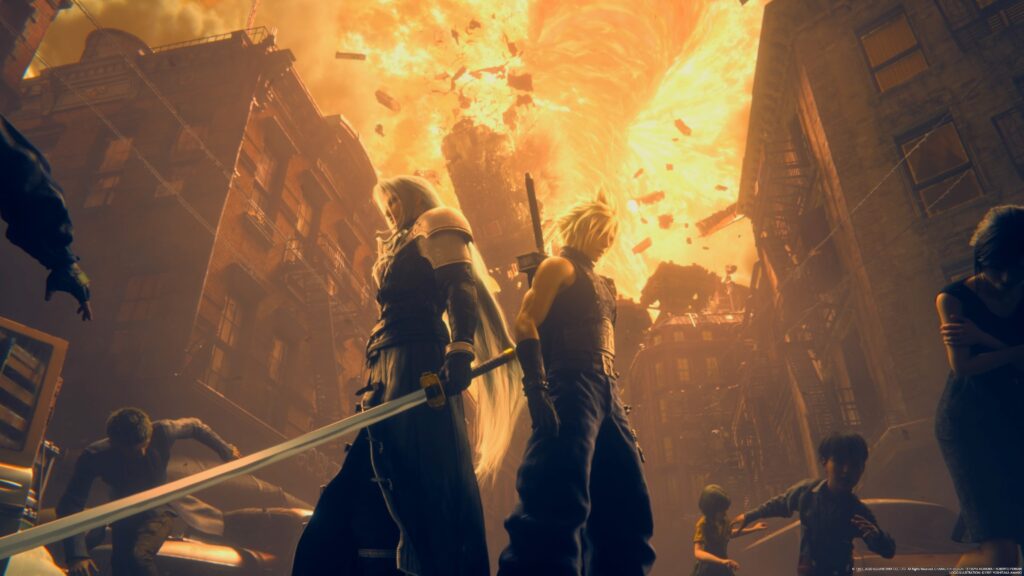
The voice actors, in the English version at least (we only reviewed the English version, we do not understand Japanese), are great. You probably would have seen reaction videos by Aerith’s voice actor, Brianna White on YouTube by now. Everything is meticulously thought of and carefully worked on. Everything has to sound right; everyone must sound right. Of course, they have to sound unique and identifiable too; from the gruffness of Barret to the softness of Aerith and boldness of Tifa.
The care for details gave us that very needed relatability to the characters. We knew these characters in the original game. In fact, we thought that we knew them well enough from spending more than 50 hours in the original game. The voices though, gives us a slightly new perspective and it feels like we are getting to know the characters again. Still, each character’s voice is very much like how I personally imagined them to be. I am guessing that would be the case for a lot of players who have immersed themselves with the old game.
All About the Story
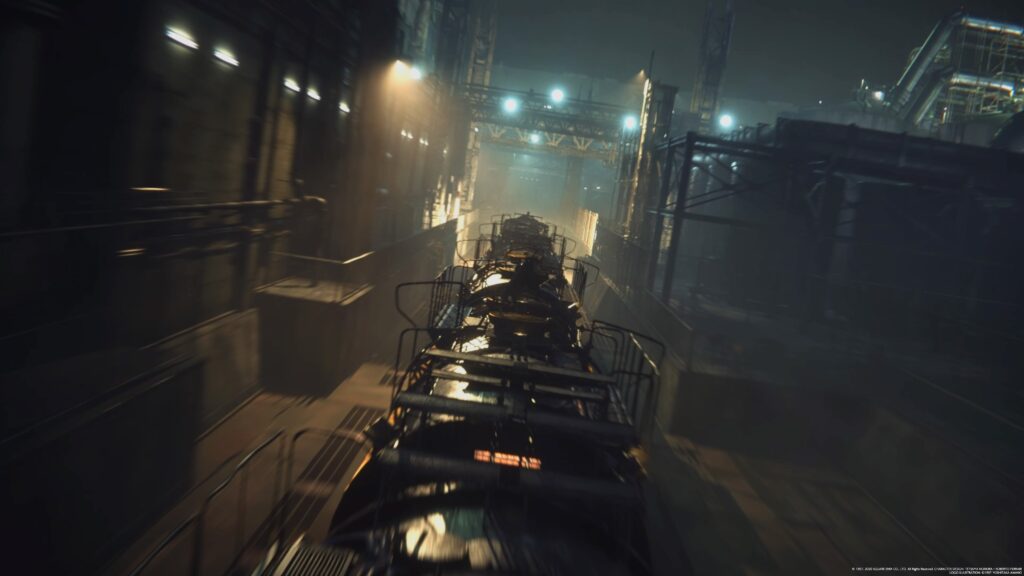
When you pick up a Final Fantasy title though, it is not too much about the battles that you would be having. It is not even that much about the gameplay sometimes, or the nonsensical conversations that the characters would have in-game. It is mostly about the story telling.
Of course, you do not buy a game just for its story-telling aspect. You buy it because you want to play it; to immerse in it. You want to be a part of that story. If not, why not just watch a movie?
Final Fantasy is one of the first games that puts a lot of emphasis on its story-telling aspect though. It was the daddy of story-telling RPG games. In my opinion, the original Final Fantasy VII told the best story in the Final fantasy franchise.
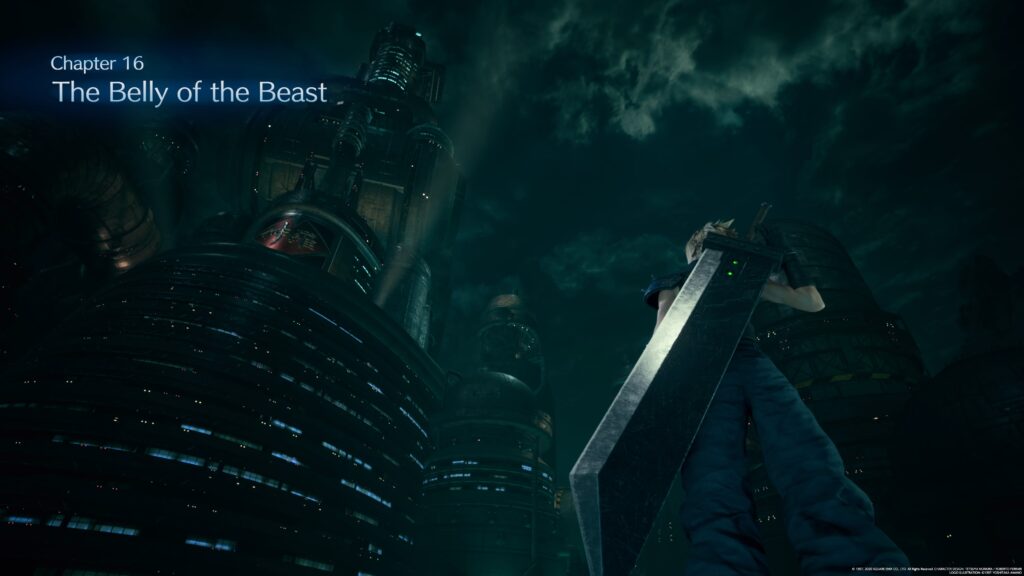
Some may not agree on that though. To be fair, it is a matter of personal preference anyway. Still, the original Final Fantasy VII was a story that was both triumphant and heart-breaking. A bittersweet story that captured our hearts and minds. Who knew a video game with limitations in graphical abilities could tell a better story than Michael Bay and a dozen of actual actors in front of a camera?
If you have played the original Final Fantasy VII then, you know what you are getting yourselves into with the Remake. Technically, there is almost no difference between this game and the original in terms of storyline. The difference is only in the pace, graphics, battle mechanics, and details. In the same amount of time you finish the Remake’s story, you can finish the original game. That is how much more detailed the Remake is when you consider that Final Fantasy VII Remake only covers the first disc of the original three discs required for Final Fantasy VII. Oh yes, if you lose one disc, you cannot continue the game.
The cutscenes are a little longer than before, everything looks more lifelike and life-sized than before and there are plenty more nooks and crannies to explore within the game. There are new details here and there too that you might not see in the original game. Unlike the original game though, enemies do not come out randomly, since it is a real-time combat situation now. You see your opponents about 10 seconds before you go into the battle most of the time. Unless battles happen after a cutscene.
While there is not much that has been changed from the original story, besides depth that is. One of them is the death of a certain memorable character from the original game. We are not going to reveal who that is. We can tell you that we have not reached the point where a certain character dies in the original game though. That is as far as we can tell you.
So, Play or Not?
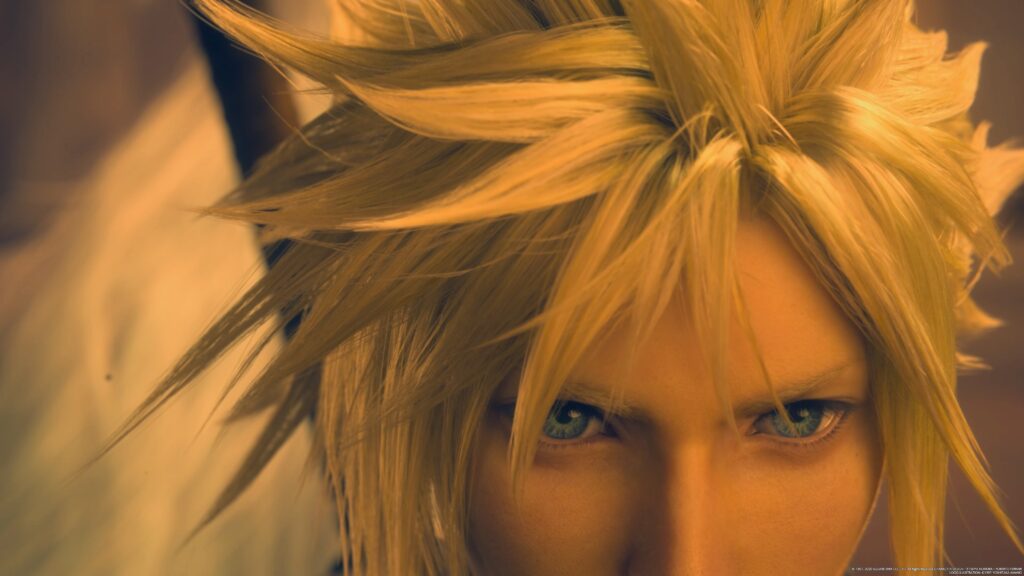
If you ask me as a fan of the original Final Fantasy VII, I will say; “yes, please go and treat yourself to the wonderful thing that is the Remake”. It not only brings back memories, but it brought some tears. It brought back plenty of emotions from the first Final Fantasy. Now that we are older too, those emotions come back a little stronger.
The new Remake of the Final Fantasy VII not only captures the best of the original game. Yes, it took some of that original combat mechanics and quirks, but it is still very much a Final Fantasy game that took the world of video games by storm. It took what the original game was and added some modern magic to it. The steampunk themed game and setting never looked better and more real. It felt better and more fast paced than the original game. At the same time the story has never had more depth. You feel even more connected to the characters.
Before I forget too, each action you take and choice you make can make a difference in the story-telling aspect. How good you are in the game’s battles can also determine how your story progresses. While they are not major deviations from the game’s actual path, they could be significant in how your story might end if Square Enix decides to finish the game.
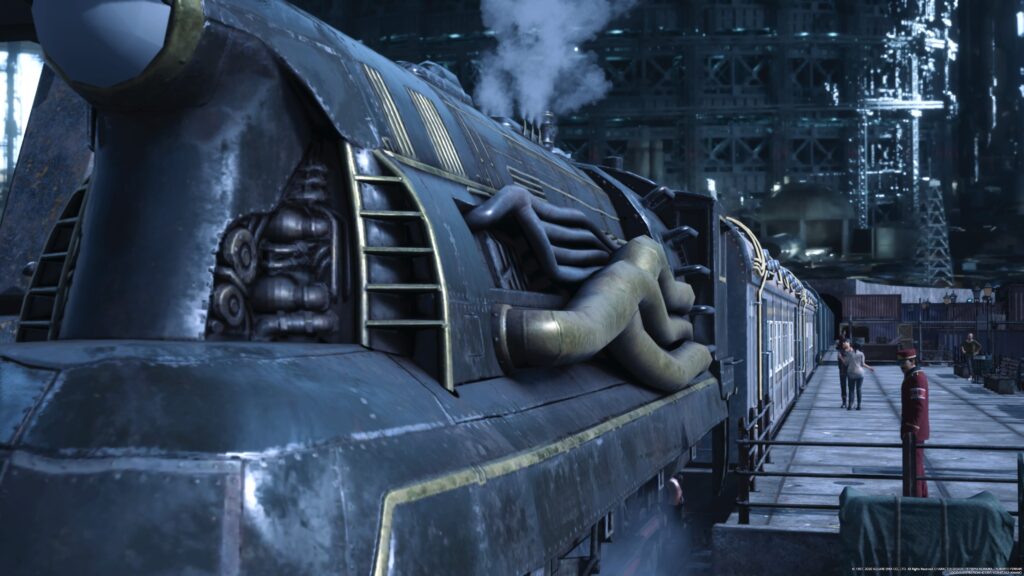
If you ask me as a fan of the series but never enjoyed the greatness that was the Final Fantasy VII, I will still tell you to get the game just for its unique storyline. While all Final Fantasy stories are a little farfetched and borders fantasy and science fiction, Final Fantasy VII’s storyline is one that I find most enjoyable. The story is a mix of despair, triumph, love, and tragedy. There are some very relatable real-world issues that the characters may face too. Things like PTSD (Post-Traumatic Stress Disorder) that you can clearly see in Cloud Strive makes the characters feel plenty more human than a mere video game hero type. The characters deal with poverty and unfavourable living conditions.
If you are completely new to Final Fantasy and have never touched a single Final Fantasy title, this might be the one for you too. Battles are plenty more polished and cleaner than Final Fantasy XV’s. Rather than random mashing of buttons too, there is a little bit of tactics you need to apply within battles.
It is a challenging game, yes. It is very unlike the original game too. Everything feels up to standard compared to modern AAA titles. Everything feels just as polished too. It is, in its own rights, a very good game with a unique and solid storyline, just like any Final Fantasy title should. If you enjoyed the likes of God of War or Horizon Zero Dawn, you would very much like this game.

Finally, is it worth the MYR 179 asking price? I am inclined to say so. If you could get it on discount, I employ you to do so, and good for you. While some look at it as a refresh of an old game, we respectfully disagree. It is based on an old game, yes. The storyline even mimics the old game. We have to say that it is a completely new game though. It is not just a refresh, really. It is a complete 180° makeover, a completely new game, just with the same stories. Nobody likes a retold story; but this one is special, and the way they retold it is fresh, it is just amazing.



